 By RoBeRt Hiini
By RoBeRt Hiini
“When we lock up asylum seekers we are locking up our brothers and sisters” We are all one family Our Lady’s birthday celebrated with prayer
WHEN we lock up asylum seekers we are locking up our brothers and sisters, Perth’s vicar for migrants said at a special mass for Migrant and Refugee Sunday.
The principal mass celebrant, Fr Blasco Fonseca, extensively cited the official message of Bishop Gerard Hanna, the Australian bishops’ delegate for migrants and refugees, in a homily delivered to several hundred people at St Joachim’s Church in Victoria Park.
Describing the occasion as a celebration of diversity and cultural richness, Fr Fonseca said Australia’s policies towards refugees were inconsistent.
Where for some there are open borders, for others the door is closed, he said.
“The theme of One Human Family invites us to reflect on our sense of unity with others who are coming here.
“More and more of this migration has been taking place and will be taking place because of globalisation.”
In citing Bishop Hanna, Fr Fonseca noted the free flow of migration from New Zealand and of skilled migrants contrasted with a policy of mandatory detention for asylum seekers.
“There is a category for skilled migrants and tourists but there is [another] category of people –those who are affected by war, by persecution, by violence, by trafficking”, Fr Fonseca said.
“Those people who have tried to come here as asylum seekers have been put in mandatory detention.”
Fr Fonseca noted the federal government’s policy to transfer boat people to Malaysia – a move halted, if only temporarily, by a challenge in the High Court – and said the most important thing for Catholics was to reflect on the Christian response to migrants and refugees. Citing Pope Benedict XVI, Fr Fonseca said: “There is not only a link but a profound link between all human beings. Being part of one human family means taking responsibility for those who are in trouble and those who are suffering.”
Editorial - Page 16
Continued on Page 2
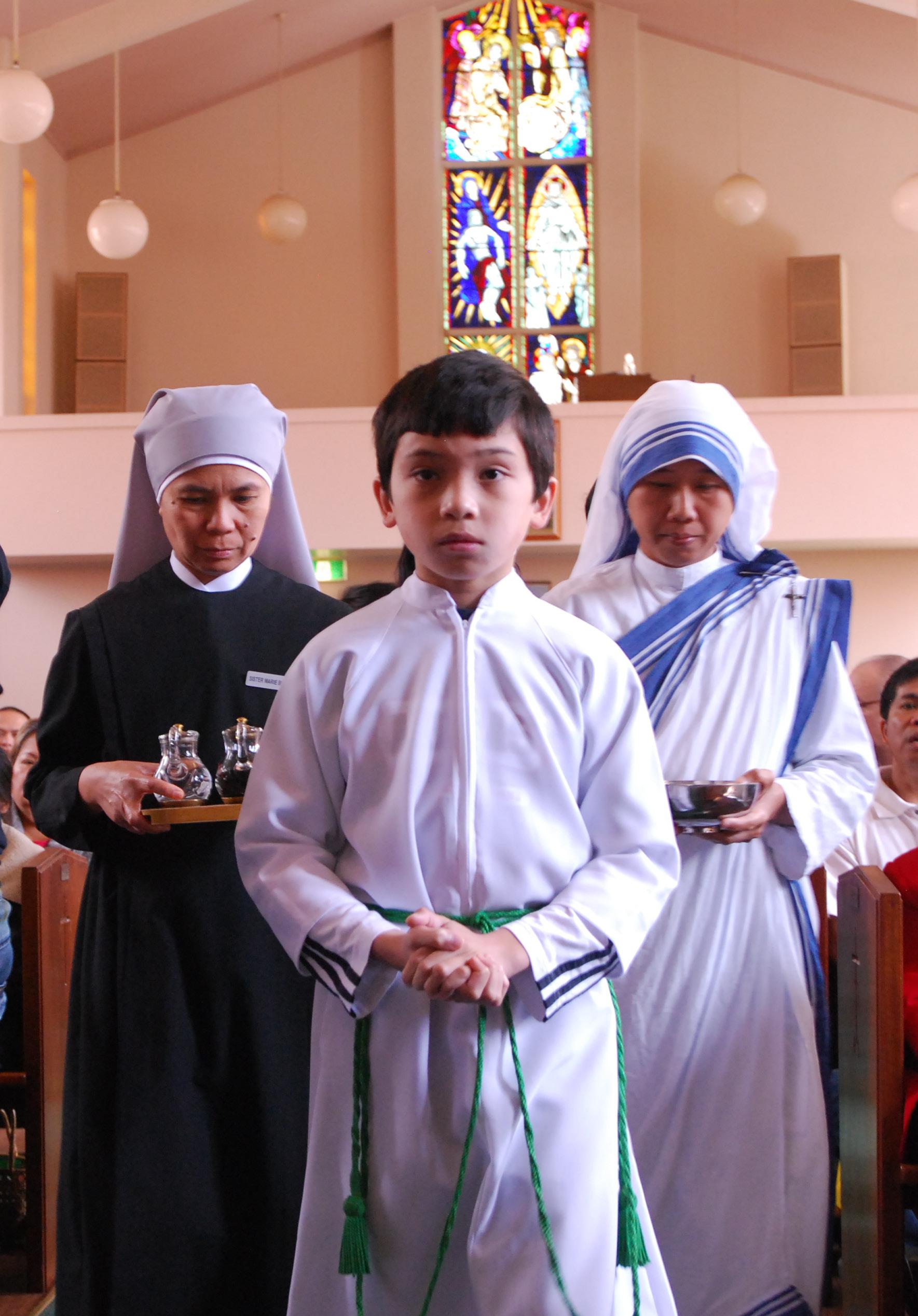
CATHOLICS throughout Western Australia are preparing for Our Lady’s birthday by committing themselves to praying the rosary.
The rosary, given to Our Lady for her intentions, is prayed over a 48-hour period from 6pm, Monday, 5 September to 6pm, Wednesday, 7 September.
This year for the first time Victorians will join in this endeavour, with the Legion of Mary taking on the task of encouraging parishes to undertake this wonderful gift.
To ensure all hours are covered, Catholics are urged to fill in the roster published on Page 2 with their designated time and forward it to The Legion of Mary, so the names of individuals, parishes and schools can be placed on a scroll.
The rosary can be prayed anywhere, anytime, during the 48 hours, privately or with a group.
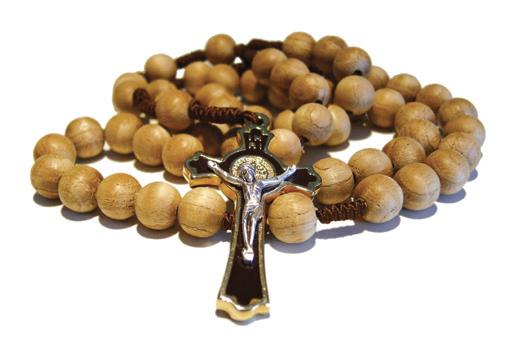
The Legion of Mary invites all Catholic schools to take part.
“How pleased would Our Blessed Mother be to see her little ones praying her prayer,” the legion said in a statement. “Their prayer is so powerful.”
Both Bishop Donald Sproxton, Auxiliary Bishop of Perth, and Bishop Gerard Holohan of Bunbury have commended and supported the bouquet, wishing it every success and blessing.
Scrolls with the names of individuals, parishes, schools and groups that have said the rosary during this period will be taken up in a procession during the midday Mass at St Mary’s Cathedral on 8 September. A rosary will be prayed beforehand, commencing 11.30am.
Those interested in taking part are asked to put their details on the roster and forward it to The Legion of Mary at perthcomitium@ bigpond.com, or fax: 9328 2782 by 6pm on Friday, 7 September.
First Malaysian Norbertine a 900-year milestone
By RoBeRt Hiini
BROTHER Christopher’s profession in the Norbertine Order on 28 August was the stuff dreams are made of, literally.
St Joseph’s Priory Church in Queens Park was full to overflowing as Christopher Jacob Lim, 40, professed solemn vows before his fellow Norbertines; the culmination of a much earlier inkling. He is the first Malaysian to be professed in the order in its 900year history.
Six years ago, he was pursuing a lifelong desire to become a Franciscan when he was visited by a series of dreams.
“I’m a person who is very logical and I don’t usually go in for
dreams,” Br Christopher said. “I’m not a person who’s into superstition … but what drew me was this desire for a monastic and contemplative life,” he said.
In those dreams, his Franciscan superiors and formators kept taking him to the abbey at Premontre – the place where St Norbert founded the Premonstratensian (Norbertine) Order in 1120.
“It was as if they were passing me on to the Premonstratensians,” he said, commending the way real-life Franciscan formators prepared him for a life of prayer.
A native of Penang, Malaysia, Br Christopher had never heard of the Norbertines of Queens Park when he came across their website.
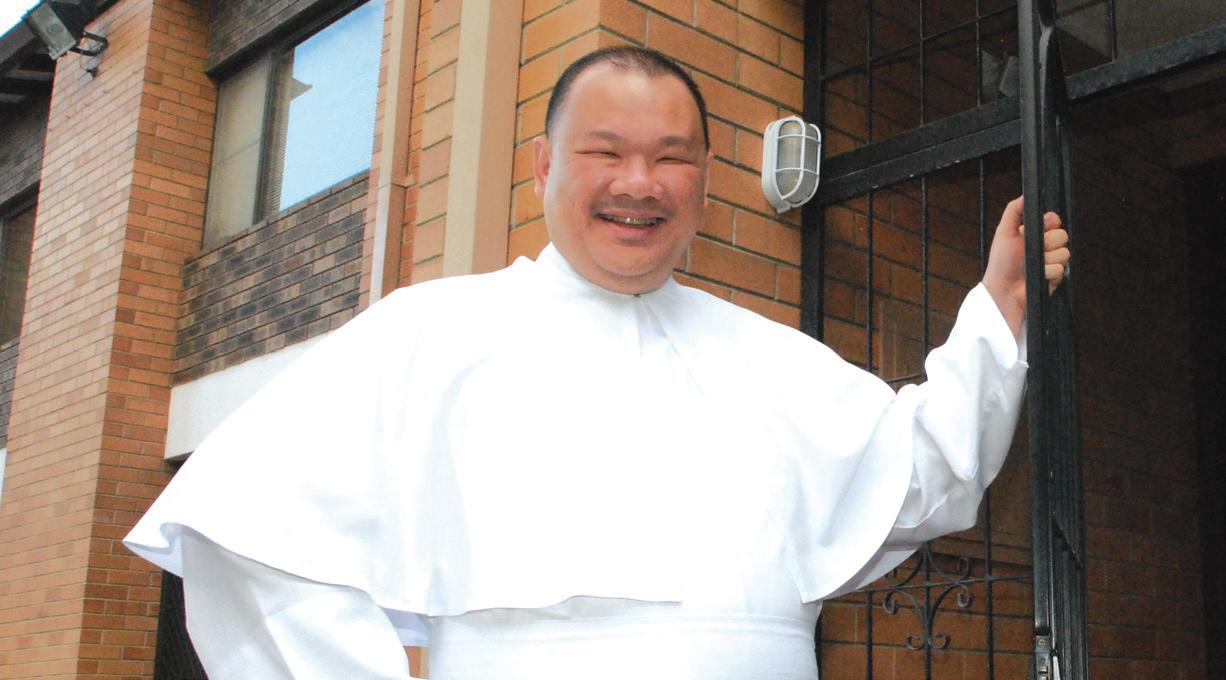
com-
munity ever since. His calm and friendly demeanour belies a wide array of life experiences and interests.
Br Christopher has worked as a cleric in a stock trading and brokerage firm as well as a merchant bank. He’s looked after wards from broken homes in Penang and has ministered to HIV-AIDS patients in Thailand.
Br Christopher loves to sew and to cook – something he attributes to his grandmothers – and is a keen promoter and custodian of Peranakan Chinese culture which was incorporated into his profession ceremony.
As the first-born son (he has two younger sisters), Brother
Continued on Page 6
Wednesday, 31 August 2011 the P arish the N atio N the W orld therecord com au
ecoRd WESTERN AUSTRALIA’S AWARD-WINNING CATHOLIC NEWSPAPER SINCE 1874 $2.00
the R
Br Christopher first visited the Norbertine’s in Queens Park back in 2005 for a three-month tryout.
He returned on 15 June 2006 to enter the Norbertine’s novitiate and has been living in the
Gerry (Hector) Divinagracia, 12, with Sr Marie Bernard and Sr Maxiliane Marie during the offertory.
PHOTO: R HIINI
Br Christopher Lim standing outside his home at St Joseph’s Priory.
PHOTO: R HIINI
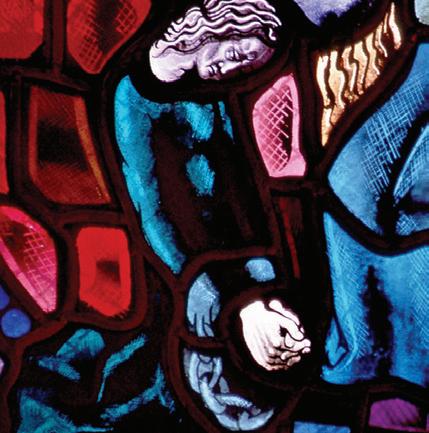
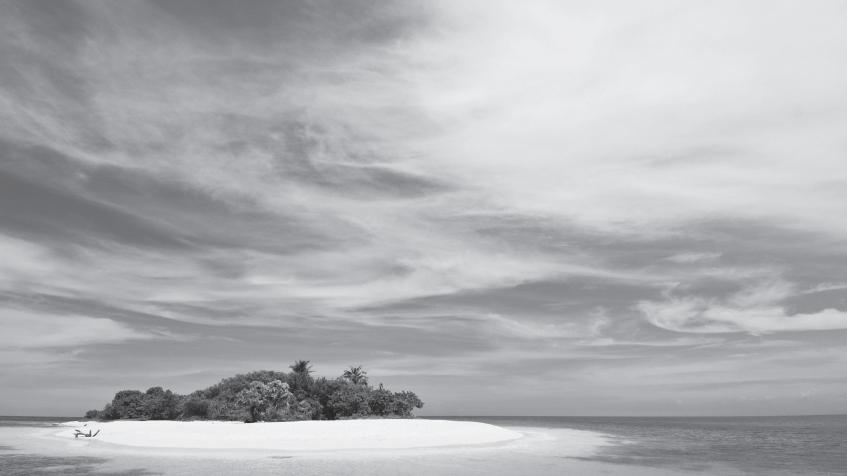
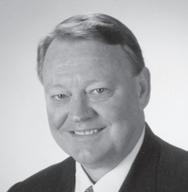
200 St. George’s Terrace, Perth WA 6000 Tel: 9322 2914 Fax: 9322 2915 Michael Deering 9322 2914

Editor
Peter Rosengren office@therecord.com.au
Journalists
Mark Reidy mreidy@therecord.com.au
Tim Wallace
Rob Hiini
Advertising/Production
Mat De Sousa production@therecord.com.au
Accounts
June Cowley accounts@therecord.com.au
Classifieds/Panoramas/Subscriptions
Catherine Gallo Martinez office@therecord.com.au
Record Bookshop
Bibiana Kwaramba bookshop@therecord.com.au
Proofreaders
Chris Jaques Eugen Mattes
Contributors
Debbie Warrier John Heard
Karen and Derek Boylen Anthony Paganoni CS
Christopher West Catherine Parish
Bronia Karniewicz Fr John Flader Guy Crouchback
The Record PO Box 3075
Adelaide Terrace
PERTH WA 6832
21 Victoria Square, Perth 6000
Tel: (08) 9220 5900 Fax: (08) 9325 4580
Website: www.therecord.com.au
The Record is a weekly publication distributed throughout the parishes of the dioceses of Western Australia and by subscription.
The Record is printed by Rural Press Printing
Mandurah and distributed via Australia Post and CTI Couriers.

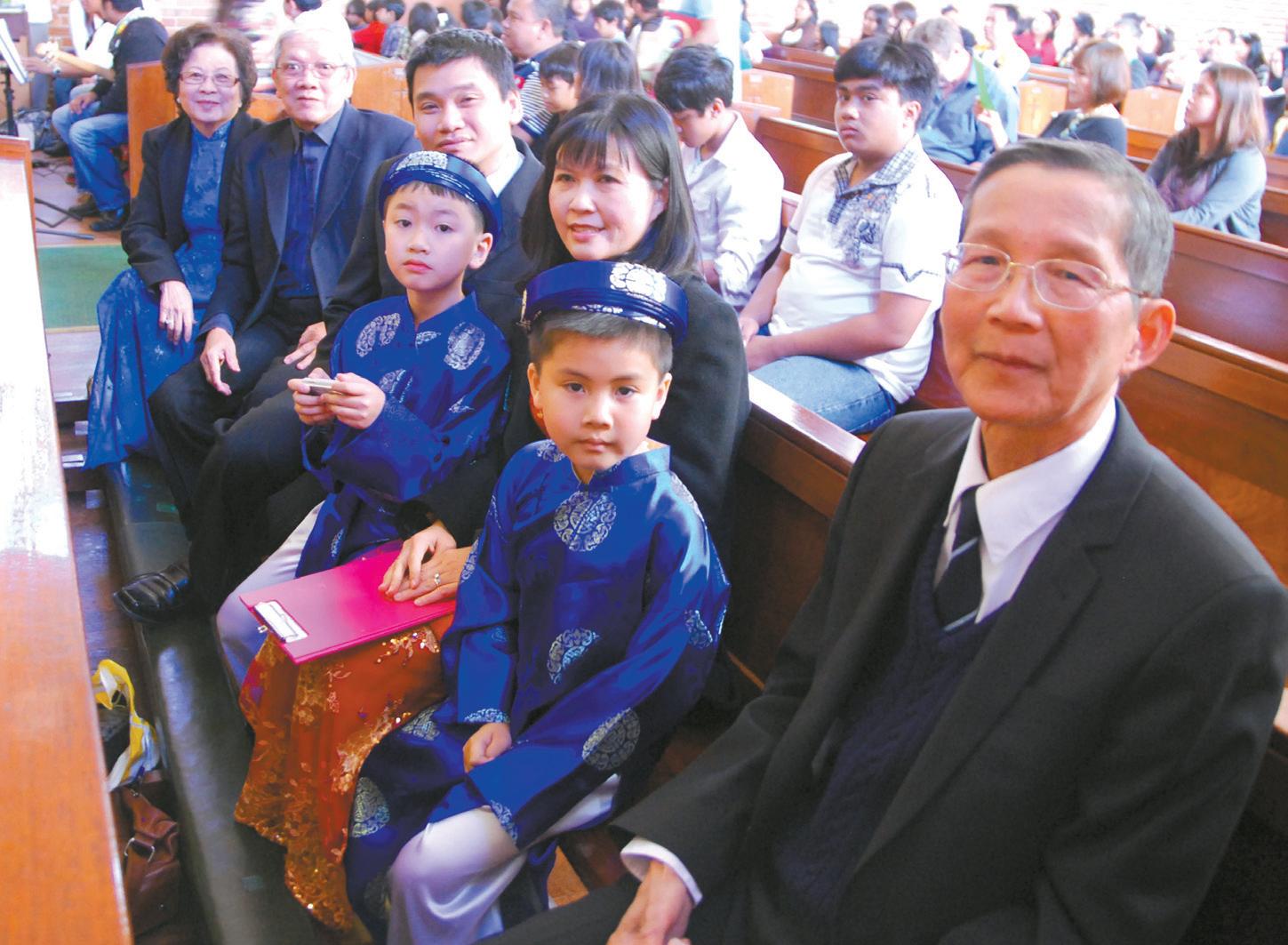
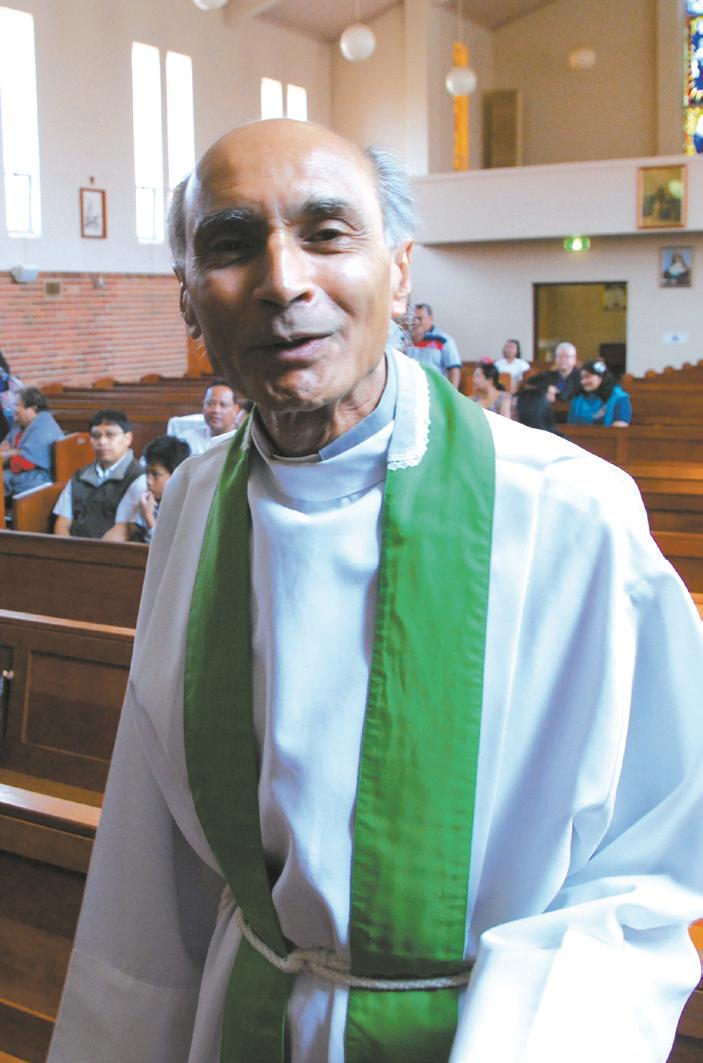
Continued from Page 1
“For Christ, the migrant is not merely an individual to be respected but he’s a person whose presence challenges us to take some responsibility.
“Because Jesus asks in the Gospel: ‘Who is your brother?’ And you know what the answer is.”
The Mass, led by the Catholic Filipino community, was attended by migrant representatives from the Vietnamese, Indonesian, Chinese, Burmese, Samoan and Tamil communities.
Representatives from several groups led the prayers of petition in their own languages with an English translation

 read out by concelebrant and Filipino chaplain Fr Armando Carandang. The group Couples for Christ provided the
music. Religious sisters from the Little Sisters of the Poor and the Missionaries of Charity participated in the offertory.
read out by concelebrant and Filipino chaplain Fr Armando Carandang. The group Couples for Christ provided the
music. Religious sisters from the Little Sisters of the Poor and the Missionaries of Charity participated in the offertory.
AdivisionofInterworldTravelPtyLtdLicNo.9TA796A division of Interworld Travel Pty Ltd ABN 21 061 625 027 Lic. No 9TA 796 michael@flightworld.com.au www.flightworld.com.au • CRUISING • FLIGHTS • TOURS • Travel Dream LIve yOUR FW OO3 12/07 Regina second century September 7 Almost nothing is known for fact of this virgin and martyr. The Roman Martyrology says only that she died for her faith. According to legend, she was the daughter of a pagan man, and her mother died in childbirth. She was cared for by a woman who introduced her to Christianity. After discovering this, her father rejected his child but later attempted to have her marry a local prefect. When she refused, she was imprisoned and tortured. The night before she was killed, Regina was consoled by a vision that told her that her suffering would soon end. Saints Crosiers SAINT OF THE WEEK Monday 6-7pm 7-8pm 8-9pm 9-10pm 10-11pm 11-12am Tuesday 12-1am 1-2am 2-3am 3-4am 4-5am 5-6am 6-7am 7-8am 8-9am 9-10am 10-11am 11-12pm 12-1pm 1-2pm 2-3pm 3-4pm 4-5pm 5-6pm Tuesday (cont) 6-7pm 7-8pm 8-9pm 9-10pm 10-11pm 11-12am Wednesday 12-1am 1-2am 2-3am 3-4am 4-5am 5-6am 6-7am 7-8am 8-9am 9-10am 10-11am 11-12pm 12-1pm 1-2pm 2-3pm 3-4pm 4-5pm 5-6pm
for the
Monday, 5 September - Wednesday, 7 September See Panorama for details. We are all one family, migrant vicar reminds us Francis and Louis Tran in
community, including
Rosaries
Bouquet
traditional
dress with other members of Perth’s Vietnamese Catholic
the community’s former head, Joseph Nguyen, right. Photo: R Hiini
The Perth Archdiocese’s Vicar for Migrants, Fr Blasco Fonseca. Photo: R Hiini
The choir of the lay movement Couples for Christ.
Page 2 31 August 2011, The Record The Parish. The Nation. The World. Find it in The Record. the R ecoRd Contacts the R ecoRd Contacts
Photo: R Hiini
Few itching to change marriage law
By Tim Wallace
PROPONENTS of same-sex marriage and defenders of the traditional concept of the institution have found rare agreement: the push to change the legal definition of marriage has been set back following federal parliamentarians’ reports on the views of constituents.
Thirty-one of 150 members of the House of Representatives reported to parliament on 24 August in response to a motion successfully moved last November by sole Greens member, Adam Bandt, which directed all parliamentarians
to seek the views of their electorates regarding same-sex marriage.
Five speakers indicated strong support for recognising samesex marriage, 20 said responses received showed strong opposition to or deep lack of interest in changing the status quo, and six suggested attitudes expressed in their electorates were fairly evenly split.
The head of the Australian Christian Lobby, Jim Wallace, said the reports showed little community support to redefine marriage. “The numbers in support of the traditional definition of marriage were overwhelming,” he said.
A writer for the website samesame.com.au found it hard to draw a different conclusion: “We’re not going to sugarcoat this – [the] MP feedback session in Parliament on the gay marriage issue was a tough setback for marriage equality.”
The same day as the reporting session, a document endorsed by more than 50 national leaders of Christian Churches, including Archbishop Hickey and Bishop David Mulready of the Anglican diocese of North West Australia, was released.
The document said marriage as an institution between a man and woman “promotes and protects the
identity of children and their internationally recognised right to know, have access to and be nurtured by both their mother and father”.
The Australian Catholic Bishops Conference said in its statement marriage had “a two-fold purpose: mutual affection and support, and the natural procreation and carefilled raising of children”.
“It is easy to understand why same-sex couples committed in love to a long-term and exclusive relationship would wish to share in this experience,” the statement said.
“However, extending the understanding of marriage to same-sex
couples would break down both the public and the personal institutions of marriage that have stood throughout time; indeed, marriage would lose its meaning.
“Whilst the Church is sympathetic to same-sex couples who wish to seal their commitment to one another in marriage, the very object of their aspirations would evaporate in their act of obtaining it.”
At a Mass at St Mary’s Cathedral to celebrate National Marriage Day on 16 August, Archbishop Barry Hickey said marriage was not something to be redefined by legislation because it predated the law.
THE Permanent Committee of the Australian Catholic Bishops Conference has responded to a petition protesting the Pope’s removal of Toowoomba’s Bishop William Morris by agreeing to refer “the issue of process and the doctrinal matter of the infallibility of the teaching on women’s ordination, respectively” to the Congregation for Bishops and the Congregation for the Doctrine of the Faith.
“Many people have written or sent emails to the Holy Father, the Bishops Conference, the Apostolic Nuncio, and individual bishops in support of Bishop Morris”, the bishops said in a statement.
“The members of the permanent committee are aware there are some who take a different view and are aware of publications that are openly hostile to Bishop Morris.
“Not only do the local bishops not have access to all the information on which Pope Benedict came to his decision, but what has happened in Toowoomba is a matter between the Holy Father and Bishop Morris.”
The members of the permament committee are Archbishop Philip Wilson, Archbishop Denis Hart, Archbishop John Bathersby, Archbishop Mark Coleridge, Archbishop Adrian Doyle, George Cardinal Pell, Bishop Michael Putney and Bunbury’s Bishop Gerard Holohan.
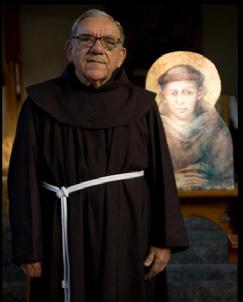
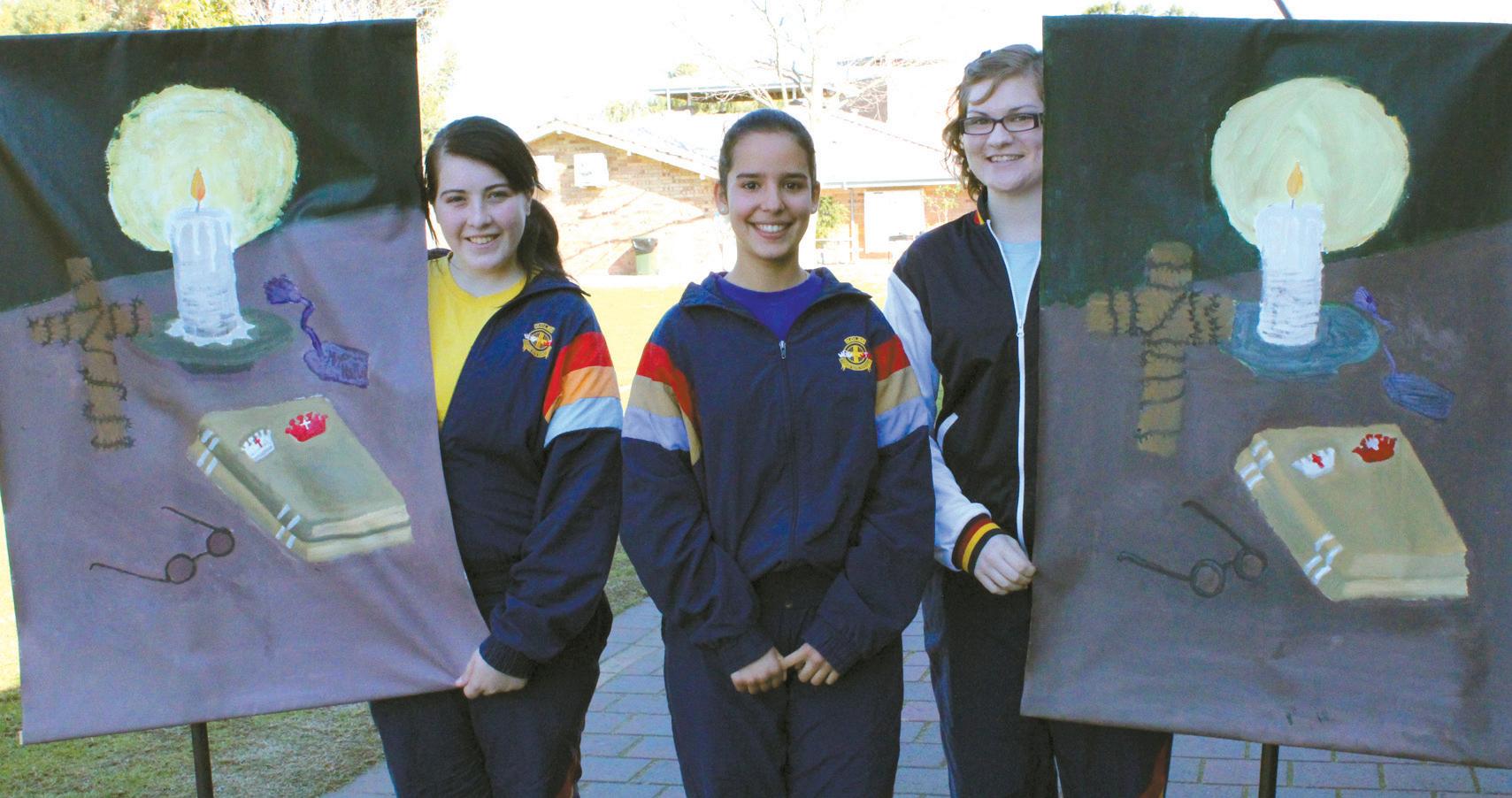
Thanks a million, dear St Maximilian
By leanne Joyce
KOLBE Catholic College in Rockingham commemorated the 70th anniversary of the entry into eternal life of the school’s patron saint Maximilian Kolbe on Sunday, 14 August. The college feels blessed to
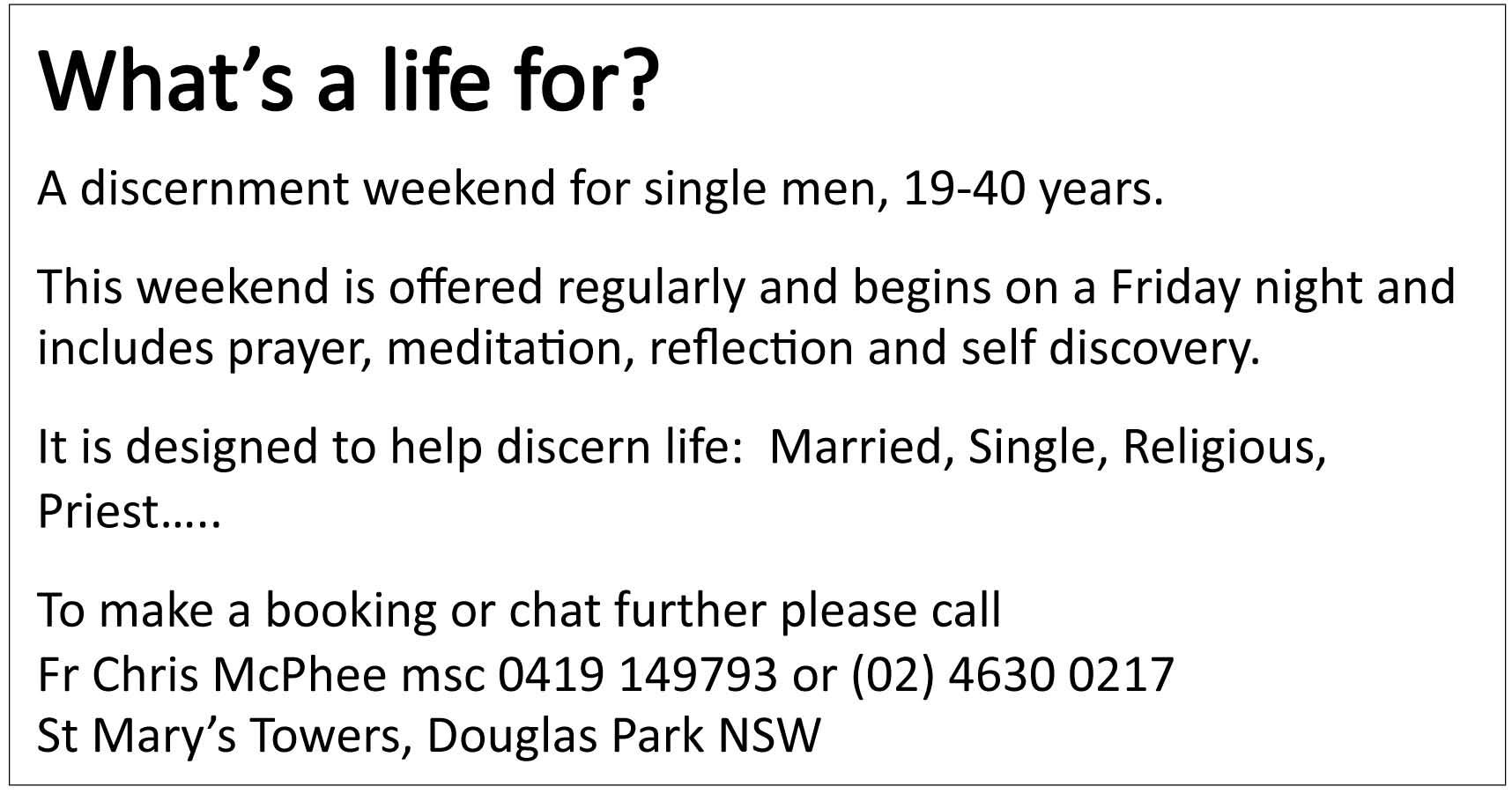
have the saint’s name as a constant reminder of his Christian witness.
The Polish Franciscan died in Auschwitz in 1941 after volunteering to take the place of a prisoner condemned to death.
The school also remembered with thanks those responsible in the planning of the college, those
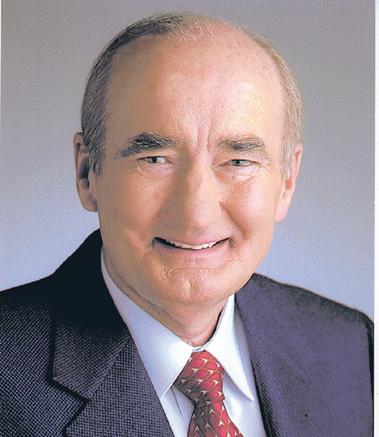
who gave generously towards its construction and those responsible for its outstanding chapel.
“May Kolbe’s charisms continue to be promoted and lived by us and by those who follow us.”
Tegan Joyce, Francesca Spissu and Louise Collins represented the college at Masses in their
respective parishes on the anniversary of St Maximilian’s death. They spoke to the congregations of life and the qualities he showed through his life and work. The college community is proud to be associated with this man of courage and faith who always strove to excel in all he did with his life.
Bishops to pass queries on to Vatican Just over the Causeway on Shepperton Road, Victoria Park. Phone 9415 0011 PARK FORD 1089, Albany Hwy, Bentley. Phone 9415 0502 DL 6061 JH AB 028 JOHN HUGHES Cho ose your dealer before you cho ose your car... Absolutely!! WA’s most trusted car dealer FR DIONYSIUS MINTOFF O.F.M. IS VISITING PERTH BETWEEN 9 – 20 SEPTEMBER 2011 Fr Mintoff a Franciscan from Malta has taught Social Justice for many years at the Catholic Teachers' College in Malta & the University of Malta. He has been the Chief Education Officer within the Malta Education Department for a considerable number of years He is the Director of the Peace Laboratory in Malta, which he founded himself almost 40 years ago. He is also the Chairman of the Justice and Peace Commission in Europe. Whilst in Perth his itinerary is as follows: SATURDAY 10TH SEPT: Celebrates Mass at Our Lady of Lourdes Parish Church in Rockingham at 8.30 a.m. SUNDAY 11TH SEPT: Concelebrates Mass At Our Lady of Lourdes Parish Church in Rockingham at 9.30 a.m. MONDAY 12TH SEPT: 8.30 a m. Gives a lecture on Social Justice at Notre Dame University in Fremantle. TUESDAY 13TH SEPT: 12.00 – 2.00 p.m Talk at Casa Piccarreta at 59 Newton St. Spearwood WEDNESDAY 14TH SEPT: A M - Meets His Grace Archbishop Barry J. Hickey, then visits The Record Office in Perth. THURSDAY 15TH SEPT: – 11.00 a m – 2.00 p.m – Visits “Shopfront” Outreach, 170 Whately Cresc., Maylands FRIDAY 16TH SEPT: 7.00 p m – 9.00 p m – Talks to Maltese Community at Maltese Club at 1 May Holman Drive, Bassendean FRIDAY 16th- SUNDAY 18th Staying with the Franciscan Community in Maylands. MONDAY 19TH SEPT – Meets with the Holy Spirit of Freedom Community at Karriholm in Pemberton. Evening talk. TUESDAY 20TH SEPT – Holy Hour at 8.00 a.m. Mass at 9.00 a.m at Holy Spirit of Freedom, Karriholm in Pemberton. Leaves for Malta at 10.30 p m Further information contact Carmen on (08) 9528 1442 or 0415 317 357 or Godfrey on 0420 688 390.
Louise Collins of St Bernadette’s parish, Port Kennedy; Francesca Spissu of Baldivis parish and Tegan Joyce of Our Lady of Lourdes parish, Rockingham.
Page 3 31 August 2011, The Record
Music to inspire sense of the sacred
By Joanne Shepherd
“I DID think I did see all Heaven before me, and the great God Himself,” exclaimed George Frideric Handel ecstatically after finishing the musical composition that has become known as the “Hallelujah” chorus.
He had worked tirelessly to complete the composition in three weeks, an experience that so moved him he groped for words to describe it, resorting to the words of St Paul: “Whether I was in the body or out of my body when I wrote it I know not.”
Whether in the grandeur of Handel’s Messiah, or a hymn sung simply in a parish church, music helps people connect to a sense of the sacred.
“You cannot separate faith from music, and anyone who does is deeply mistaken,” says Nick Banan, an associate professor in music education at the University of Western Australia. “The capacity for music is universal.”
Mr Banan is involved in two major musical performances at St Mary’s Cathedral in September: an arrangement of Ave Maria on 11 September; and on 25 September a candelight concert by the cathedral’s choir together with the Winthrop Singers.
Mr Banan founded the Winthrop Singers four years ago –the choir being named in honour of John Winthrop Hackett, the West Australian philanthropist instrumental in establishing WA’s first university (also the first free
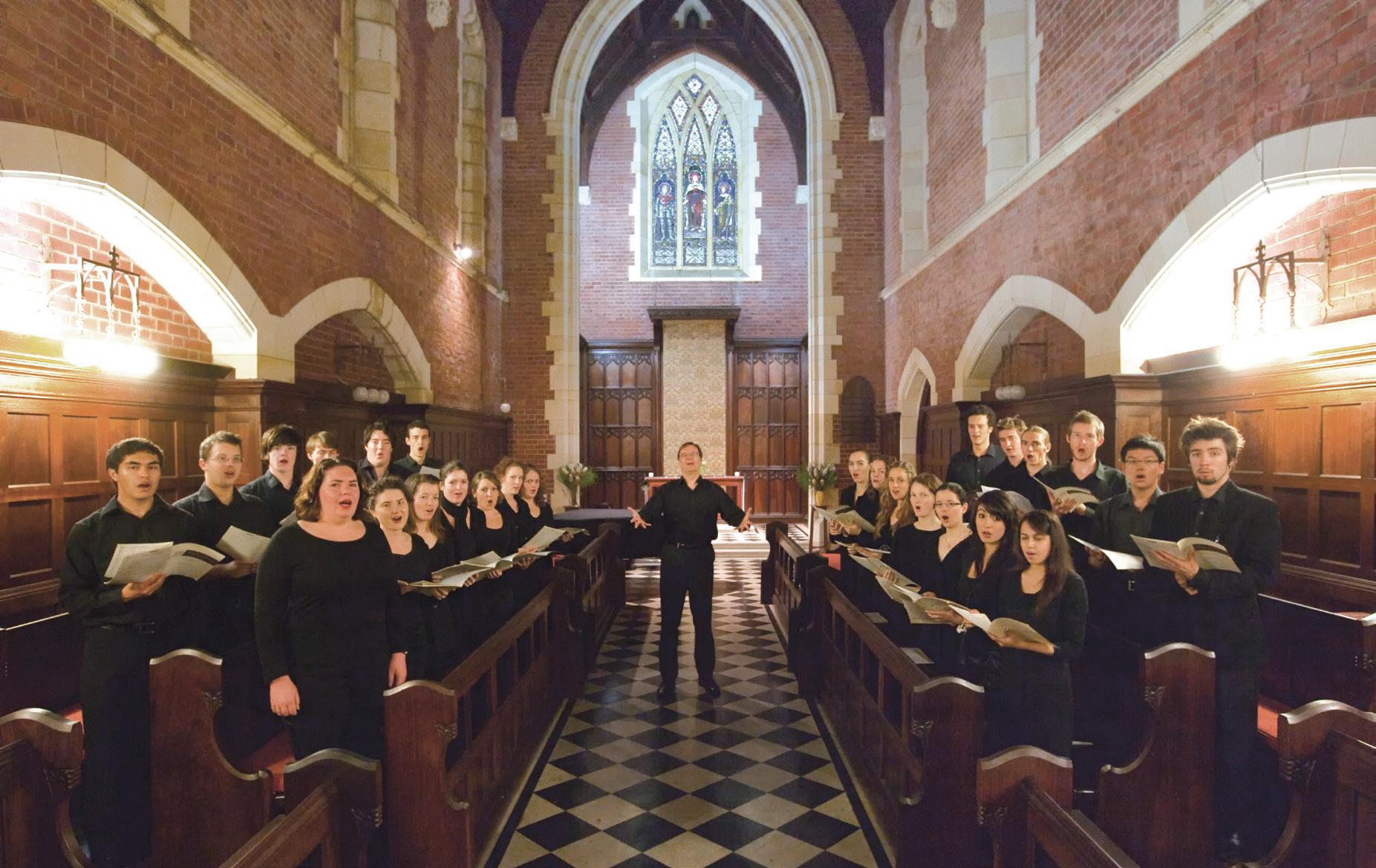
university in the British empire). The choir comprises people of diverse backgrounds and faiths including Catholic, Anglican and Muslim. Mr Banan regards music as a unifying experience. “Everyone comes together through music,” he says. “You can experience something significant through singing.
“Australia has something which does not exist anywhere else in
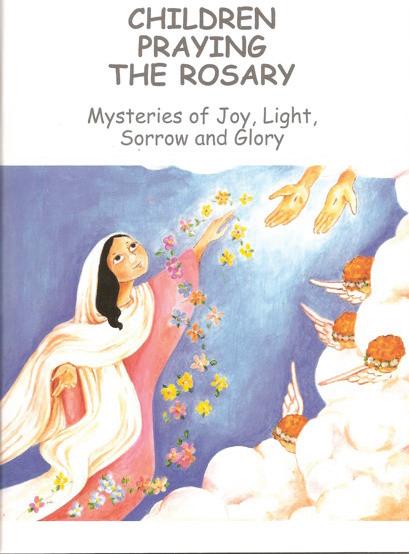
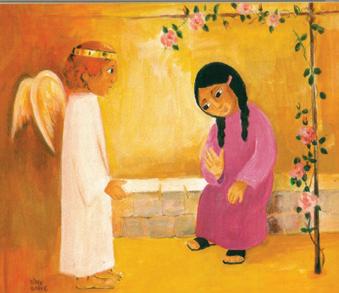
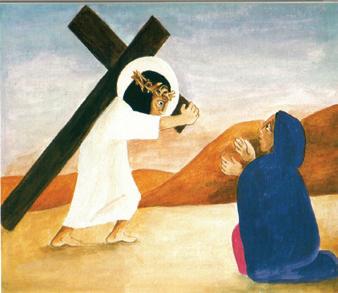
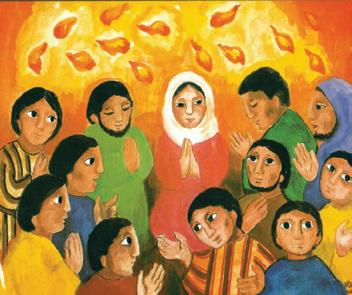

Donation Form:
the world. Its most important feature is that it is so multicultural.
“If we can bring all the people together – the Indians, Vietnamese, Spanish, Italians –and listen to their music and combine everything, it would enrich our lives and our spirituality in ways that we were not aware of.”
Mr Banan says he grew up surrounded by music. Like Handel, he is German-born and moved to
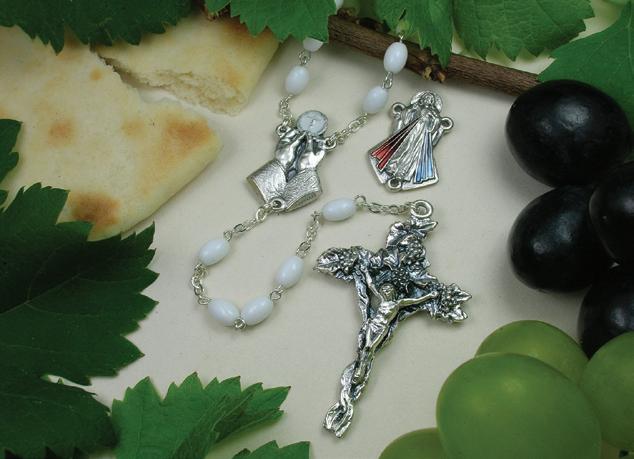
Britain, becoming a chorister at Canterbury Cathedral. The father of his wife, who he met at university, was also a cathedral chorister. “I had no idea,” he laughs. “I even married into music.”
He moved to Perth five years ago. “I would never have written music the way I do now if I hadn’t come to Australia,” he says.
He writes his own music but also enjoys arranging other pieces.
“I take a melody and put my stamp on it,” he says with a smile.
His arrangement of the Ave Maria at St Mary’s Cathedral on 11 September will be performed the cathedral’s organists along with cantors Daniel Mullaney and Catherine Campbell.
“The Ave Maria is a very special piece,” Mr Banan says. “It recaptures the Pentecost, when the disciples spoke in tongues. I’ve given the members of the choir solo parts, so that there is a sense of freedom which builds up into something dramatic.
He says with regret that society is in danger of losing people being comfortable singing: “It is important to participate and everyone should be encouraged to sing.” But his mood brightens when speaking about the opportunity use a venue like St Mary’s.
“Special buildings should be built for music, to offer something unique,” he says.
“When I first arrived in 2006, and conducted my first choir at the cathedral on the 5th of December, I was amazed.”
He says he hopes to be able to recreate that feeling at the upcoming cathedral events.
The “Chapels of St Mary’s by Candlelight” concert on 18 September, combining the voices of the Winthrop Singers and the St Mary’s Cathedral Choir, will be performed in mostly darkness, the singers illuminated by candlelight, solemnly singing praise to God.
If that image doesn’t conjure up a feeling of awe, nothing will.
Adopted feast day a time to break, and also bake, bread
By roBert hiini
FR
TOMASZ Bujakowski
is only interested in the giving the people in his parish good things.
When his parish of Maylands celebrates its feast day on Sunday, 18 September he will get up even earlier than usual to bake his parishioners bread.
It is something that is steadily becoming quite a tradition for the parish priest.
“It’s much better than you can buy here in the shops,” Fr Tomasz said. “I started and now the people are asking where is the bread. Now for the whole parish.”
The children preferred something sweet. The children of migrant families also loved to get dressed up in the traditional dress of their homelands, Fr Tomasz said.
He said he expected they would do so when the parish, Our Lady Queen of Martyrs, celebrated its borrowed feast day.
The parish has many families originating from all around the world, particularly the Indian subcontinent, Asia and Africa, as well
as Australia. Fr Tomasz arrived in Perth direct from Poland 13 years ago and has only being saying mass in English for the past two years.
The parish is located less than a kilometre away from the Dom Polski Polish Centre and caters to all Catholics in the area.
With no official feast day of its own, the parish is instead celebrating Our Lady Queen of Sorrows, which actually falls on Thursday, 15 September.
Fr Tomasz has invited a fellow Franciscan priest, Fr Michael Brown, originally from Maylands, and former Maylands parish priest Fr Maurice Toop.
Fr Brown will share his vocation story and Fr Toop will share his best memory from Maylands while Fr Tomasz will speak about the future of the parish, including plans to renovate the church and its surrounds.
“There is plenty to do this year and so we like to know the past and the future are together,” Fr Tomasz said.
He said all were welcome at the parish’s feast day.
Yidarra builds with help from friends, and the feds
A REFURBISHED library, computer lab and kindergarten classrooms at Yidarra Catholic Primary School were opened and blessed at an official ceremony on 28 July.
The school, in the southern suburb of Bateman received more than $3 million through the federal government’s Building the Education Revolution program.
The director of Catholic
Education in WA, Ron Dullard, acknowledged the federal government’s monetary contribution had assisted the school in planning for the future needs of the community by making it possible to build new classrooms.
Mr Dullard also made mention of the contribution of the Yidarra community towards improving the primary school.
Page 4 31 August 2011, The Record Aid to the Church in Need …. a Catholic charity dependent on the Holy See, providing pastoral relief to needy and oppressed Churches
The
Children Praying the Rosary - Joy, Light, Sorrow & Glory
Record WA
Soulful singers ... The Winthrop Singers with founder Nick Banan: “You cannot separate faith from music,” he says, “and anyone who does is deeply mistaken.”
PHOTO: WINTHROP SINGERS

A JOURNALISM and social justice student from the University of Notre Dame Australia hopes to raise $10,000 for programs in the Democratic Republic of the Congo (DRC) that support survivors of sexual violence.
Isabelle Jose has been working to raise awareness about the systematic kidnapping, rape and mutilation of women and girls by local and foreign militias in the DRC. As part of her efforts the 2008 documentary The Greatest Silence: Rape in the Congo will be
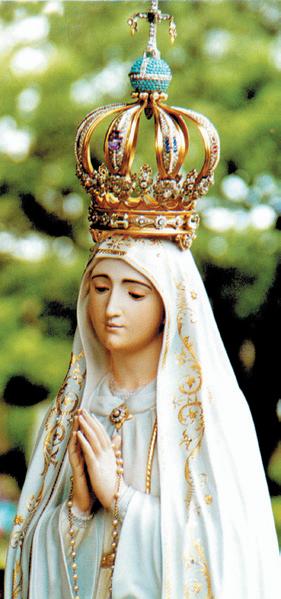
screened at the Tannock Hall of Education in Fremantle on Saturday, 3 September. Prior to the screening there will be a video recording from Caritas Australia’s Lulu Mitshabu about the organisation’s work in the DRC.
Ms Jose, who is hoping to complete a photo journalism project in the DRC next year, said: “The biggest realisation I’ve had through the fundraising process is that you cannot save the world, but you can help the people who are experiencing this hurt right now.”
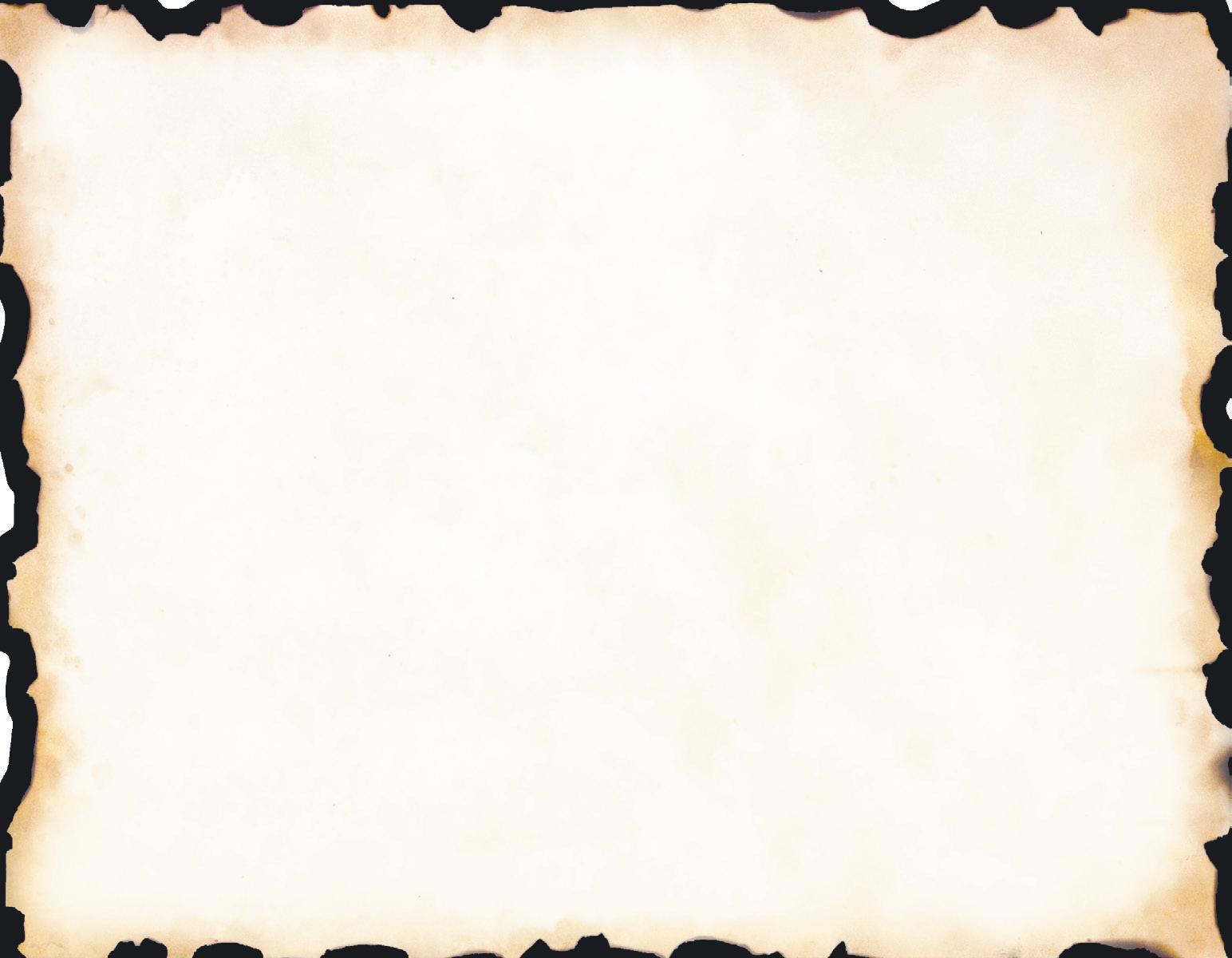

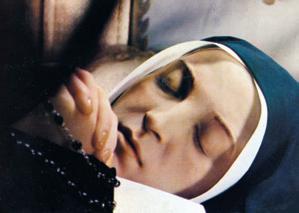

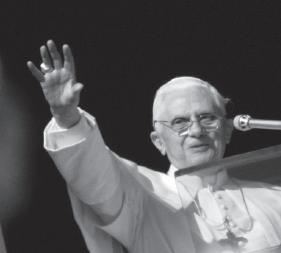
Learning and Teaching Council (ALTC) for the project by the Nulungu Centre for Indigenous Studies will help to work towards redressing the significant underrepresentation of Aboriginal and Torres Strait Islander students in higher education.
The Nulungu Centre engages in teaching, research, cultural outreach and cultural training
The deputy vice-chancellor of the Broome campus, Professor Lyn Henderson Yates, said the grant was wonderful news for both the campus and the university.
“Nulungu Centre for Indigenous Studies is very excited at successfully winning its first prestigious and substantial ALTC grant,” said Professor Henderson-Yates. “This research focuses on indigenous students and education, both of which are very important to the university.”
The research project, she said, would involve staff from across the Broome, Fremantle and Sydney campuses of the University of Notre Dame as well as a researcher from Southern Cross University in NSW.
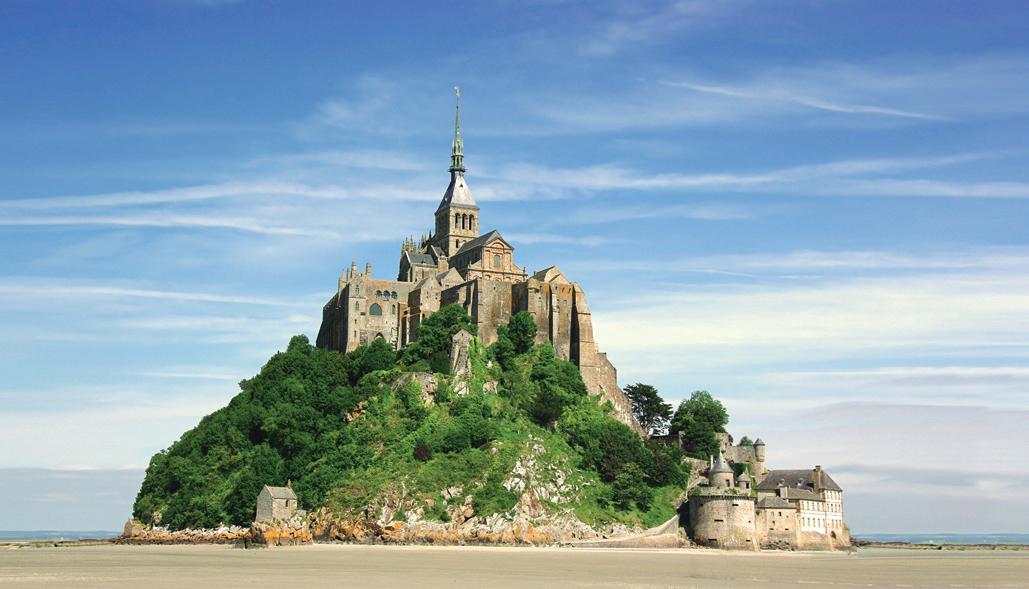
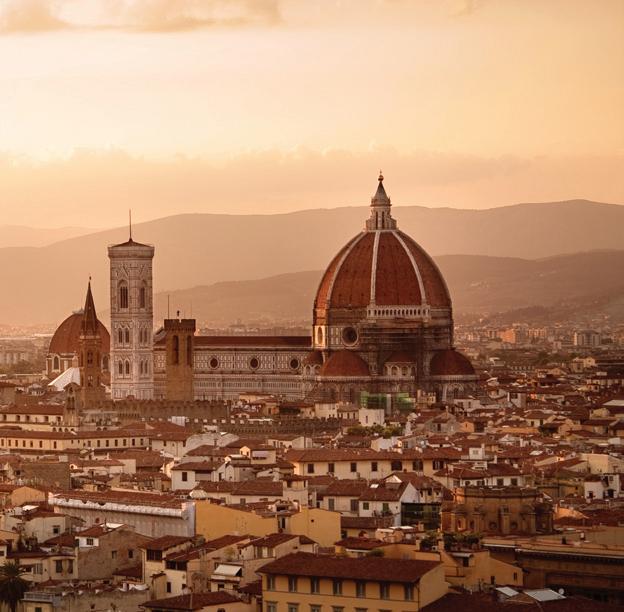
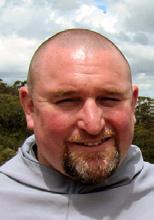
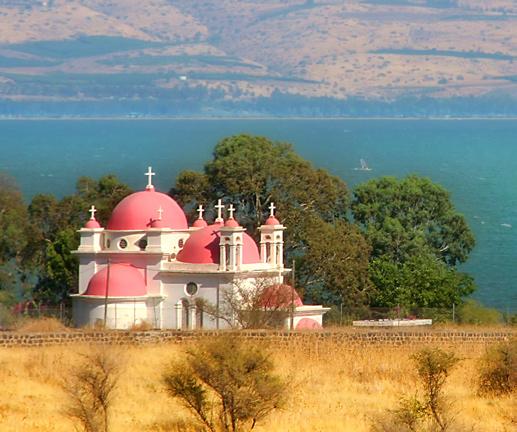



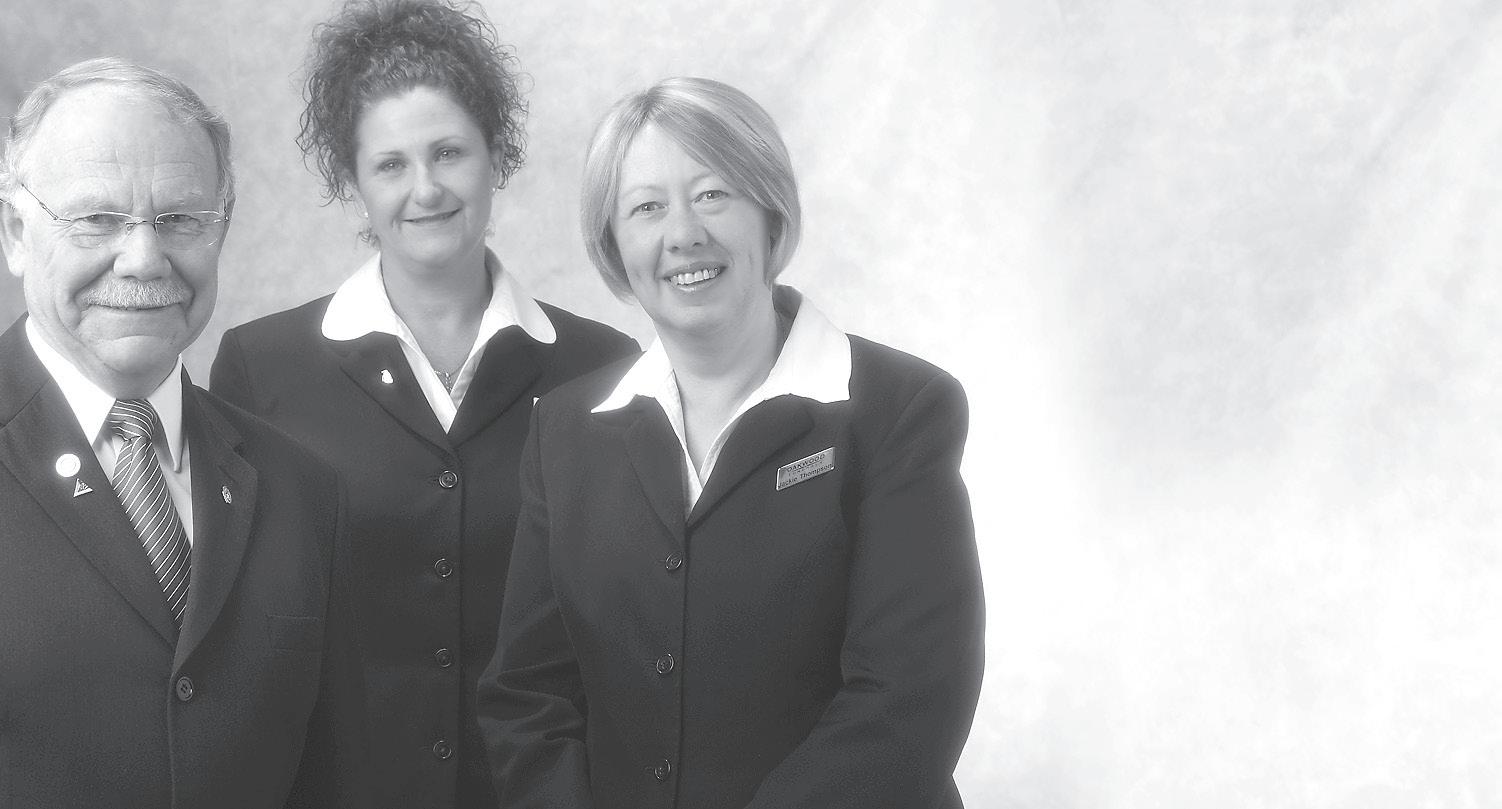
Page 5 31 August 2011, The Record Oak.MT103x216 “put your trust in the service, understanding and gentle compassion of an Oakwood Funeral” Don Chipper Talk directly to the Funeral Director to arrange a funeral or discuss your pre-paid options The Strength By Your Side 506 Marmion Street BOORAGOON Telephone (08) 9330 8300 6 Robinson Place Rockingham Telephone (08) 9529 3399 www.oakwoodfunerals.com.au 24 HOUR 7 DAY SERVICE SERVICING ALL CEMETERIES * Now includes all taxes/ levies! from $ 6595 With Fr. Joseph McShane A 14 day pilgrimage Departing 18 Oct 2011 Lourdes • Rocamadour • Paray-Le-Monial • Taize • Nevers • Chartres • Lisieux • Mont Sant-Michel • Paris • Also Departing: 18 Sep 2011 * Now includes all taxes/ levies! from $ 7495 EXODUS JOURNEY With Fr. Mariusz Adamczyk A 21 day pilgrimage Departing 28 Sep 2011 Egypt • Mt Sinai • Red Sea • Petra • Dead Sea • Sea of Galilee • Bethlehem • Jerusalem Also available as Holy Land only • A 14 day pilgrimage journey Departing: 5 Oct 2011 from $6295 *incl. all Taxes /Levies Optional combination with Italy, Spain & Portugal (Visitations of Europe)A 33 day pilgrimage departing 9th Oct 2011 from $12,795 all inclusive * Now includes all taxes/ levies! from $ 7895 With Fr Maroun El Kazzi A 20 day pilgrimage Departing 21 Sep 2011 Athens • Kavala • Patmos • Kusadasi • Ephesus • Assos • Cannakkale • Gallipoli • Cappadocia • Optional extension to Malta • Also available as St Paul in Greece or St Paul in Turkey only ST PAUL EXPEDITION GRACES OF ITALY * Now includes all taxes/ levies! from $ 6195 A 14 day pilgrimage journey Departing 6 October 2011 Featuring • Padua • Venice • Ravenna • Florence • Siena • Assisi • Loreto • Lanciano • San Giovanni Rotondo • Monte Sant’Angelo • Pietrelcina • Pompeii • Montecassino • Rome • Optional 7 night extension to Medjugorje or 10 night extension to Greece • Also Departing: 8 Sep & 28 Oct 2011 * Costs must remain subject to change without notice, based on currency exchange rates, departure city, airline choice and minimum group size contingency. Contact HARVEST PILGRIMAGES for more info • 1800 819 156 or Flightworld American Express , Perth: (08) 9322 2914 or visit www.harvestpilgrims.com • harvest@pilgrimage.net.au 2011 H arvest P ilgrimages
$10,000. PHOTO:
Film night for Congo survivors Broome centre’s grant to increase indigenous study A RESEARCH project focused on the transition of Aboriginal and Torres Strait Islander students into higher education has won a significant grant for staff at the
campus of the University
Dame
The $220,000 grant from
Australian
Journalism and social justice student Isabelle Jose aims to
raise
UNDA
Broome
of Notre
Australia.
the
TA 1610 Pilgrimage Tours Pte Ltd 623 Aljunied Rd #07-04, Singapore 389835 Tel: +65 6824 9878 Fax: +65 6824 9876 e mail: anthony@pilgrimagetours.com.sg Spiritual Directors and Church Groups are invited to contact us for more details on customised Pilgrimages. * Be in Fatima for Oct 13 procession to mark Our Lady’s last apparition. Please book now to avoid disappointment: Call Joseph Oh , Mobile 0439976655 or email: joeflo@three.com.au 16 Days Full Board (A$4,188) LimitedHurry,Seats Available! Presenting The Best of Pilgrimage Tours Fatima*, Lourdes, Shrines in Portugal, Spain & France 10 Oct with Spiritual Director: Rev. Fr. Doug Harris Departure from Singapore The Record Bookshop Catholic clarity for complex times
Norbertine first in 900 years
Continued from Page 1
Christopher got down on his hands and knees before his father and begged his blessing, before his aunts lit candles on a special Peranakan table of offering.
During the Mass, Br Christopher’s family members brought forward gifts of mandarins, pineapple and bananas to symbolise prosperity, blessing and abundance in God.
In his homily, Prior Fr Peter Stiglich O Praem said the community life that members of the order had chosen ran counter to society’s rampant individualism.
“What he is saying by his profession is that ‘us’ and ‘we’ – that interdependence – is what our world needs”, Fr Stiglich said.
“If we are to make progress toward God, then that progress is made together.”
When Br Christopher arrived there were ten Norbertines living in community, with others stationed elsewhere. At the end of last year only Br Christopher and Fr Stiglich remained but the numbers have recently increased.
The community currently numbers six with the addition of two men from India, one from Germany, two female tertiary (lay) members and Abbot General Emeritus, Fr Hermenegild Noyens O Praem – the principal celebrant at the profession.
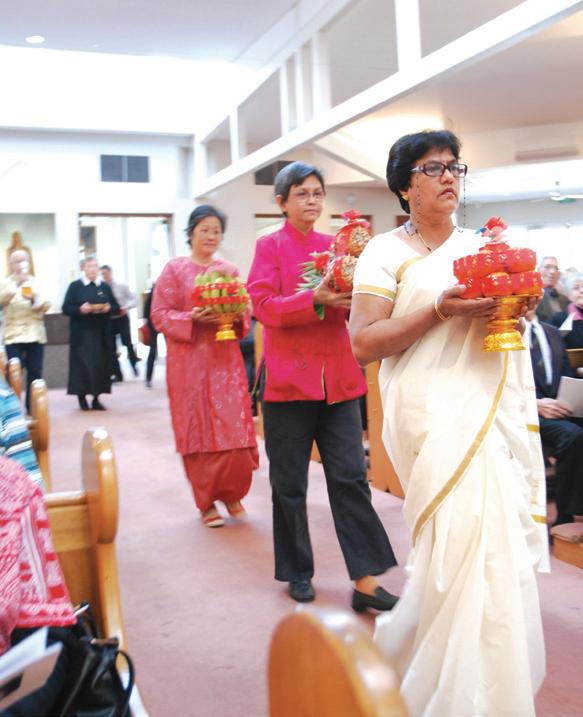
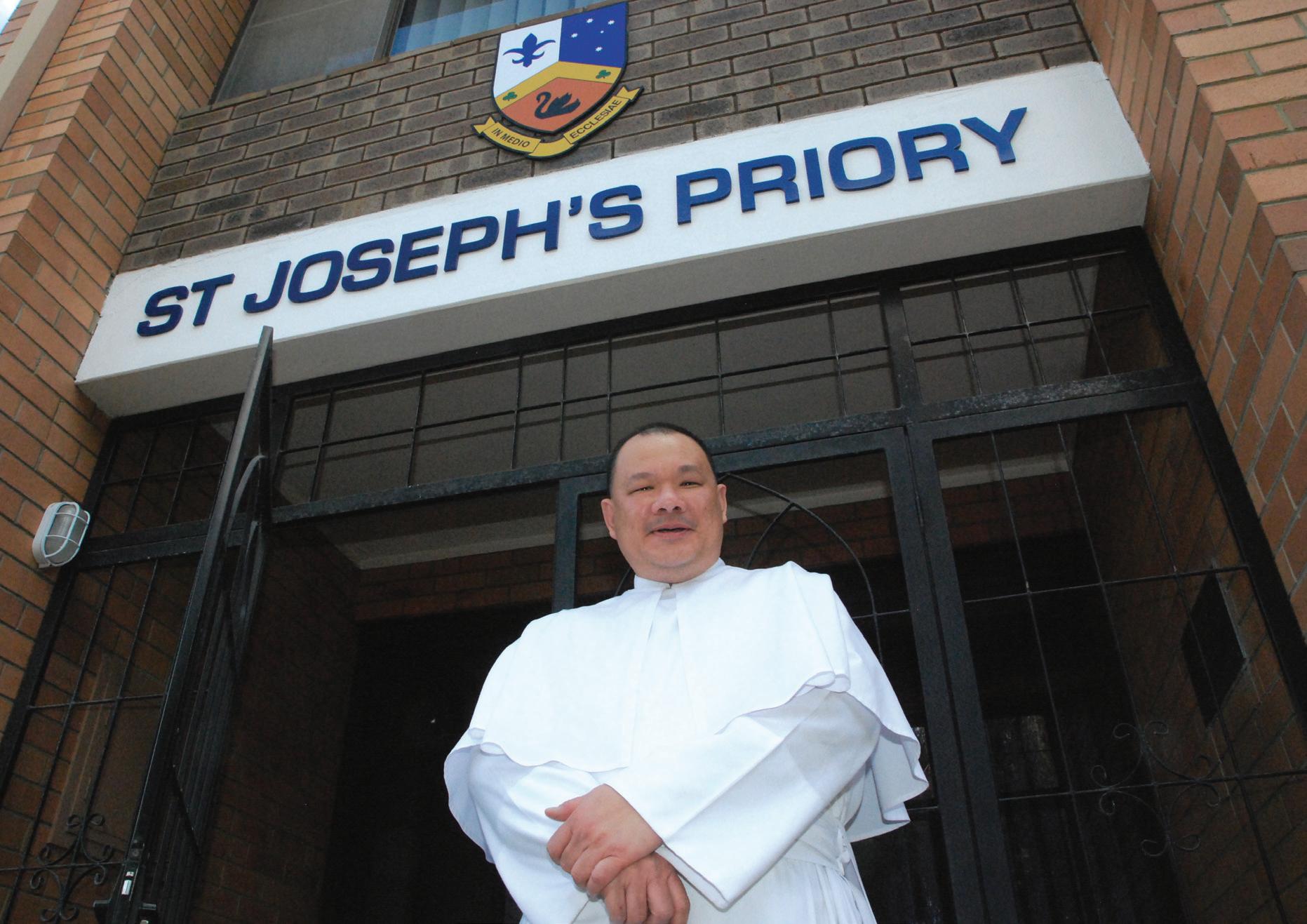
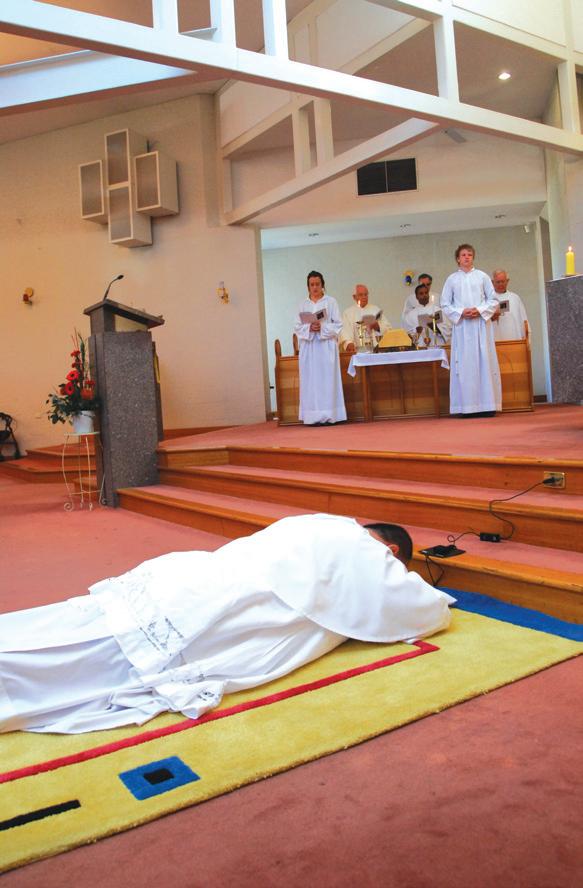
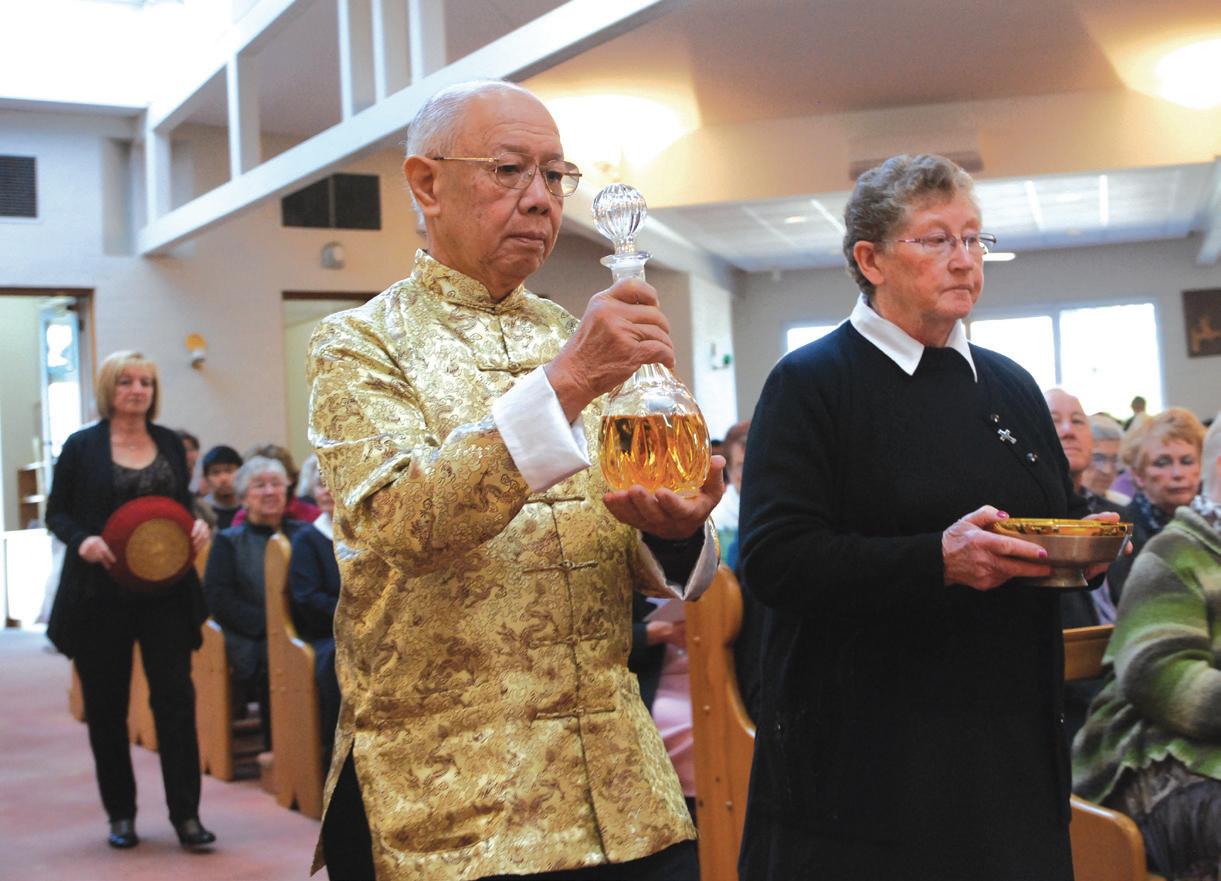
Order with two fathers: Norbert and Augustine
By Mark reidy
ST NORBERT was born in Xanten, Germany in 1080, the third son of a wealthy family. Norbert was a brilliant student during his years of study but also spent these early days enjoying the pleasures of the Imperial Court.
Legend has it that while riding a horse near the village of Kanten a lightening bolt frightened the horse, throwing Norbert to the ground and rendering him unconscious. The incident caused him to leave his life of luxury and take up a life of penance. Norbert became renowned for his persuasive preaching which drew many back to the Church.
In 1120 Norbert and a small group of followers established a community in the valley of Premontre, seeking Christ by means of community living, poverty, obedience, celibacy and a dedication to active priestly duty.
On Christmas day in 1121, after a year of prayer and meditation, the group made their first profession of vows, founding the Canons Regular of Premontre, also known as the Premonstratensians or Norbertines. The community, which is based on the Rule of Augustine, is monastic in its house practice but apostolic and evangelical in its active ministry.
At its peak in the mid-14th century there were over 10,000 members in its1,300 abbeys for men and 200 for women. Today, there are about 1,200 members in 100 abbeys spread across all continents. While the Abbot General, who is based in Rome, is head of the order, each abbey is autonomous, with some adopting contemplative characteristics and others highly active in pastoral ministries such as education.
Partnership aims to boost support for vulnerable young
INCREASED support for young people in the Midland area, including funding for a new youth case worker, is behind a new threeyear partnership between St John of God Health Care and the Hills Community Support Group.
The partnership will help the support group’s Kira House service assist girls and young women aged 14 to 18 who have experienced serious domestic violence.
St John of God Health Care has lifted its financial support for social

outreach and advocacy services for young people in the state to about $300,000. This includes funding for accommodation and support through Horizon House and other youth mental health initiatives.
Horizon House comprises five homes providing long-term accommodation and support for young people aged 16 to 22 who do not have a permanent place to live or may be at risk of homelessness
The Midland partnership will provide residential support for
VACANCY FOR DIRECTOR AT THE SHOPFRONT
A vacancy exists for a suitably qualified lay person or religious for the position of Director at The Shopfront, a Catholic Archdiocesan agency. The Shopfront is a drop-in centre offering onsite and external referral services and providing assistance to clients in the Maylands area.
An understanding of the ethos of the Catholic Church and appropriate tertiary qualifications relevant to the delivery of community services and experience in related work are essential. The role requires excellent communication skills and a collaborative work style.
For further information, please contact Julie Williams on 08 9422 7900. Applications to be received by Friday, 16 September 2011 to manager@highgate-perthcatholic.org.au.
vulnerable young women who are unable to access stable accommodation, and ensure young women and their children are supported once they move on from Kira House into transitional housing.
The group manager for youth at St John of God Health Care, Mike Board, said: “Kira House is a vital service for very vulnerable young women and girls who need accommodation and support, which has a similar ethos to our own Horizon House service. We believe that the
Cistercian helps priests recharge
By Fr John Jegorow
IT WAS a retreat that was meant to happen, according to the Perth Archdiocese’s vicar for clergy, Fr Brian McKenna.
More than 60 clergy, including Archbishop Barry Hickey, priests and deacons of the archdiocese, made their annual retreat at the St John of God Retreat Centre in Safety Bay recently.
It took five years and a fortuitous shuffling of dates to finally secure retreat leader Fr Michael Casey.
Fr Casey is a Cistercian monk from Tarrawarra Monastery in Yara Valley, Victoria. The priests were
case worker position funded as part of this partnership will have a positive impact by empowering young people to have a safer, more independent future.”
Hills Community Support Group’s manager of youth services, Megan Richards, said: “Sadly, many young people are affected by domestic violence and therefore suffer through very unstable living arrangements. We expect to support more than 120 young women each year as a result of this new partnership.”
As well as being Western Australia’s largest private health care group, St John of God Health Care is also a significant provider of public health care, and various community-based social outreach and advocacy services that aim to improve the health and wellbeing in communities across the state.
The services of St John of God Health Care draw on the heritage of the organisation’s founders, the Sisters of St John of God, who came to Western Australia in 1895.
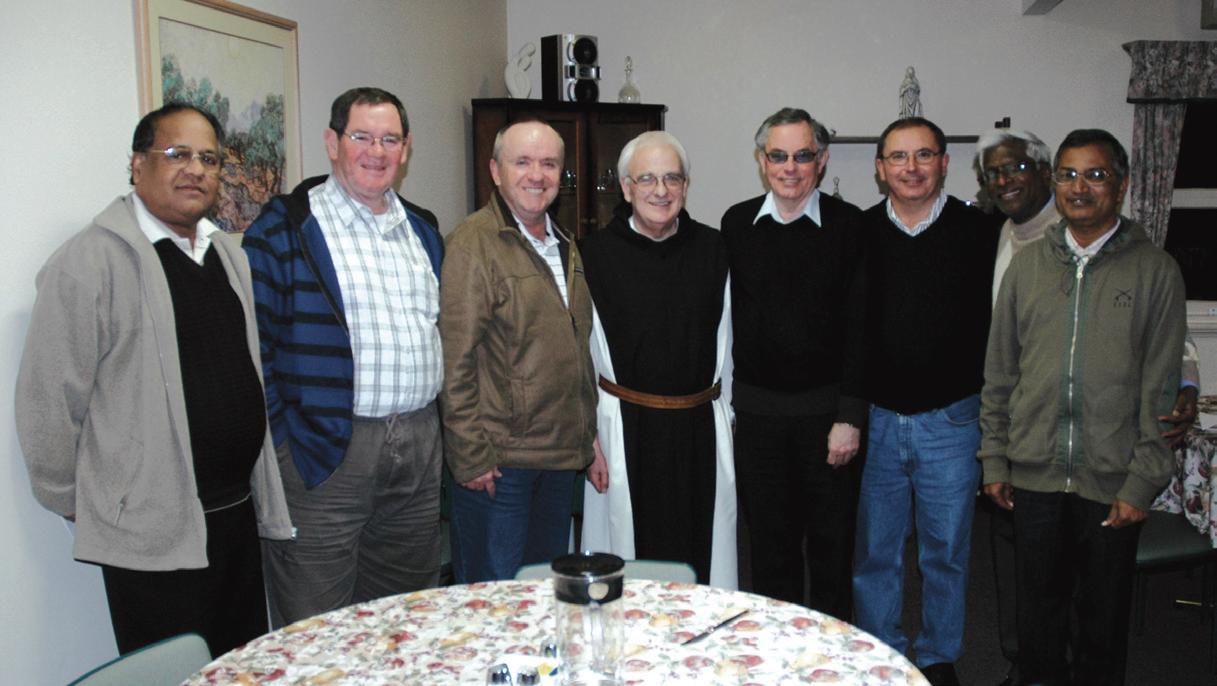
delighted with the talks. Comments included: “one of our best retreats ever”, “his talks, laced with some humour, were clear, challenging and encouraging” and “he was down to earth and practical in his
suggestions about growing in the spiritual life”. Fr Casey is also the author of many books, including Toward God: The Ancient Wisdom of Western Prayer and A Guide to Living in the Truth.
Page 6 31 August 2011, The Record
Priests and deacons joined Cistercian monk and retreat master, Fr Michael Casey.
PHOTO: FR J JEGOROW
Brother Christopher Jacob Lim outside the Norbertine priory in Queens Park, above, and scenes from his profession of solemn vows, below, including his father presenting the offertory gifts and members of his family presenting traditional Peranakan Chinese gifts of blessing. PHOTOS: R HIINI
Bosnian peace at risk: official
By Jonathan Luxmoore
WARSAW - A Bosnian church leader is concerned that peace could again be at risk in the Balkan country because of failure by the international community to ensure “justice and human rights for all”.
“The peace agreement and constitution which ended the war here were designed not by the people and parliament of Bosnia-Herzegovina, but in the United States”, said Monsignor Ivo Tomasevic, secretary-general of the Sarajevo-based Catholic bishops’ conference.
“For politicians everywhere,
Indonesian harmony threatened by greed
KUPANG - There are more threats to Indonesia’s national unity and ideals than most people think, participants have been told at a seminar organised by the Union of CatholicUniversity Students of the Republic of Indonesia.
Ethnic conflicts such as the struggle for independence in Papua and West Papua, as well as religious extremism, were the main issues most people identified as threats to harmony in the country, participants at the seminar in Kupang, East Nusa Tenggara province, were told.
But there were also several others fast becoming causes for concern, according to Norbert Jegalus, a lecturer at the Catholic University of Widya Mandira’s faculty of religious philosophy.
There was a third and rapidly spreading grouping called greed that could also be added to the mix, he said.
The whole fabric of society was being destroyed by greed in the form of corruption, crime, selfishness by individuals and the preoccupation of officials in looking out for their own welfare, he said.
“Money controls everything, everywhere. It even can buy the law,” he added.
“Indonesia is a nation state,” he maintained. “If certain parties want to create their own set of national ideals by eliminating the primordial identity of all national components, then they will only create conflict. Many will fight against such efforts,” he continued.
Anti-social actions that fall under the umbrella of greed “are all harming our national ideals”, the chairman of the synod of the Protestant Evangelical Church in Timor warned. UCAN
what’s most important is power. They’ll use every means available to get it, including people’s fears that they’re being marginalised by other ethnic groups”, he said.
In a Catholic News Service interview, Mgr Tomasevic said the 1995 peace accord had ended the country’s bloody three-year conflict but failed to bring a “stable and lasting peace”. He said conditions had since worsened for the country’s depleted Catholic minority.
The Monsignor added that only 3 per cent of the 200,000 Catholics who fled Bosnia’s northern Serbcontrolled Republika Srpska had
come home since the 1995 Dayton Accords were finalised, while 40 Catholic parishes in the Sarajevo archdiocese remained “destroyed and depopulated.”
“This accord stopped the fighting but only by compromising with injustice and legalising ethnic cleansing carried out by the strongest factions,” Mgr Tomasevic said. “Even after 16 years, people still don’t feel safe, since they know they’re living in a state where war crimes have been rewarded, rather than challenged and condemned. If someone throws me violently out of my home, and then offers to let me
have half of it back, how can people outside applaud and tell me I should stop complaining?”
Catholics made up 18 per cent of Bosnia-Herzegovina’s 4.3 million inhabitants before war broke out in 1992. At the time, 44 per cent of the population were Muslims and 35 per cent were Serbian Orthodox.
However, the country’s four Catholic dioceses currently number fewer than half their inhabitants before conflict, according to Church statistics. The conflict claimed 200,000 lives and ended with the formation of a separate Bosnian Serb state and Croat-
Muslim federation in a single country. In summer 2010, Church leaders in Sarajevo accused radical Muslims of stirring interfaith tensions after a group of city council officials threatened to tear down a planned monument honouring Blessed John Paul II outside the capital’s Heart of Jesus Cathedral. In his interview, Mgr Tomasevic said the bishops’ conference had welcomed the Dayton Accords for ending the war, but believed the agreement had failed to achieve stability for Bosnia-Herzegovina, which was still governed by different laws and procedures. CNS
Happy 101st anniversary for Mother Teresa
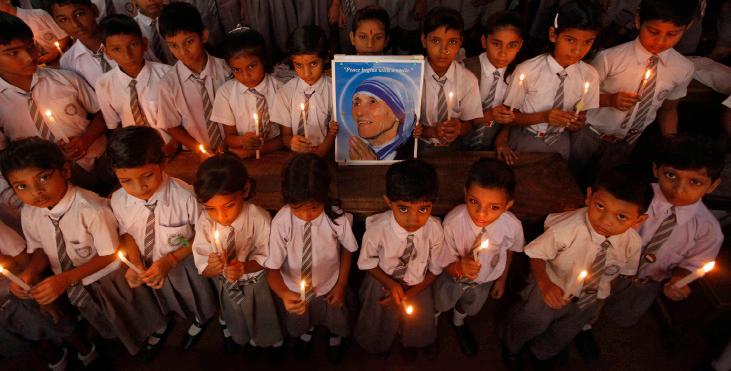
Pakistani pilgrims go green
By nadim munir
MARIAMABAD - Thousands of saplings would be distributed to pilgrims taking part in Pakistan’s main Marian pilgrimage to spread the environment conservation message, said Catholic leaders.
“We used to choose theological topics for the pilgrimage but switched to a secular subject which is deeply affecting our country”, said a member of the pilgrimage committee, Auxiliary Bishop Sebastian Shah of Lahore.
“The recent devastation caused
by floods can be attributed to global warming”, he said. To raise environmental awareness, 3,000 saplings would therefore be given to the thousands of pilgrims expected to take part in the annual pilgrimage to the National Marian Shrine.
The 3-5 September pilgrimage to the Christian village of Mariamabad has the theme Holy Mary, Queen of the universe “Mary and the Earth are our mothers,” said Archbishop Lawrence Saldanha of Lahore, explaining this year’s theme.
The emphasis on the environment was “an attempt to raise awareness that saving the environment is a religious duty”, said the prelate, who is also a member of the pilgrimage committee.
Meanwhile, special intentions have been offered at Sunday Masses for the victims of Pakistan’s worst floods. Reports say more than 1,500 people have died and 3 million have been affected.
More rains are expected, threatening aid efforts. People also fear the outbreak of water-borne diseases such as cholera. UCAN
Boston Cardinal names accused clergy
BOSTON - Cardinal Sean O’Malley has released the names of 159 of 250 archdiocesan priests or deacons accused of sexually abusing a minor, including 22 whose cases have not been resolved canonically.
In a letter to the people of his archdiocese, the Cardinal said the decision represented “one more step forward in our efforts to assume responsibility for our past failures and reaffirm our commitment to assure that our present-day standards protect the children of our community”.
The 91 names not released by the Cardinal included 62 dead priests for whom allegations were not fully investigated and whose names had not been made public
earlier; 22 priests against whom allegations could not be substantiated; four priests or former priests not in active ministry for whom a preliminary investigation has not been completed; and three who had already been laicised or dismissed before they were accused.
“I hope that other dioceses and religious orders will review our new policy and consider making similar information available to the public to the extent they have not already done so,” he said. The Cardinal said he had attempted to “balance several considerations” in drawing up the revised policy which include a need for the Church “to be open about clergy accused of crimes against
children in order to help foster the process of healing and restoration of trust”, as well as the fact that former priests or deacons who have been laicised or dismissed are “no longer under the authority of the archdiocese” but could “pose an ongoing risk to children.”
But the policy also takes into account that “in the present environment, a priest who is accused of sexually abusing a minor may never be able to fully restore his reputation even if cleared after civil or canonical proceedings” and the fact that a priest accused years after his death would have “no opportunity to address the accusations”.
“I believe that, to the extent possible, our revised policy addresses
the concerns and views that have been expressed, is consistent with if not more expansive than civil law, and best balance the considerations mentioned above”, Cardinal O’Malley said. He also wrote separate letters to archdiocesan priests and the survivors of sexual abuse. “It is not easy for us to face the realities of the terrible betrayal of children and criminal acts perpetrated by some of our brethren,” he told priests. “With the commitment to serve the people entrusted to our care, let us go forward to continue the work of renewing the Church. No matter how frequently expressions of apology and remorse are offered, it is never enough” he said.
Irish priest defends role in scandal
DUBLIN - The Irish priest blamed in an official report for his failure to report cases of alleged clerical abuse to the authorities has defended his actions but also said he should have resigned from his position.
Monsignor Denis O’Callaghan, the former vicar general of the diocese of Cloyne, said he still didn’t agree with the Irish Catholic Church’s 1996 guidelines that made the reporting of such alleged abuse cases mandatory, and should have resigned in protest against them.
“For most of those priests accused in Cloyne, the complaints alleged incidents dating back over 30 or 40 years. Of those priests, some would now be terminally ill while others would be under constant medical care,” said Mgr O’Callaghan in a letter to the Irish Catholic
A judicial inquiry has blamed him for failing to report nine cases of alleged abuse made between 1996 and 2005. The Monsignor was charged with child safety by Bishop John Magee.
Bishop Magee resigned his office last year, while Mgr O’Callaghan retired this year.
The Monsignor said he argued against the 1996 guidelines when they were being drafted because the “form of mandatory reporting” compromised his “Christian duty of pastoral care.”
CNA
Page 7 31 August 2011, The Record
Schoolchildren take part in a ceremony marking the 101st anniversary of the birth of Blessed Teresa of Kolkata on 26 August. PHOTO: CNS/RUPAK DE CHOWDHURI, REUTERS
world
Congolese plead for support
KINSHASA - Congolese religious leaders have expressed worries that November elections will be marred by violence and have called on the international community to ensure optimal security for people and ballots after the polls.
“We fear turbulent, rather than peaceful, elections”, said a statement signed by eight leaders including Bishop Nicolas Djomo Lola of Tshumbe, president of the Catholic bishops’ conference.
Other signatories included the legal representative of the Islamic community in the Congo and a range of Christian churches includ-
Muslims share same concerns
VATICAN CITY - The head of the Pontifical Council for Interreligious Dialogue has encouraged Catholics and Muslims to work together to promote spirituality.
Cardinal Jean-Louis Tauran said both Christians and Muslims were concerned about the challenges of materialism and secularisation and the loss of the importance of spiritual and moral values in society.
The message, was issued in 30 different languages and addressed to Muslims around the world to mark the end of Ramadan.
Cardinal Tauran deplored that “Christians and Muslims were too often witnesses to the violation of the sacred” and often mistrusted by others.
“We cannot but denounce all forms of fanaticism and intimidation, the prejudices and polemics”, as well as the fact that believers are, at times, the object of discrimination by people in society, politics and the mass media, he said.
“Christians and Muslims, beyond their differences, recognise the dignity of the human person endowed with both rights and duties,” the Cardinal wrote.
Younger generations embracing religious and moral values was a common concern, he said. CNS
ing the Orthodox, Salvation Army, Kimbanguist, the Church of Christ and Church of the Awakening. The statement was signed by hand by each signatory, underlining the broad support it has received.
The elections are only the second general elections since independence in 1960; the last largely successful election was in 2006.
Earlier this year, Catholic bishops expressed concerns about political developments that could destabilise the country including the ruling party’s hasty amendment of the constitution to eliminate a second round of elections, even
in cases where a first round does not produce an outright majority. In the statement, religious leaders said fear of disturbances had led them to speak out in an effort to prevent violence.
“To be silent now would be just to be accomplices of possible disturbances and an ensuing catastrophe for the country”, the statement read. “Our intervention is in the spirit of avoiding unhappy outcomes that will profit no one but only lead to a spiral of violence.”
The leaders said political officials have a responsibility to ensure their candidates respect electoral
laws and avoid fraud and corruption. They called on candidates to exercise “wisdom, understanding, peace, self-control and tolerance”.
“Peaceful elections depend on the capacity of candidates to interact with their adversaries”, avoiding “insults, lies, personal attacks, intrigue, manipulation and any other practices that could fuel local or national tensions”.
Candidates must also remember that their words and acts have a strong influence on their supporters, and they have a responsibility to exercise restraint, the religious leaders said. CNS
Open your eyes to the suffering
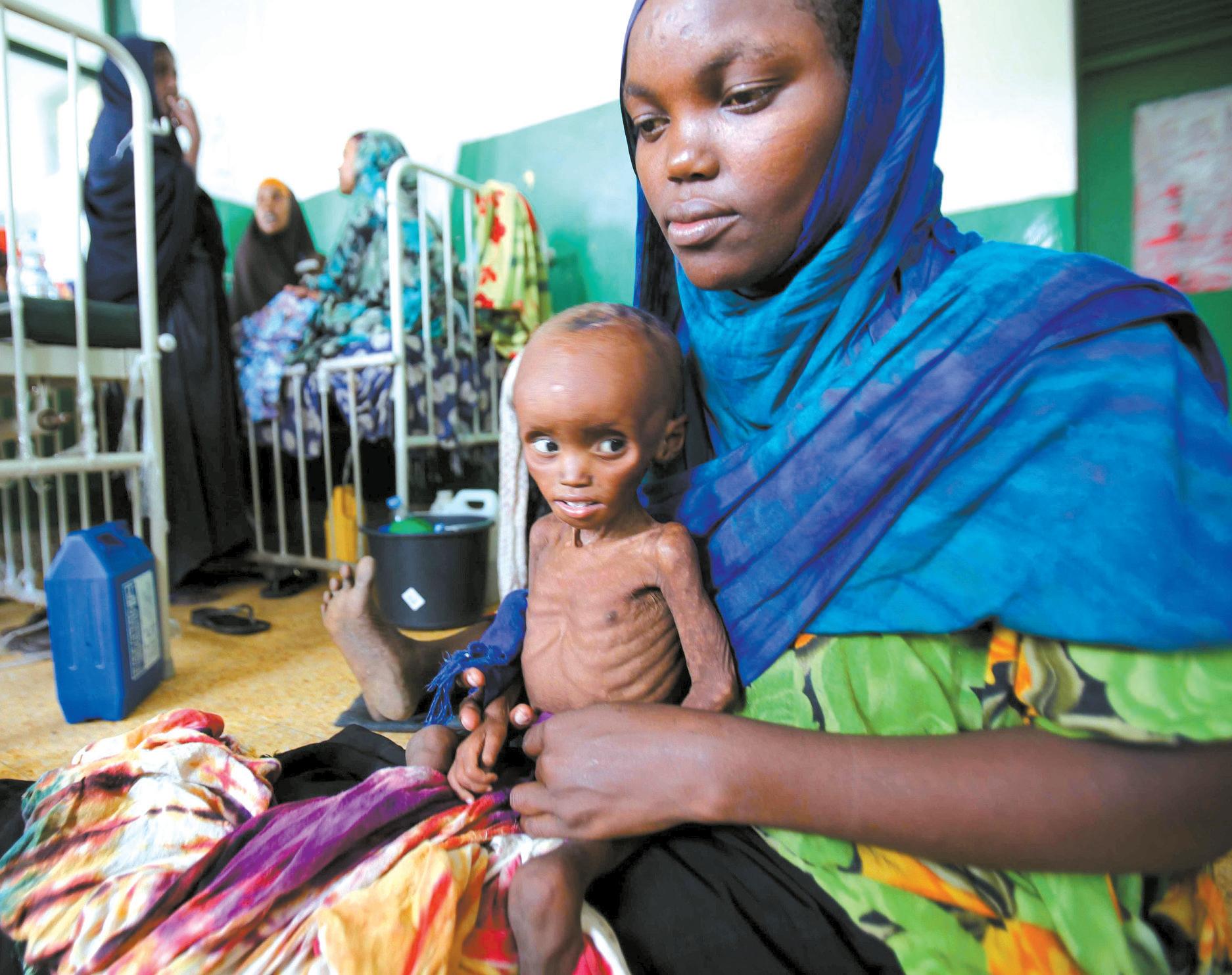
Good for a song one chanted evening
By Mark Pattison
THE NEW General Instruction of the Roman Missal has eliminated use of the word “song” from the General Instruction promulgated just eight years ago in favour of the word “chant”, but don’t be so quick to ditch those hymnals.
The hymns that have been part and parcel of Catholic worship are likely to continue for some time.
“Our interpretation of ‘chant’ is in using the word ‘chant’ in a generic way, a translation of (the Latin) ‘cantus,’ ‘that which is sung,” said Father Richard Hilgartner, executive director of the US bishops’ Secretariat for Divine Worship.
When the Church uses “chant” in the General Instruction, he said, it is “really talking about what texts are sung, not the musical form”.
Of course, tell that to the blogosphere, home of rhetorical volleys back and forth on every issue, the new General Instruction included. “If it weren’t for the blogosphere, we wouldn’t be having this conversation,” Fr Hilgartner said. “We’d just be going about our work.”
On the first Sunday of Advent, the new English translation will begin to be used in parishes. “It’s
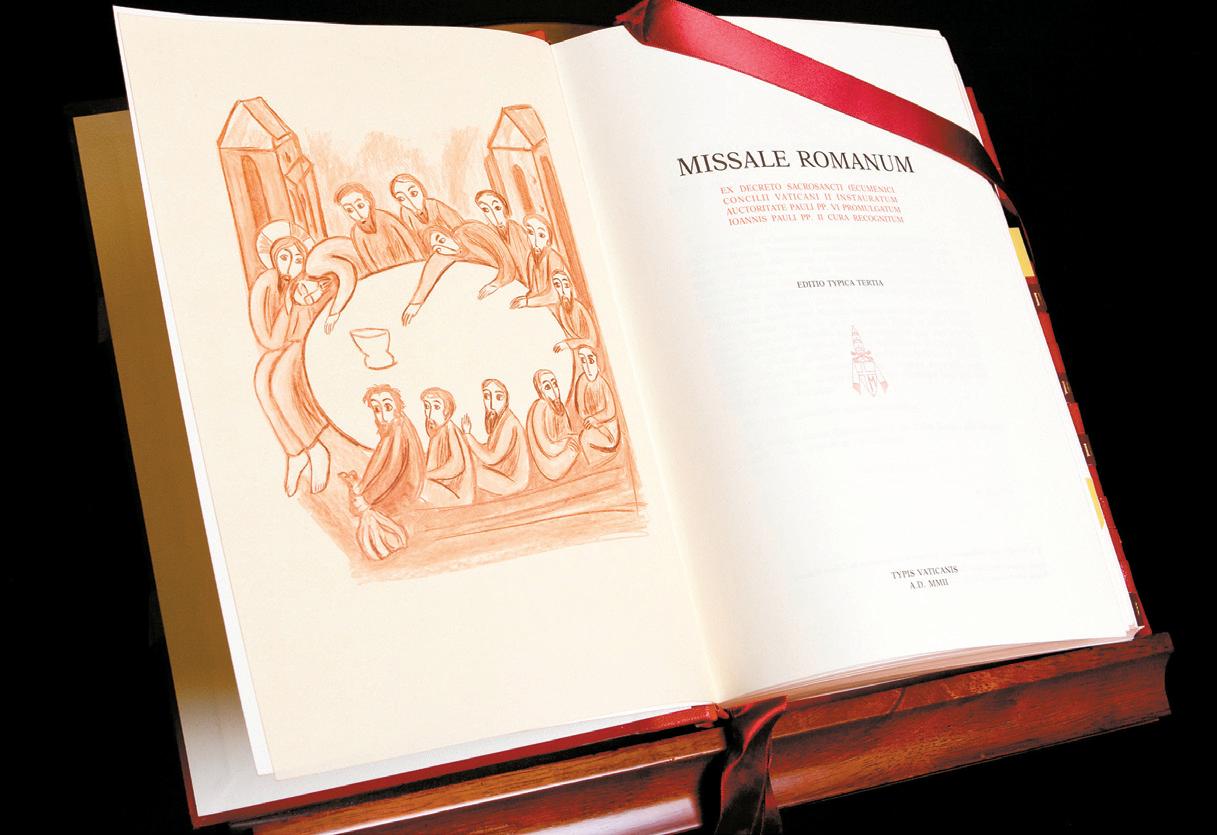
a very hot topic right now in the Catholic blogosphere,” said Jerry Galipeau, associate publisher at World Library Publications, a liturgical music composer and a blogger on liturgical issues.
“There’s a camp that’s becoming entrenched, (saying) the proper antiphons found in the missal are as essential to the liturgy as the reading, and no one would ever replace them with something else.”
In liturgical terms, “proper”
refers to texts used for a particular day, feast or rite. Each Mass includes verses from Scripture as entrance and Communion antiphons. However, they are most often used when there is no music for the Mass.
“It has kind of been under the radar, it’s ebbed and flowed in history. Mass propers have been staples since the 7th century,” said Jeffrey Tucker, a proponent for the use of chant with the new missal.
INDIA
Bishops won’t stomach teetotal turnaround
BANGALORE - Churches in the southern state of Kerala have publicly expressed opposition to the state’s liberalised liquor policy, with a fast led by half a dozen bishops and dozens of prohibition activists. Bishop Sebastian Thekethecheril of Vijayapuram, chairman of the Temperance Commission of Kerala Catholic Bishops’ Council, said: “The new liquor policy of the government is totally unacceptable and contrary to promises made to us by the present government.” The fast ended in the evening when Bishop Sam Mathew of the Church South India offered lime juice to Bishop Thekethecheril.
UNITED STATES
Arizona court approves abortion restrictions
PHOENIX - The Arizona Court of Appeals ruled on 18 August that restrictions on abortion passed by the state’s legislature were both reasonable and constitutional. Following the decision, Planned Parenthood announced it would no longer perform abortions at seven of its Arizona clinics. Bishop Thomas Olmsted of Phoenix said he was pleased with Planned Parenthood’s announcement “I give thanks to God that the killing of unborn children will cease, at least for the time being, at a number of Planned Parenthood’s facilities,” he said. “This is a small victory in a long struggle, but an important one because each day innocent lives will be saved as a result of it.”
ZAMBIA
Condolences for government’s critic
After the Second Vatican Council in 1963 permitted the Mass to be celebrated in the vernacular, “there was a lot of confusion that followed,” he said. “Pretty much there has been no effort in this direction since 1963.”
Fr Hilgartner gave an example of how an antiphon could be interpreted musically. “If the antiphon that’s printed in the missal is Psalm 23, ‘The Lord is my shepherd,’ a legitimate use would be The King of Love My Shepherd Is, which is a hymn.” He added that at the Mass he celebrated earlier, he used Where Charity and Love Prevail. “It’s chant, but it’s a hymn. There are those who want to turn this into a battle between chanted antiphons and strophic hymnody”, but the new General Instruction is “not that restrictive”.
Chant has a legitimate place in Catholic worship, Fr Hilgartner said, but “there’s room for other legitimate cultural adaptations, which includes the form that music for liturgy takes.” He added the word “song” was removed from the new General Instruction of the Roman Missal because “it sounds secular, even when it’s preceded by ‘liturgical’”. ACN
LUSAKA - Zambian President Rupiah Banda has expressed sorrow at the death of Bishop Paul Duffy who served in the diocese of Mongu for 14 years and was known for criticising the Zambian government for neglecting the needs of poor people. The US-born bishop died of leukaemia at the Oblate retirement home in San Antonio in the United States. He was 79. In a letter to the Zambia Episcopal Conference, Banda said even though he differed with the Bishop on some issues, he was a very intelligent person. Paul Francis Duffy, born 25 July 1932, was ordained an Oblate priest in 1962. He travelled to Zambia in 1984 and served as parish priest in the Catholic parishes of Lukulu and Kalabo until 1997. He became the first bishop of Mongu Diocese in 1997.
VATICAN
Themes announced for next World Youth Day
CASTEL GANDOLFO - Pope Benedict XVI has announced the themes he has chosen to guide the reflections of young Catholics next year on a diocesan level and in Rio de Janeiro in 2013. The 2012 theme, he said at his weekly general audience on 24 August, would be: “Rejoice in the Lord Always.” The theme for the international in Rio, would be: “Go and Make Disciples of All Nations.” As is customary at the first general audience after a trip abroad, Pope Benedict dedicated his talk to a review of the meetings and experiences of his “extraordinary days” in Madrid. “It was a very moving Church event,” he said. “Almost two million young people from every continent joyfully lived the formidable experience of brotherhood, encounters with the Lord, sharing and growing in the faith. He said World Youth Day had proven to be a significant event in the lives of many young people who later pursued a vocation.
Page 8 31 August 2011, The Record
world
AGENCIES
A woman holds her malnourished child at the Banadir Hospital in Mogadishu, Somalia. Thousands have made the treacherous journey from the worst-hit drought areas to the city seeking food and medicine. To donate to Caritas Australia’s East Africa Crisis Appeal, go to www.caritas.org.au or phone 1800 024 413. PHOTO: CNS/ISMAIL TAXTA, REUTERS
Life for workers echoes 19th century
WASHINGTON - The difficulties faced by workers today have been likened to those that inspired Pope Leo XIII’s landmark encyclical of 120 years ago, Rerum Novarum, which ushered in the modern era of Catholic social teaching.
“Over 9 per cent of Americans are looking for work and cannot find it,” says the head of the US bishops’ Committee on Domestic Justice and Human Development in an annual statement for the US Labor Day.
“Other workers fear they could lose their jobs. Joblessness is higher among African-American
Outlook for
Iraqi flock continues to deteriorate
By John newton
MADRID - An Iraqi bishop at World Youth Day has decried the plight of Christians in Iraq following renewed violence in the country.
The auxiliary Chaldean Bishop of Baghdad, Shlemon Warduni, spoke to Aid to the Church in Need, the charity for persecuted and other suffering Christians, about the attacks that occurred across Iraq in mid-August.
More than 65 were killed and 50 injured in at least 17 separate attacks, including two in Kut, a city south-east of Baghdad.
The Bishop criticised the deterioration of security in the country following the 2003 invasion of Iraq.
“Why did they come? To do what? They came to give us freedom. The freedom to kill one another”, he said.
Bishop Warduni noted the declining Christian presence in the country as the faithful had fled abroad in response to the violence.
Estimates put the number of Christians in the country as no more than 200,000.
“We are seeing so much immigration”, he said. “We did not see this much immigration in the last 300 years!”
Bishop Warduni underlined his own determination to stay in the country despite the violence, saying: “I am a bishop, I am a shepherd, I must be there until the Lord calls me elsewhere. I will not leave my nation and my people”.
He went on to speak about the faith of Iraq´s Christian community: “Our hope is in the Lord alone.”
“I ask everybody to pray for peace and security and to illuminate the governments to do something good for Iraq and the Middle East.” The Bishop pointed out that someone has to arm those who carry out acts of violence and condemned countries and corporations who profit from weapons sales. ACN
and Hispanic workers. Wages are not keeping up with expenses for many”, says Bishop Stephen Blaire of Stockton, California, in the statement Human Costs and Moral Challenges of a Broken Economy
“Countless families have lost their homes, and others owe more on their homes than they are worth. Union workers are part of a smaller labour movement and experience new efforts to restrict collective bargaining rights”, he continues. “Hunger and homelessness are a part of life for too many children.”
Bishop Blaire notes that “at the time of the Industrial Revolution
workers also faced great difficulties. Pope Leo XIII identified the situation of workers as the key moral challenge of that time and issued his groundbreaking encyclical Rerum Novarum. This letter has served as the cornerstone for more than a century of Catholic social teaching”.
“This timely encyclical lifted up the inherent dignity of the worker in the midst of massive economic changes”, the statement says. “This encyclical is best remembered for Pope Leo’s prophetic call for the Church to support workers’ associations for the protection of work-
ers and the advancement of the common good.
“Beginning in Rerum Novarum, the Church has consistently supported efforts of workers to join together to defend their rights and protect their dignity.”
This teaching had been affirmed consistently by Leo XIII’s successors, including Blessed John Paul II and Pope Benedict XVI, who wrote in his 2009 encyclical Caritas in Veritate: “The repeated calls issued within the Church’s social doctrine, beginning with Rerum Novarum, must therefore be honoured today even more than
in the past. But, by the same token, “unions, like other human institutions, can be misused or can abuse their role”.
Where unions have taken positions the Church cannot support, Church and labour leaders “should address them in principled, respectful and candid dialogue”.
“This should not keep us from working on our own and together to advance common priorities of protecting worker rights, economic and social justice, overcoming poverty, and creating economic opportunity for all.”
CNS
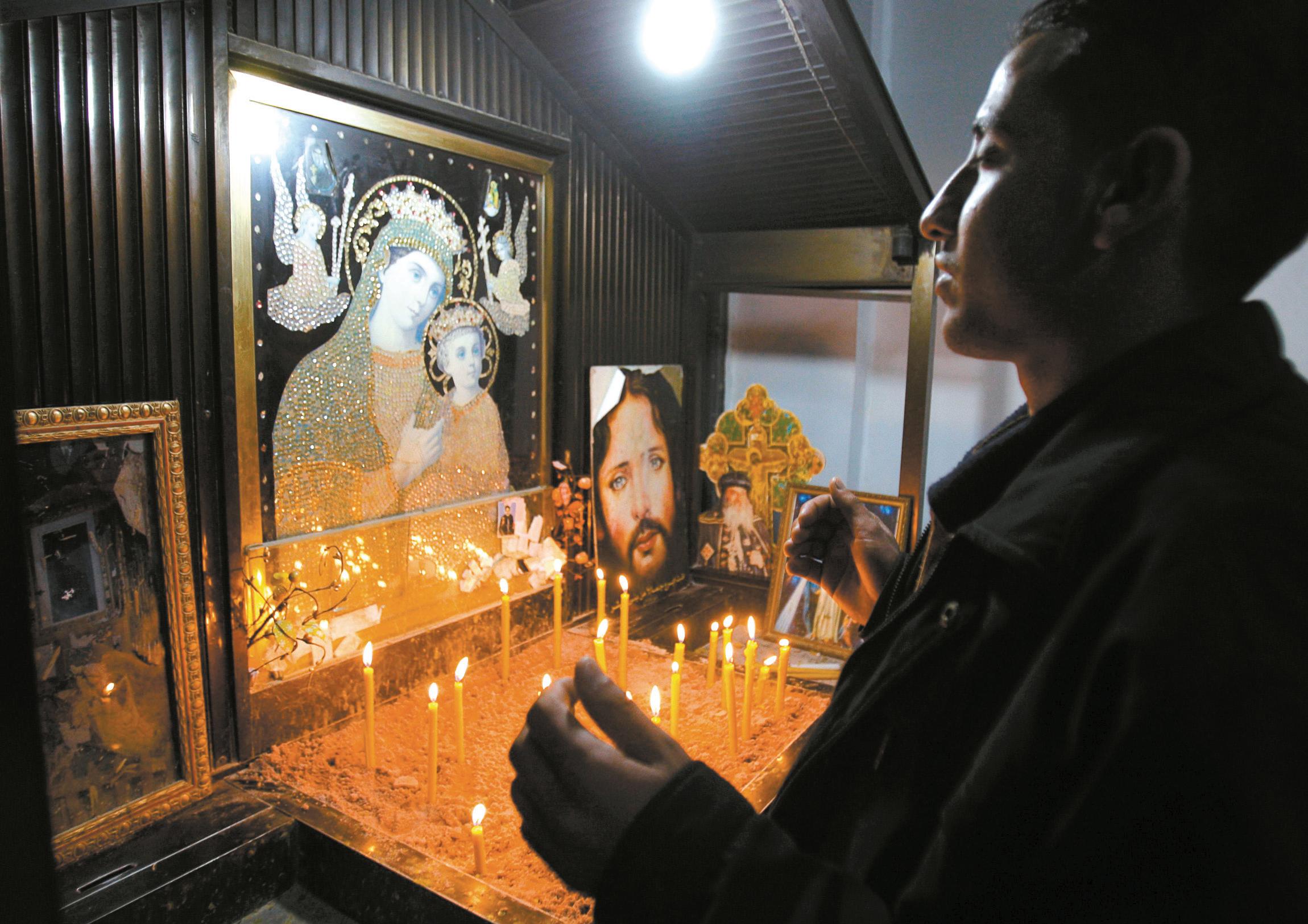
Middle East needs courage, less fear
VATICAN CITY - Christians in the Middle East should not live in fear of changes but act with courage to denounce injustice and with a Christian attitude of willingness to dialogue, said the head of the Franciscan Custody of the Holy Land.
“There is great uncertainty and fear” among Christians in Egypt and Syria, Father Pierbattista Pizzaballa told Vatican Radio. Speaking to the radio in Rimini, Italy, Fr Pizzaballa said that, too
often, if Christians in the Middle East express concern about problems or potential tensions between Christians and Muslims, they are accused of “wanting to accentuate the differences”.
“If, on the other hand, you say there is collaboration and sharing, you’re naive”, he said. “Both these experiences exist. It’s not one or the other.
“There are experiences of sharing, but also elements of fundamentalism, division and persecution” in
the region, he said. “We must not be afraid but we must have the courage ... to say how things really are with clarity, but also maintaining a Christian attitude of witness, openness, welcome and trying in every case to reconstruct dialogue and relationships,” he said.
“From a strategic point of view, if we want to be practical, there is no alternative, but also because this is what our faith teaches.”
In parts of the Middle East and the wider Arab world, Christians
can witness to their faith only through the way they live and relate to others, he said.
The changes sweeping through countries across North Africa and over to Syria obviously give rise to hopes, but also concerns, he added.
“Right now in Egypt there is much fear and uncertainty because, after a period of euphoria” and unity after the fall of President Hosni Mubarak, “it seems that the more fundamentalist parties are prevailing,” he said. CNS
Dissidents keen to show Vatican error of its ways
By Carol Glatz
VATICAN CITY - The head of a group of traditionalist Catholics is scheduled to meet with the Vatican on 14 September 14 to continue a series of doctrinal discussions.
The Vatican has confirmed that Bishop Bernard Fellay, the superior general of the Society of St Pius X (SSPX), will travel to Rome to meet with Cardinal William Levada, the head of the Vatican’s Congregation for the Doctrine of the Faith.
The superior of the SSPX in
Germany, Fr Franz Schmidberger, wrote on the group’s website that the meeting would discuss the results of doctrinal dialogues from the past two years.
He said the talks would focus on the SSPX’s “point of view of canon law”, and the atmosphere of previous talks had been “very good”.
The talks were launched in late 2009 in an effort by Pope Benedict XVI to repair a 21-year break with the society. The Pope said that full communion for the group’s members would depend on “true recog-
nition of the magisterium and the authority of the Pope and of the Second Vatican Council”.
However, Bishop Fellay has said the society has been using the talks as a means to show the Vatican the contradictions between the Church’s traditional teachings and its practices since Vatican II. The dialogue was not a search for compromise but “a question of faith”, Bishop Fellay said in February.
Fr Davide Pagliarani, the society’s superior in Italy, said “the canonical situation in which the
society presently finds itself is (the) result of its resistance to the errors that infest the Church”.
“Consequently, the possibility of the society arriving at a regular canonical situation does not depend on us but on the hierarchy’s acceptance of the contribution that tradition can make to the restoration of the Church,” he said in an interview published on the society’s website.
Pope Benedict XVI placed the pontifical commission Ecclesia Dei under the authority of the Congregation for the Doctrine of
the Faith in July 2009. The commission is responsible for talks aimed at restoring “full communion” with members of the SSPX, founded by Archbishop Marcel Lefebvre. The Vatican said the talks had focused on the concept of tradition, liturgical reform, interpretation of the Second Vatican Council in continuity with doctrinal tradition, church unity, ecumenism, the relationship between Christianity and non-Christian religions, and religious freedom.
Page 9 31 August 2011, The Record world
A Coptic Christian in Amman, Jordan prays for victims of an early January attack on a Coptic Orthodox church in Egypt. Christians in the Middle East should not live in fear of the changes happening across the region, says the head of the Franciscan Custody of the Holy Land.
PHOTO: CNS/ALI JAREKJI, REUTERS
CNS
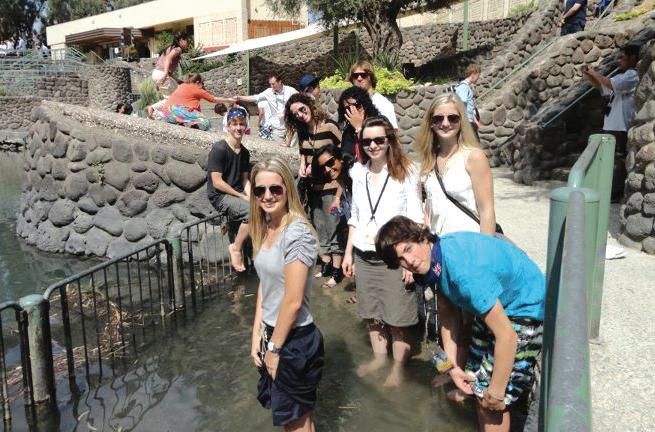
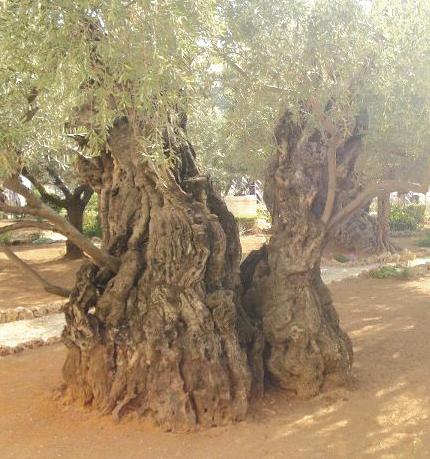
On a warm night in Israel, a conversation was had with a fellow pilgrim about Israel and its referral as the fifth gospel.
The point was that, being in Israel, we pilgrims were in fact experiencing firsthand the presence of God by seeing the places Jesus had seen in his lifetime.
If there was one distinctive idea that could be learned on pilgrimage with Cardinal George Pell, Auxiliary Bishop Julian Porteous and all the pilgrims from Sydney, it was that throughout these two weeks we were doing just that, creating our own Gospel.
Our pilgrimage started in Egypt, and it was here we found the presence of God was a different experience to what awaited us in Israel. Here, following the path

and hardships of the Israelites in exodus, we encountered the awe and wonder of God of the Old Testament. Looking at the desolate and unforgiving land we began to understand the turmoil they must have felt. Trying to comprehend 40 years lost in this terrain was difficult, at best.
Then we arrived at Ayun Musa (the well of Moses) where Moses, by the power of God, brought forth water from the sand for the Hebrew people after parting the Red Sea.
Though the water had long vanished, the reading of the scripture instilled a sense of wonder in us at the truly remarkable miracle that was performed and the power of God manifested there.
Only through God’s will could water spring forth in this harsh and
The Art of LETTING GO
In the middle of 1.5 million pilgrims at World Youth Day, Bridget Spinks got one or two insights into what’s really important while on pilgrimage
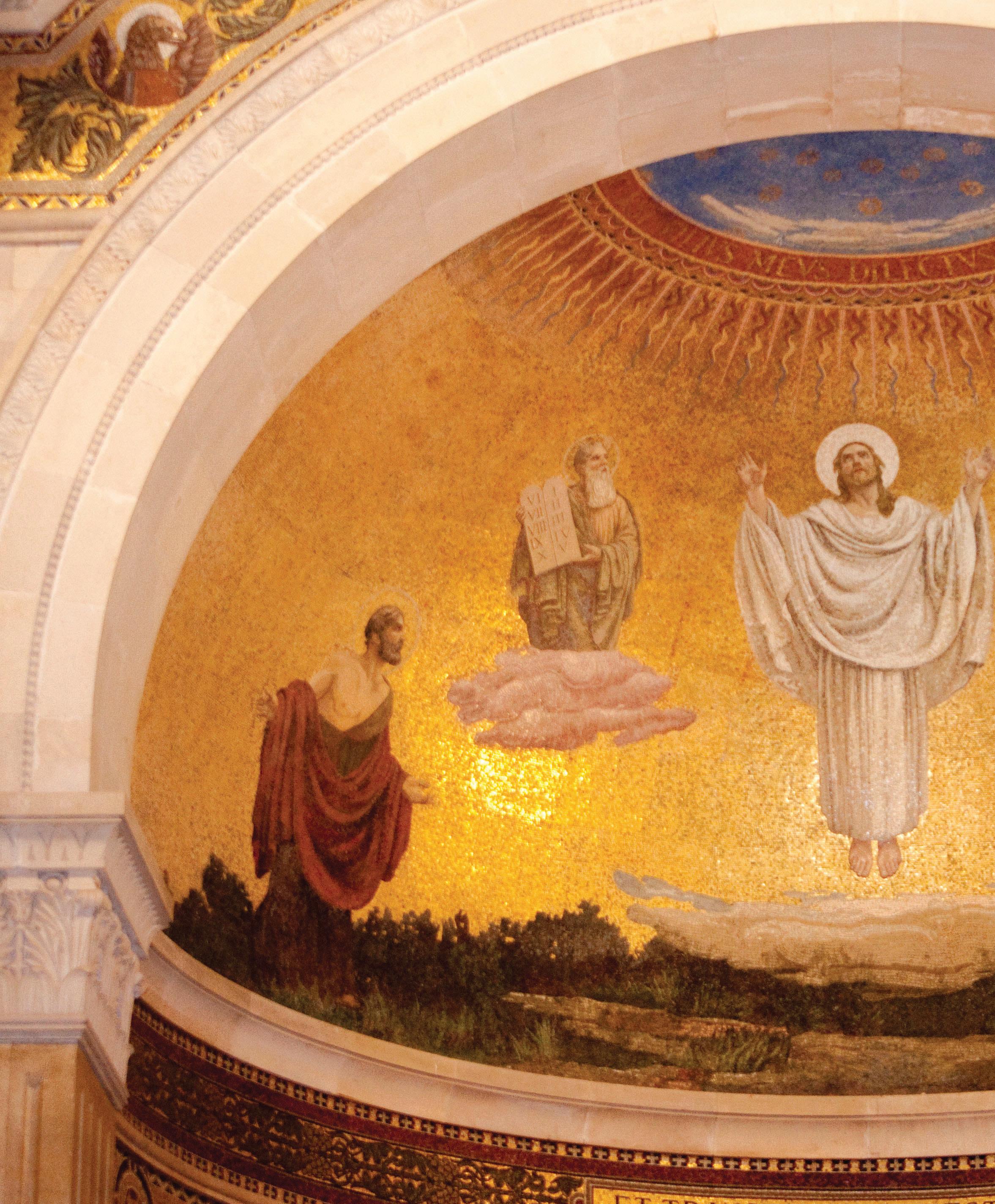
barren land. On the way to Sinai, we passed the well where Moses met Zahara, his wife. We saw the Burning Bush.
The fire extinguisher placed somewhat ironically beside it helped spark in our imagination that such a prominent event in our faith starts this walk in the exodus of the people of Israel. It helped open our eyes to God’s dialogue with humanity.
The need to be open to God’s desire for a direct dialogue with us was also felt as we climbed Mt Sinai in the early hours of the day. The four-hour early morning climb and a dawn reflection on scripture allowed us to ponder how Moses would have felt talking to God as the God of Israel descended on the mountain as fire.
The next phase of the pilgrim-
On pilgrimage to World Youth Day I had to let go of myself as an individual and allow myself to be incorporated into a unit, a group of pilgrims, and surrender everything to God. Sounds easy.
At the famous French shrine of Paray-Le-Monial, birthplace of devotion to the Sacred Heart, I went each afternoon to workshops on holiness given by Monsignor Robert Sarno, a US priest working in the Vatican’s Congregation for the Causes of Saints.
Holiness means doing what you’re supposed to do, when you’re supposed to do it with love, with constancy and with faith, he said.
In short, to be holy means to love.
It’s not every day you get to be this close to hearing the secret to leading a happy and whole life from an expert on saintliness.
This is part of the mystery of World Youth Day, that I had surprise encounters, resonating and inspiring me to actively seek to reorient my life toward God and heaven.
On a day trip to Lourdes I met
The Record’s Mat De Sousa wasn’t exactly sure pilgrimage to Egypt and Israel. But the experience,
How my pilgrimage
Divine Intervention
age in Israel shifted our focus from God the Father to God the Son, Jesus Christ. We began at the Jordan River where all Catholics begin their journey, by renounc-
a Belgian couple who had come to Lourdes, as they have done every year for the last 28 years, to ask God for “one year more”. Theirs was a beautiful witness to married love, faith and commitment and the treasure of pilgrimage.
Another random but inspirational witness to faith came on the metro in Madrid. A fellow pilgrim knelt in the middle of the carriage
ing Satan and reaffirming our baptismal promises. Moving to the nearby village of Nazareth, we experienced a re-creation of a village as it would have looked exactly
confronted with a choice of two good things, but pressed on to the media centre. At the next metro I jumped off, looking around at the cheering of pilgrims going up and down escalators and stairs. I heard someone call my name.
There, one step behind me, was the friend and a colleague I had hoped to meet, but couldn’t since I had no phone. This is how God
”At the next metro in Madrid I jumped off. I heard someone call my name”
to receive a first blessing from a recently ordained Dominican priest. Inspired, I did the same thing. It was World Youth Day, why not? Over and over at WYD, there were experiences to be had of God at work.
I was on the metro aiming to get to Santiago Bernabeu, hoping to bump into a German colleague in the media centre, when I was sidetracked by SMS invitation to lunch with a fellow pilgrim at the Love and Life Site – the home of the English speaking pilgrims in Madrid. I was
works; he brings the people we need to us, those who will help us get to heaven or those we are meant to help. Such surprise encounters became pretty normal in the chaos of getting to and from places but whomever we met and whatever personal encounter we had with other pilgrims became a unique and special moment to share faith.
Trying to get to WYD catecheses with guest bishops became a catechesis in the virtues of patience and sacrifice. It was a mission in
Page 10 31 August 2011, The Record
Above: Pilgrims (left to right) Thomas Langrell, Jessica Langrell, Chantal Khoury, Nat Ambrose, Alison Marie Collet, Matthew Hill, Amy Vierboom, Lauren Langrell and Robert Hill at the Jordan River where Jesus was baptised.
Below (left): An olive tree in the garden of Gethsemane which channels the sombre atmosphere.
Below (right): A pilgrim prays near a tomb of Mary at the Church of the Assumption.
PHOTOS: MADELEINE VELLA, ALISON MARIE COLLET AND MAT DE SOUSA
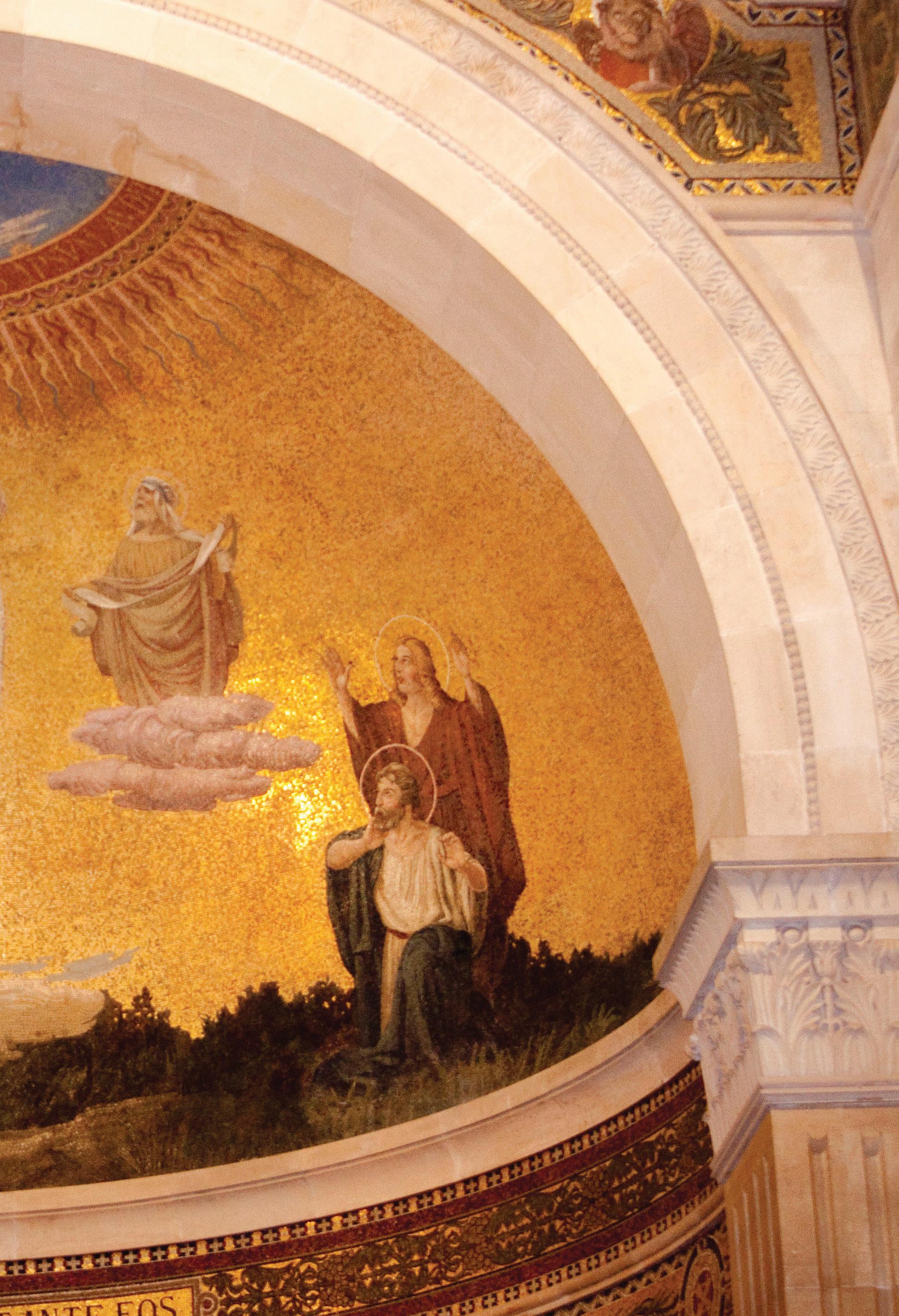
what he would find on a pre-World Youth Day experience, he writes, changed pilgrims’ lives.
pilgrimage relived a little
Intervention
in the days of Jesus. The scripture we heard proclaimed the sights before us and the words we had heard so many times before began to unfold and take on a greater
itself to get from our accommodation site in Alcala de Henares to catecheses, involving two buses, a country train, an underground and stop at the local bar for a “cortado” – a Spanish macchiato.
But having a coffee at a bar was also a chance for a moment of quiet too, to take in the atmosphere of joy radiating on pilgrims’ faces.
I asked Gemma, who was serving at the bar on the morning of the papal Vigil, what she made of all the pilgrim influx.
She said she was from a nearby suburb around Alcala de Henares. She said pilgrims had left a good impression. She said compared with other young people she had seen, these were different. They had values and principles.
There were mixed opinions, though on this. Typically, another Spaniard shared his opinion, disagreeing with Gemma.
One of the high points was seeing 10,000 young people that night in a stadium for the Emmanuel Community hosting a “Noche de Alegria” or “Night of Joy”. As I enjoyed the pilgrim pizza meal, I
meaning in front of our eyes. From this moment, scripture became a greater reality, helping to draw us closer to God. From the Basilica of the Annunciation (where the

watched hordes of pilgrims of all nationalities pass on their way to the stadium. I thought about what it was that had brought them all here. There was a fluidity of movement to the way various groups formed one big group, trying individually and collectively to get to both a temporal destination and, ultimately, to heav-

Archangel Gabriel announced the birth of Jesus to Mary), the Basilica of the Transfiguration on Mount Tabor (the mountain where Jesus revealed himself in all his glory and divinity to his apostles John, Peter and James the brother of John) and the Church of the Wedding in Cana, the events related in scripture played out in our imagination.
Continuing on to Jerusalem, we saw many places along the way that united our reality with that of the time of Jesus but nothing prepared us for Jerusalem itself.
As we walked the Via Dolorosa on our final day in Israel, no other experience came close to this in reassuring us in our faith.
Going to the tomb of Jesus and feeling the stone slab where his body was washed after it was taken down from the Cross sent a pulse
en. The Night of Joy started early. Heady on excitement and the buzz in the air, pilgrims weren’t going to wait for the stage entertainment to lift their spirits.
The night began with praise and testimonies. Special guests included Miguel Angel Manzano, composer of the Emmanuel Community’s WYD song Alegria American Archbishop Charles Chaput, due to be installed as Archbishop of Philadelphia in September, was one of the participants.
Archbishop Chaput preached on the encounter between the disciples and Christ on the road to Emmaus and on the true presence of Christ in the Blessed Sacrament.
“Ultimately, it’s not how you feel that shapes how genuine your encounter with Jesus is”, he said.
“Your relationship with Jesus Christ will be determined by how much you are transformed into him and how much you burn in the desire to bring Christ to others.
In other words, by your actions, in sharing the Gospel with others, in serving the poor and the
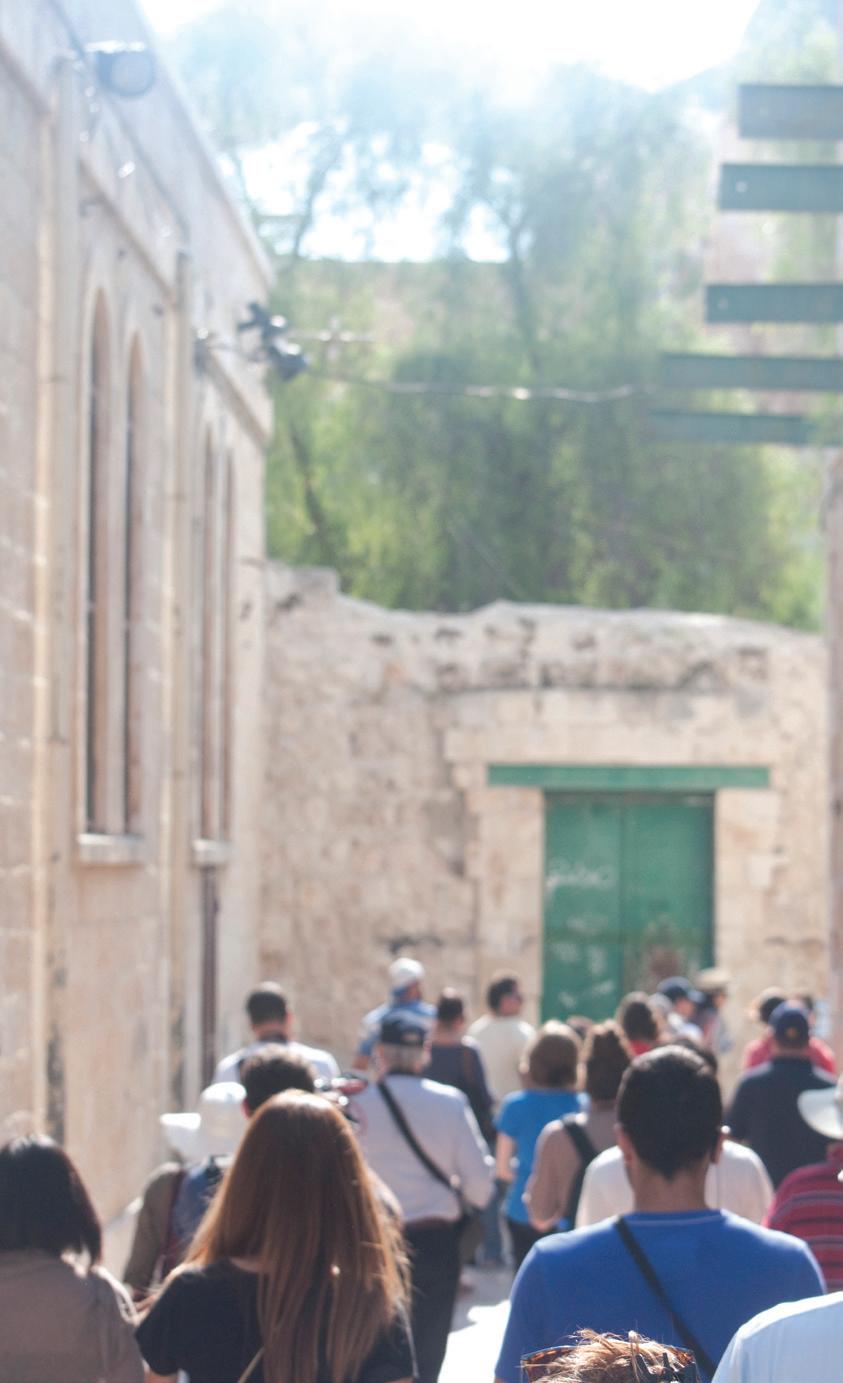
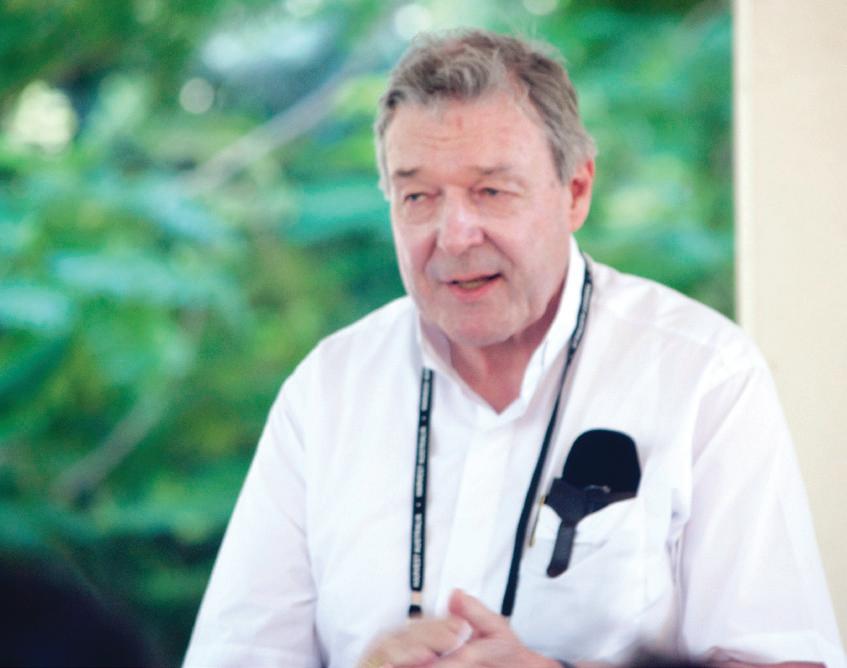
straight to our souls. As we walked towards the tomb in the Church of the Holy Sepulchre, it was as if our senses were being set alight with the presence of Our Lord. This was it: the tomb of Jesus wasn’t some setting in a biblical story we heard in Mass. In that moment it was now a physical beacon of God’s
we have in some ways lived the same momentous events out for ourselves and established a stronger connection to God’s presence in our lives and world by the memories created in our own Gospel.
I thank all the pilgrims on the SYD03 pilgrimage. Their faith and uplifting per-
“Walking the Via Dolorosa on our final day, no other experience came close...”
presence that deeply affected all who were lucky enough to enter. Returning to Perth and listening to the Gospels during Mass, our perception of our Catholic faith has been altered. Whether hearing about Zacchariah climbing his tree to see Jesus, or Jesus carrying his Cross,
needy, by defending the unborn, by building a culture that supports and encourages the growth of Christian families”, he said. To close the night, Christ came to the pilgrims exposed in the Blessed Sacrament. He was carried among them, through and in between kneeling pilgrims and around the stadium to those who stayed to adore him.
These peripheral experiences in the lead up to the papal vigil and final Mass were just as integral to the WYD experience as the official ones.
The experience of going on pilgrimage as an individual is transformed by travelling with a group before WYD. It is transformed again on the roads and in the cafes, metros and buses in the week leading up to the finale.
But the test of the transformation occurs when the pilgrim returns home, and ultimately returning to being an individual.
This pilgrim is not the same as before. This renewed individual is, hopefully, “rooted and built up in Christ, firm in the faith”. The bigger pilgrimage ‘picture’ is prioritising
sonalities turned a journey to the Holy Land into a tent pole of my own faith journey. The wisdom and spiritual guidance of Cardinal Pell and all the clergy involved in this pilgrimage helped change my life and the lives of many of my new found friends.
Mat De Sousa is a designer for The Record
getting close to Jesus here and now and keeping our eyes on getting to heaven. After it was all over, the group I travelled with went back up to Paris for a few days. We visited the remains of St Vincent de Paul and the Chapel of the Miraculous Medal, where Our Lady appeared to St Catherine Labouré.
We visited Lisieux where St Therese of the child Jesus grew up and entered the Carmelite monastery.
Fr Peter-Damien McKinley celebrated Mass in the same chapel where St Therese used to go to Mass.
On a plaque on the wall, the words of the Little Flower were inscribed in French: “Heaven for me is hidden in a little host where Jesus, my spouse, is veiled for love. I go to that divine furnace to draw out life, And there my Sweet Saviour listens to me night and day.”
These encounters with Christ in the places where the saints encountered Christ are moments to cling to once the challenges of everyday life set back in.
They are moments to remember that Christ is always with us.
Page 11 31 August 2011, The Record
Above: A stained glass window encapsulates the church built next to St Joseph’s house in an array of light.
Above (Right): Pilgrims from SYD03 pilgrimage walk the Via Dolorosa on their way to the Holy Sepulchre. Left: Mosaic above the altar in the Church of Transfiguration on Mount Tabor.
Right: Cardinal George Pell, who led the pilgrimage, gives a talk to pilgrims outside the ruins of St Peter’s house. PHOTOS: MAT DE SOUSA
Mass at Lisieux.
PHOTO: BRIDGET SPINKS
Memory
Identity Ukrainian Church in the
Over half a decade in the making, the Catechism of the Ukrainian Catholic Church will help Ukranian Catholics around the world rediscover their spiritual roots, writes Dr Andrew
DURING most of the second half of the 20th century the Ukrainian Catholic Church was the largest underground church in the world. The magnitude of the spiritual passion that took place; the number of martyrs, and the horrific deaths of both clergy and laity, can never be understated, or for that matter forgotten.
Astonishingly, or more correctly, miraculously, on the very first Sunday after the collapse of the Soviet empire and the legalisation of the Church in Ukraine, an estimated five million people went back to the rubble and ruins that were once glorious churches, to sing loudly in public what they had hereto only whispered in their homes and barns for generations.
These people had come back to praise, they had come back to rebuild. They had kept the faith; now the Ukrainian Church needed to re-establish its identity. An integral component of this rediscovery of identity was the catechism.
On 24 June 2011, the first ever Catechism of the Ukrainian Greek Catholic Church, with the title Christ Our Pascha, was launched in L’viv, Ukraine. The catechism is a vital document for the Ukrainian Catholic Church – a treasure-trove of how the Church identifies itself as a Catholic Christian community; as well as a blue-print containing the way by which the Church will seek to evangelise in the future, according to the Eastern Catholic charism. The catechism was spurred on by the call of Blessed Pope John Paul II that each of the sui juris churches clearly establish their spiritual identities.
The title of the catechism is echoed in the first words of the text; that is, the source and fountain of our faith is founded in our faith in the Risen Christ (§1). The opening paragraph establishes the context – that the catechism has at its skeletal structure the Nicene Creed and St Basil the Great’s anaphora and liturgy (§1).
The catechism is divided into three parts: the faith of the Church; the manner in which the Church prays; and the life of the Church (§9). In essence, these categories refer to the tenets of the Creed; the liturgical life; and the
life of the People of God, who are said to be transfigured by grace to participate in the world (§10 and §11).
With regard to the faith of the Church, there are some beautiful passages alerting the faithful to read and listen daily to the Word of God (§13). The faithful are reminded it is in God’s plan of salvation that he has made, through the power of the Holy Spirit, the universal Church; a Church that is: one, holy, catholic and apostolic. These marques are seen in the local and national churches, of which the Ukrainian Catholic Church is one example.
Moreover, the faithful are called to respond to God who was made clearly visible through the Son. Using exquisite phrasing, the catechism calls on the faithful to mutually illuminate one another (§19). Such a phrase clearly alludes to Moses’ glowing demeanour after speaking with God. Our life in the Risen Christ should also see us reflecting the light of faith from person to person.
The catechism speaks of holy tradition – and in doing so emphasises that tradition helps unify the faithful in their common goal to share in the Divine Life (§31). We are successors to the teaching of the apostles and the Church of Pentecost, and this inheritance has been bequeathed to us in order to reach God (§37).
The importance of holy scripture is spoken of by use of the words of St Jerome; that a failure to know scripture is in effect a failure to know Christ (§46). The reading of scripture should be a tradition established in the family home (§46). To authentically understand scripture, one must listen to the words of the magisterium which exist to safeguard the teaching of the Church (§52).
The family is vital for the preservation of the Church; and the Church is vital for the sanctity of the family. The family should establish a culture of prayer; a prayer life that supports the teaching of the Church (§67). For a child to reach a mature faith, a network of prayerful people are needed (§68). Prayer should involve contemplation (§71). Contemplation helps us see the
Kania
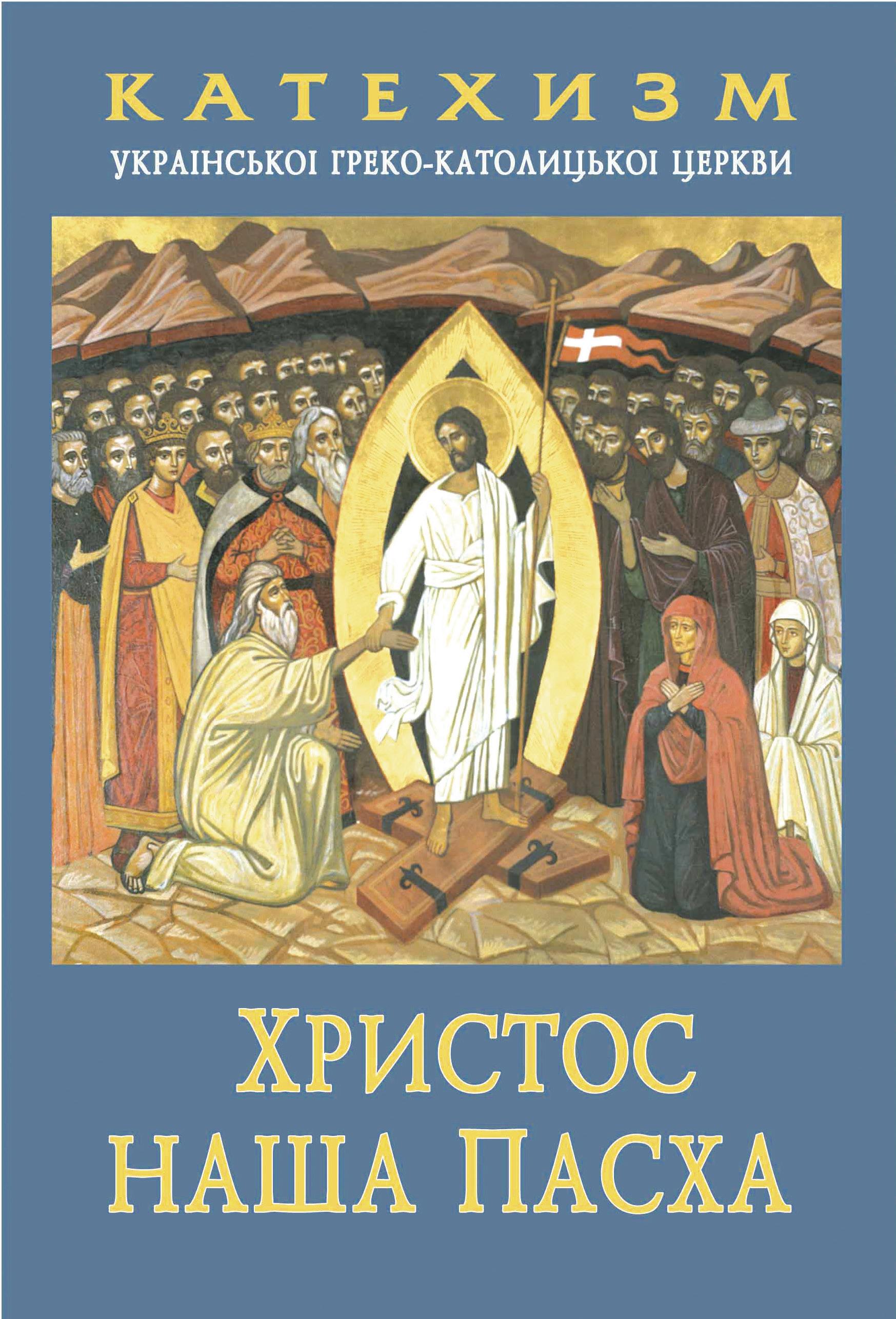
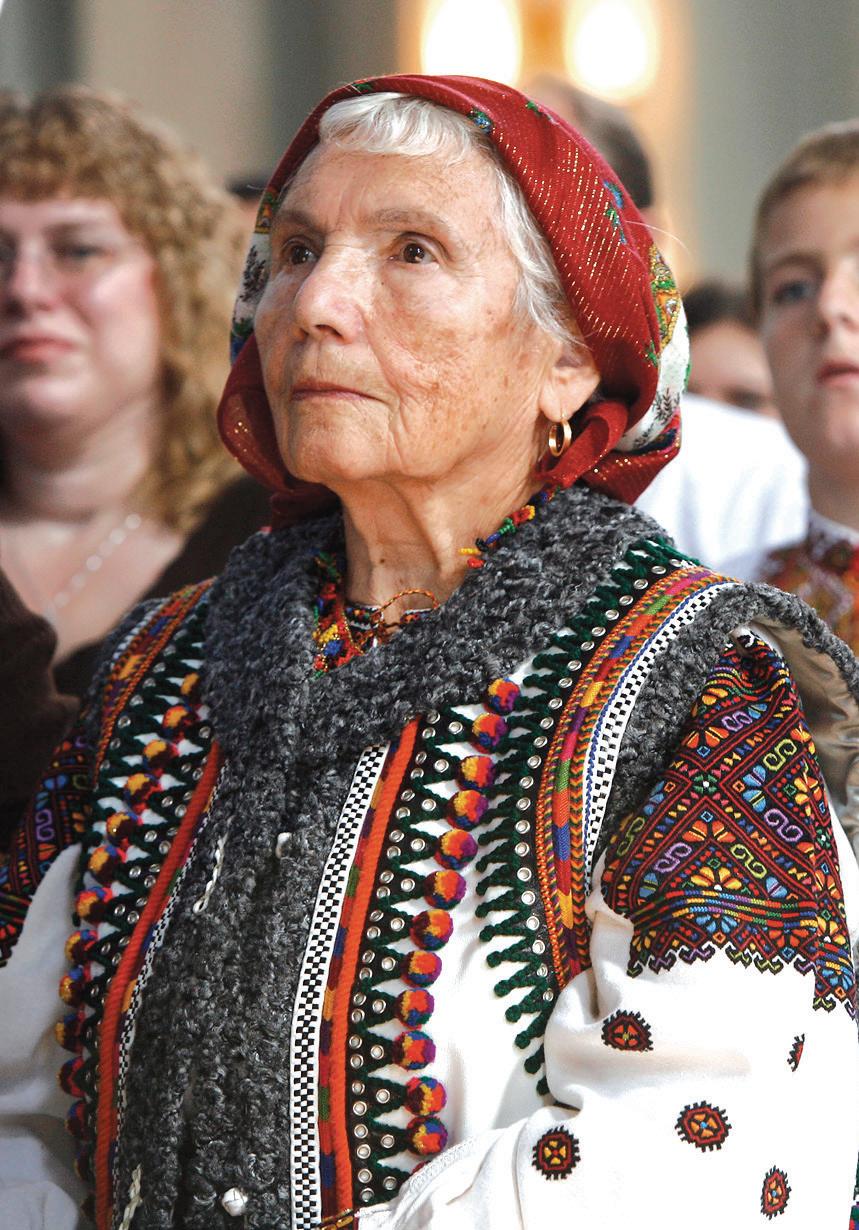
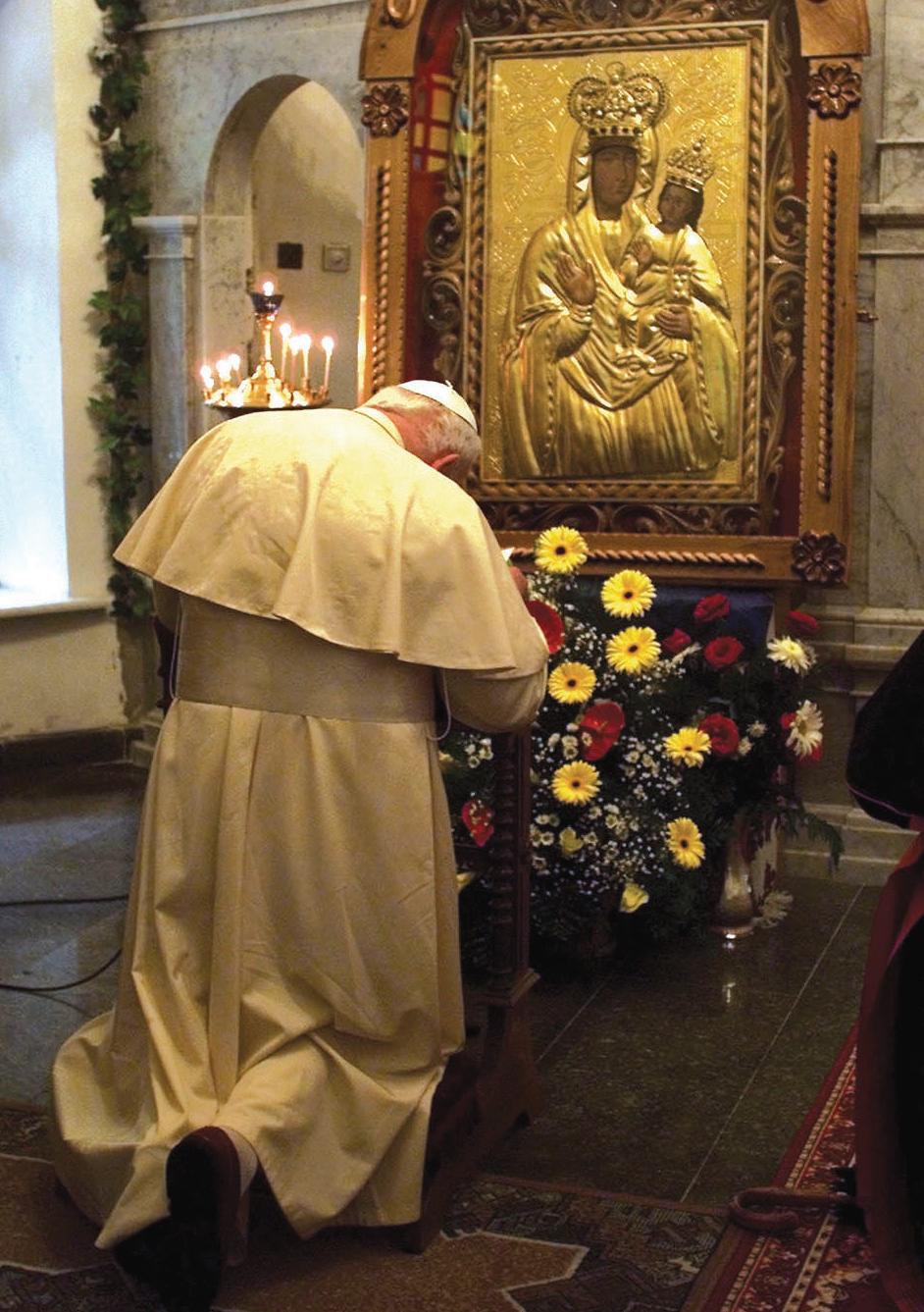
New catechism comes via Australia
IT MIGHT be Ukrainian but the Ukrainian rite’s new Catholic catechism has Australian roots.
Back in 2005, the head of the project, Melbourne Bishop Peter Stasiuk of Australia’s Ukranian Catholic Eparchy of Sts Peter and Paul, was in Perth to raise funds for Ukrainian publishing.
At the time, he hoped a new Ukrainian catechism would help diminish the effects of the “Latinisation” of the Byzantine Church.
Bishop Stasiuk said it was developed at the recommenda-
world in a deeper manner – looking below the material to see what is truly spoken by God through creation (§108). The eastern tradition of an icon corner in the house can assist in developing contemplative prayer within the family home (§657).
The catechism stresses that in Christ we have a God who shares our human condition,
tion of Pope John Paul II so Ukrainian Catholics could move closer to their original identity.
“We attend Roman Catholic schools, we read their religious literature and we have become more or less immersed in Roman Catholic theology and tradition.
“No wonder our Church is deeply Latinised - to the extent that we have become so comfortable that we do not even see a need to change or to rediscover our own roots and traditions”, he said in 2005.
“It is time for all of us to
who is immersed in our human traits, immersed in the full life of humanity with the exception of personal sin (§75). For our part, we are not our own masters but God shares intimately in our lives through the life-giving Spirit (§93). Our lives hold an inherent dignity that equates to our being made in the image of God (§120). Our goal is to achieve in our lives
realise the serenity of our own Ukrainian soul. It is time to take the bold steps necessary to place into the hands of (Ukrainian Catholics) a depository of faith on what it means to be a Ukrainian Catholic.”
A draft of 600 pages had been produced and the final product was expected to be published in 2007.
The new Ukrainian catechism retains its planned-for name, “Christ our Pashka” – “Pashka” being the Ukranian term for Easter.
the likeness of God to its maximum potential (§123). Male or female, we are equal but complementary (§133).
It is sin that has darkened our minds and has hurt our relationship not only with God (§151) but also with one another (§154). Through sin, brothers and sisters begin to alienate one another, and the family of humanity fractures
Page 12 31 August 2011, The Record
&
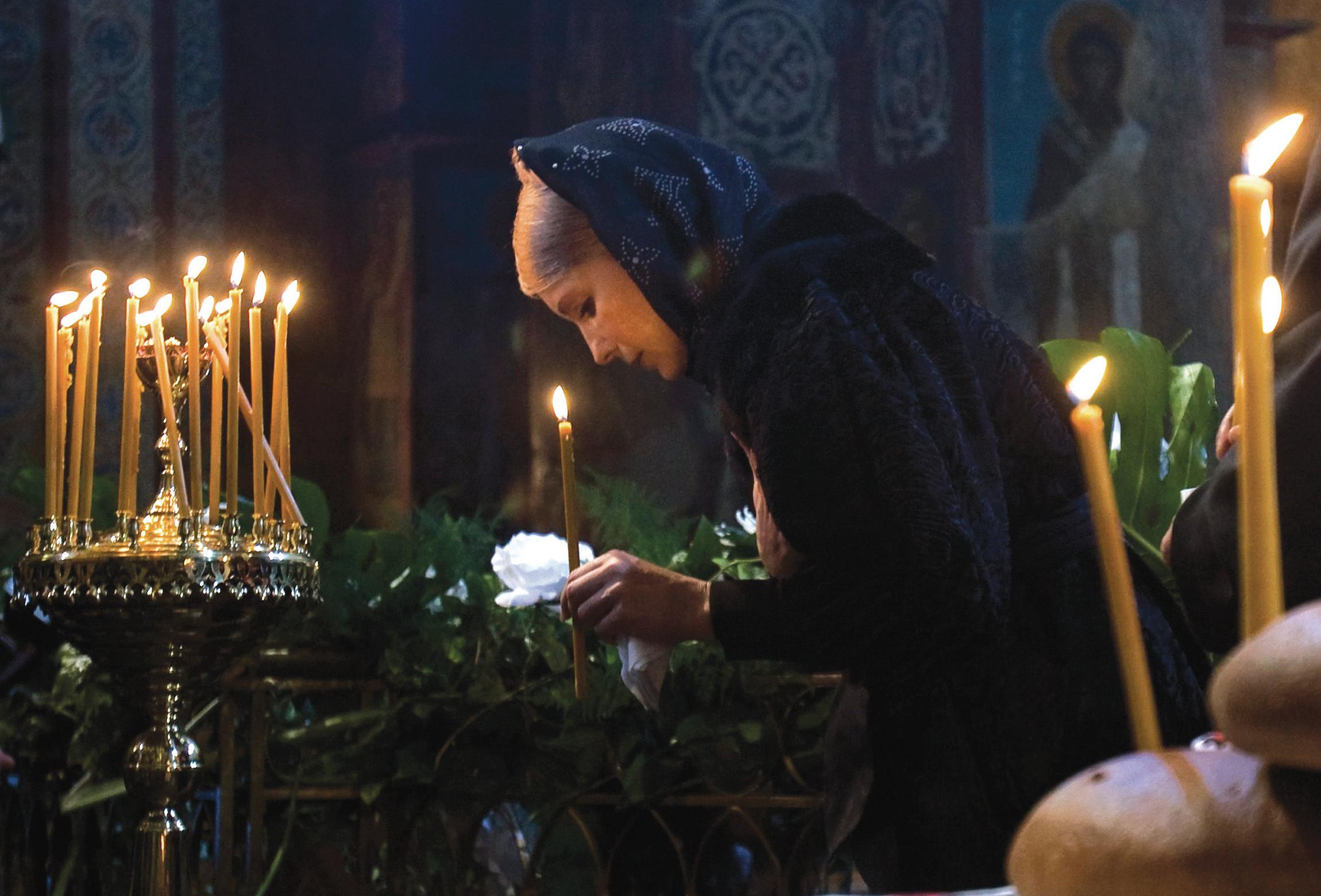
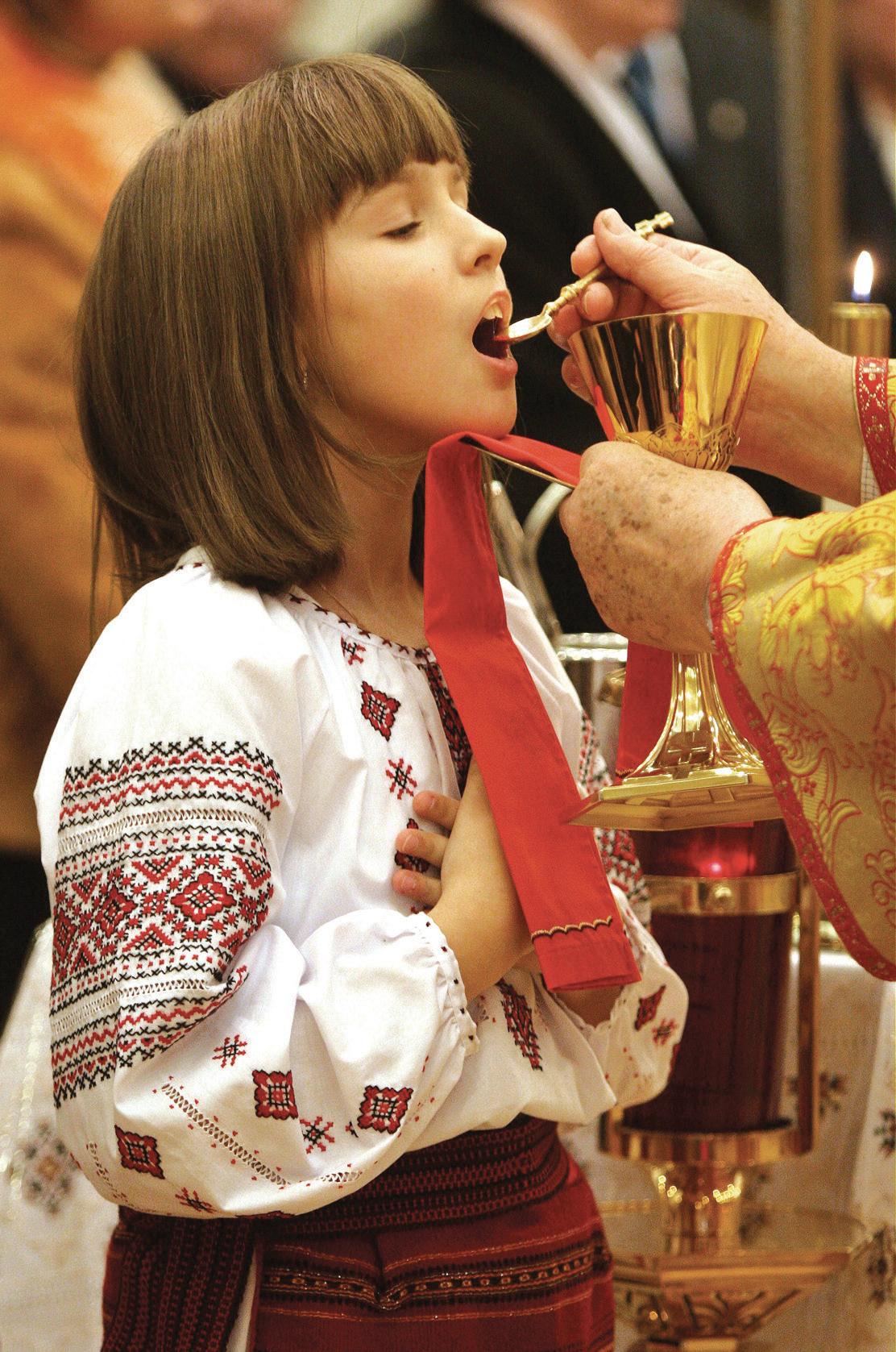
(§156). Thus God became man so that man could become God, putting death to death and giving us a sure path away from sin (§178). One can only reach this pinnacle of life if one is open to God (§213).
With regard to the local church, each church has its own sources of Christian tradition: its own theology, spirituality, piety, liturgy, martyrs and saints. The fullest development of a particular church lies in its being recognised as a patriarchate; for then it is visibly seen as a mature and
stresses the Ukrainian Church’s devotion to the Holy Mother, and discusses the many famous icons and places of pilgrimage (§314).
In a later section of the catechism the use of icons in the prayer life of Eastern Christians is explained. Icons are used to look deeper into the holy mystery. This concentration and meditation leads to an inner silence (§592).
The Catechism of the Ukrainian Greek Catholic Church is a miraculous event in the life of the universal Church; not so much for what the text contains, which
“For our part we are not our own masters but God shares intimately in our lives.”
powerful factor not only in the life of the universal Church but in the life of the nation from which it arises (§303).
Interestingly, in the first 100 days of his role as the head of the Ukrainian Catholic Church, Sviatoslav Schewchuk has repeatedly emphasised the importance of the Vatican elevating it to patriarchal status. The catechism
is beautiful and true in itself, but for the fact the Ukrainian Church survived to be able to publish such a work.
The catechism should find an immediate home on the bookshelves of Catholics who speak Ukrainian; with the forthcoming English translation, the catechism should become in the diaspora a lightning rod for questions regard-
Behind it all a host of reasons
What exactly does “Lord God of hosts” mean in the new translation of the “Holy, holy, holy” of the Mass?
The inspiration for the “Holy, holy, holy” in the Mass is clearly the prophet Isaiah. He describes a vision of “the Lord sitting upon a throne, high and lifted up; and his train filled the temple. Above him stood the seraphim; each had six wings: with two, he covered his face, and with two he covered his feet, and with two he flew” (Is 6:1-2).
One of the angels then called to another and said:
“Holy, holy, holy is the Lord of hosts; the whole earth is full of his glory” (Is 6:3). The word “hosts” here refers to the army or multitude of angels at the Lord’s command.
The Hebrew word is Sabaoth, a plural word meaning armies or multitudes.
In the Old Testament it is used hundreds of times, almost always in conjunction with the name of God, as a title of power and majesty: “the Lord of hosts”, or “the Lord God of hosts”.
While other descriptions or titles of God refer to his wisdom, his knowledge, his love, his mercy, etc, the expression “Sabaoth, God of hosts” emphasises his power over the forces of evil.
In translating the word Sabaoth into Latin in the Vulgate, St Jerome rendered it as exercituum, or armies.
In the Latin of the Mass it was left as Dominus Deus Sabaoth, Lord God Sabaoth. This followed the Greek versions of the Bible where it was also left untranslated as Sabaoth.
Q&A
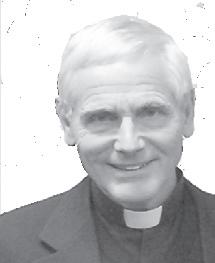 By Fr John Flader
By Fr John Flader
of hosts, is his name!” (Amos 4:13). The prophet is speaking of a God who is in complete control of his domain, who created everything and treads, or looks down on, even the heights of the earth.
And Psalm 46, by way of demonstrating the power of God, who is “our refuge and strength”, says: “The Lord of hosts is with us; the God of Jacob is our refuge” (Ps 46:1, 7, 11).
Thus the phrase was used to assure the people that their God was truly powerful and able to protect them, for he was the Lord, the God of hosts.
We see this attitude of confidence in Hannah who was childless and taunted by Peninnah, who had children. Hannah placed all her trust in God and cried out to him: “O Lord of hosts, if you will indeed look on the affliction of your maidservant, and remember me, and not forget your maidservant, but will give to your maidservant a son, then I will give him to the Lord all the days of his life, and no razor shall touch his head” (1 Sam 1:11).
ing spiritual identity. Perhaps the words of Paul Philibert, OP, writing generations ago, in introducing the thought of Marie Dominique Chenu to the world, are most true with regard to the launch of the Ukrainian catechism: “The point of the Church is not maintenance of creeds and formulas of faith, but mission that will engage the whole of society”.
The catechism should never be seen as an end in itself – but only a beginning, a process of becoming for the Church a genesis.
The test of the modern-day miracle of the Ukrainian catechism will be in if and how it can inspire a Church that was once very much alive in the catacombs to flourish even more under the bright light of freedom.
Dr Andrew Kania, a Ukrainian Catholic, is director of spirituality at Aquinas College, Manning. Dr Kania was invited by Eparch Peter Stasiuk CSsR to be the moderator at the Australian launch of the Ukrainian Catholic Catechism in Melbourne.
In any case the word clearly refers to the hosts, the multitudes or armies of angels, and also human armies, of which God is Lord. In this sense, the former translation in the Mass, “God of power and might”, is not as clear since it makes no reference to the fact that God’s power and might come from having armies at his command.
The young David used the expression “Lord of hosts” when confronting Goliath: “You come to me with a sword and with a spear and with a javelin; but I come to you in the name of the Lord of hosts, the God of the armies of Israel, whom you have defied” (1 Sam 17:45). Here, the hosts are the armies of Israel as well as the armies of angels.
The expression “Lord of hosts” is found most often in the writings of the prophets, especially Jeremiah, Isaiah and Zechariah.
The prophet Amos writes: “For behold, he who forms the mountains, and creates the wind, and declares to man what is his thought; who makes the morning darkness, and treads on the heights of the earth – the Lord, the God
It should lead us to an attitude of humble reverence ... and of absolute trust in his power
The result of her prayer was that she conceived and gave birth to Samuel.
In the New Testament we see the word “host” used, for example, to refer to a multitude of angels in the announcement to the shepherds of the birth of Christ: “And suddenly there was with the angel a multitude of the heavenly host praising God and saying, ‘Glory to God in the highest …’” (Lk 2:13).
Also, James writes that the cries of the harvesters who have not been paid “have reached the ears of the Lord of hosts” (Jas 5:4).
This title “Lord God of hosts” should lead us to an attitude of humble reverence towards God Almighty and of absolute trust in his power.
We can be assured, like David and Hannah, that God is always with us to protect and watch over us, and that in his power he can answer all our prayers.
Page 13 31 August 2011, The Record
Clockwise from bottom left:
A woman in traditional Ukrainian dress attends Divine Liturgy;
The cover of the new Ukranian catechism Christ our Pashka;
Ukraine’s then-Prime Minister Yulia Tymoshenko places a candle in a Cathedral in Kiev;
Sofia Gereta receives Holy Communion during Divine Liturgy;
Pope John Paul II prays before an image of Our Lady of Zarvaniza at the Church of St Nicholas in Kiev.
PHOTOS: CNS PHOTO/MARK
STEHLE; CNS PHOTO/MYKHAILO MARKIV, POOL VIA REUTERS; CNS/GREGORY SHEMITZ, LONG ISLAND CATHOLIC; CNS/REUTERS
How to handle CRISIS 2.0
Invited to give the annual St Dominic Lecture to Perth’s tertiary Dominicans, Peter Rosengren reflected on a global crisis of values and culture constantly beamed at families through the media. It might seem daunting, but when we understand what’s happening, the solutions become a lot clearer, he writes in this edited excerpt..
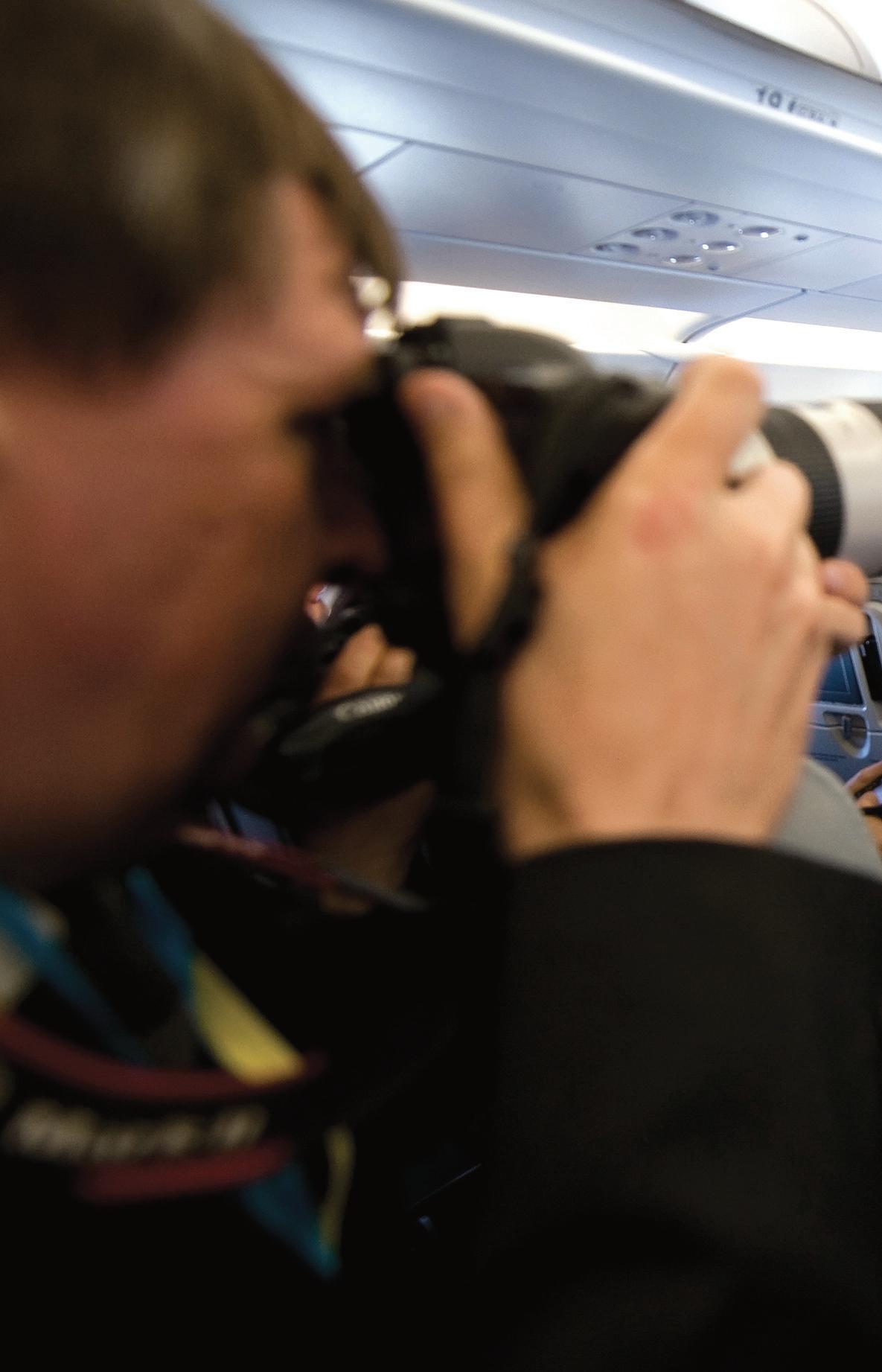
IHAVE, for the past 15 years, worked in a very strange job by any standards, producing or helping to produce an official Catholic newspaper. I have always been conscious that colleagues in the secular media must look upon people such as myself as strange and exotic birds in a zoo, not the normal wildlife of the landscape they inhabit, doubtful that we do “real” journalism. I produce a newspaper for an audience not normally considered the natural market of the media, in a society that appears to have given every indication over the past half century or so of having decisively rejected the very thing for which I work: Christianity.
Today, I chose to talk about a global crisis and how we are to respond. Often the word ‘crisis’ is meant as a time in which absolutely everything can be lost. That is not what I mean. But there is a crisis afoot - one of modernity.
We’ve all heard of the cultural revolution of the 1960s, but actually the real decade of change was probably the period 1965-1975. It is in this decade that the moral, intellectual and cultural forces building up over decades, finally begin surging over the levees more or less erected in legal, political and philosophical terms by the Christian inheritance.
Abortion, divorce, the destruction of the family unit and the pornification of society and media have usually been described as progress, but they have fiercely eroded the notion of the dignity of the human person and of the fundamental and necessary patterns of human relationships essential to happiness and the fulfilment of lives.
These globally entrenched realities are driving a significant destruction of the social order. Moral relativism is the dominant reality while a type of nihilism is also widespread: the idea that behind the appearance of reality there is really nothing of sustaining value. Mention nihilism to your typical young Australians
and they will probably look at you blankly, but in effect they live it on a daily basis.
All of these negative forces have been amplified by the media. It has an enormous potential to contribute greatly to the common good of humanity but, in practice, its role is selling anything proprietors can get away with.
All these things were foreseen.
Writing in 1926, GK Chesterton, convert, journalist, author and poet, wrote: “For the next great heresy is going to be simply an attack on morality; and especially on sexual morality. And it is coming, not from a few socialists surviving from the Fabian Society, but from the living exultant energy of the rich resolved to enjoy themselves at last, with neither popery nor puritanism nor socialism to hold them back ... The madness of tomorrow is not in Moscow, but much more in Manhattan.” In other words, the greatest danger came from unrestrained greed and a lack of interest in the common good that might simply be described as unrestrained capitalism.
Throughout the 20th and 21st centuries our moral progress has been unable, apparently, to keep pace with our technological progress and it seems clear that our affluence has obscured for us where we are really going as a society.
Relatively few people, including the media, noticed the sobering comments of Benedict XVI just before Christmas last year in his annual Christmas greetings to the Curia in the Vatican. Reflecting on the Church’s Advent liturgy, the Pope referred to the Roman Empire in decline.
“The disintegration of the key principles of law and the fundamental moral attitudes underpinning them burst open the dams which until that time had protected peaceful coexistence among peoples. The sun was setting over an entire world.” The Pope then went on to a remarkable couple of sentences which we should read
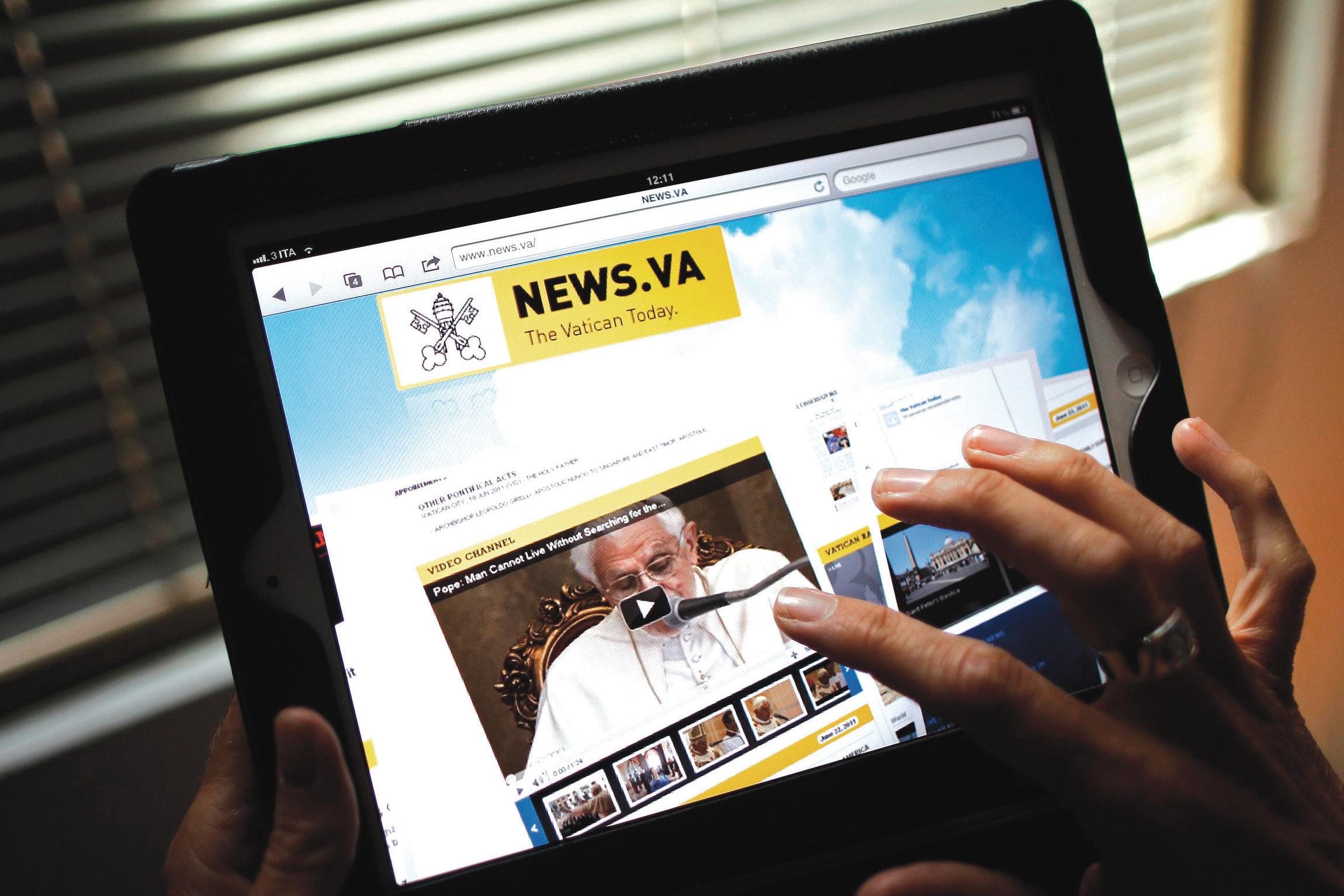
carefully: “Today too, we have many reasons to associate ourselves with this Advent prayer of the Church. For all its new hopes and possibilities, our world is at the same time troubled by the sense that moral consensus is collapsing, consensus without which juridical and political structures cannot function. Consequently, the forces mobilised for the defence of such structures seem doomed to failure.”
contemporary world repeatedly asserts, Jesus dead and not risen from death in 2011 – and therefore irrelevant? I would say that you tertiary Dominicans, immersed in the Church by your fidelity to the Dominican way, are clearly part of the answer.
Personally, I am particularly conscious as a husband and father that my real job is not producing
“The media are a powerful and often malignant force.”
Those are sobering words. It’s important to recall, however, that the Pope closed his speech by pointing out that if we keep our eyes open and look around us today we can see clearly that God’s goodness and power are also present in many ways.
What, practically, are we Christians to do? Is, as the
a newspaper but forming new human beings who will build up and contribute to society in whatever their chosen vocation. I am full of hope.
If we analyse what is happening, I think we can now define the essential problem facing Christian and Catholic families. It is the expression, at the micro level, of a titanic confrontation between the Gospel of Christ and
the anti-culture of modernity. In recent decades this has devastated civilisation and Catholic life, with massive numbers of children from Catholic families drifting away from the faith of their parents and their parishes, often despite the best, and in some senses, quite radical efforts of their parents to prevent precisely this.
As children grow up they experience (ideally) in early childhood the absolute reliability of their parents in feeding, clothing and educating them and in preparing them for life.
But now children are exposed to television from the earliest age (at around two) and often it is in the bedroom. You don’t know me. You may think I’m a nice person, but would you allow me into your homes to stand in a corner of the room whispering at your child for hours every day unsupervised?
By the middle of childhood the benign and positive influence of parents is already being
Pope Benedict XVI speaks to journalists aboard his plane plane on the way to a cause, Record editor Peter Rosengren said in a talk given to Perth lay Dominicans
Page 14 31 August 2011, The Record
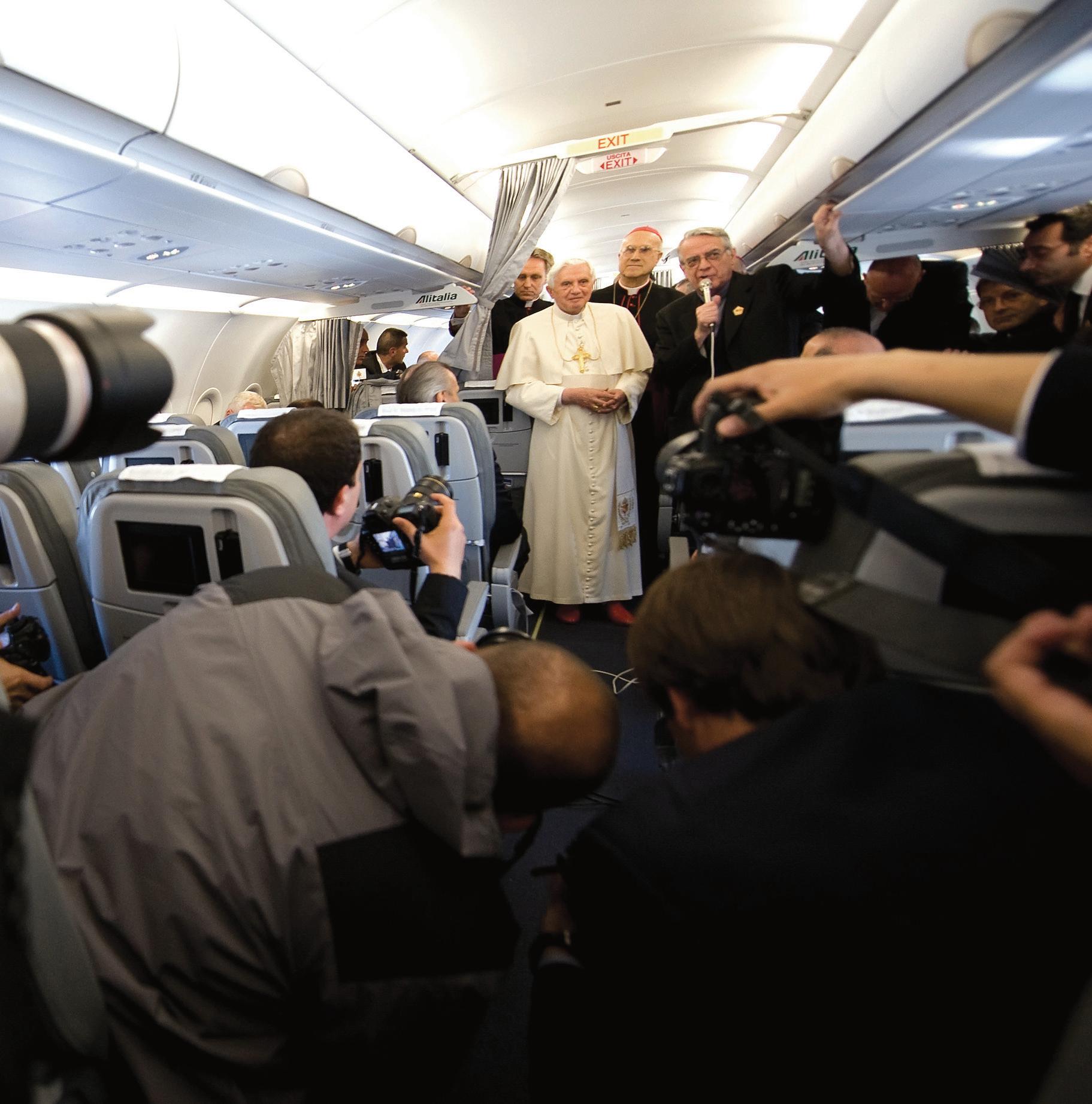

eroded by the influence of peers from families whose moral values come from soap operas. Peer pressure is the most powerful force I know in relation to young people as so much of the way they see themselves and their desire for acceptance as part of the normal group around them will be shaped precisely by how they feel their peers regard them. For children from Catholic and Christian families the normal experience now is to be surrounded by peers in the school ground - and it doesn’t matter which education system you’re talking about - from families for whom faith is of no importance.
I’ve already said the media are a powerful influence. I see it as an often malignant force. However, the introduction in recent decades of the internet and mobile devices - again often in the bedroom - has magnified the effect that was once associated with television. These have increased the phenomenon
of children and teenagers living in radical isolation and being able to access and transmit largely unsupervised things that were once regarded as beyond the pale, often used for pornography and bullying. Add all these things up and you have a culture that is antithetical to human life, to children, to families. I define this
a Christian was a capital crime punishable by death, Christians served in business and commerce, in the armed forces, in civil and political administration and lived their daily lives despite the hostility and persecution of the culture in which they were immersed. Culture may be the main engine, but Christians changed the culture. Our problem at the moment is that it is the culture that changes the Christians.
Children and youth need to experience that not only their families, but their friends and their friends’ families see Christianity as an absolutely normal experience. The Church, therefore, has to build, form and hold together Christian communities so that our children experience the faith of the Church, its liturgy, prayer and way of life as normality.
This means paying serious, rather than nominal, attention to the formation of marriage and parenting - almost no-one is doing this in the Church at the moment. This means work in helping parents to understand the true nature of their baptismal vocation and their vocation in the sacrament of Marriage. It also means practical education for parents in the dynamics of human formation and long-term domestic engineering and how to live and act so that their children are not swept away by the coun-
“Our problem is that it is the culture that changes the Christians.”
situation as the isolation of children from the community of faith that parents wish to give them. If isolation is the problem, then it implies to me that communion is the solution. I’m not talking about ghettoes, which I am against in any case. The first Christians survived and evangelised, spreading out through a Roman empire that was corrupt and dying, exhausted as our own global culture also appears to be. Although to be
Authentic life in the digital age
Pope Benedict XVI’s message for World Communications Day
TODAY the radical changes taking place in communications are guiding significant cultural and social developments. The new technologies are not only changing the way we communicate, but communication itself. This means of spreading information and knowledge is giving birth to a new way of learning and thinking, with unprecedented opportunities for establishing relationships and building fellowship.
New horizons are now open and, at the same time, urgently demand a serious reflection on the significance of communication in the digital age ... As with every other fruit of human ingenuity, the new technologies must be placed at the service of the integral good of the individual and of the whole of humanity. If used wisely, they can contribute to the satisfaction of the desire for meaning, truth and unity which remain the most profound aspirations of each human being.
In the digital world, transmitting information increasingly means making it known within a social network where knowledge is shared in the context of personal exchanges. The clear distinction between the producer and consumer of information is relativised and communication appears not only as an exchange of data, but also as a form of sharing. This has contributed to a new appreciation of communication itself, which is seen first of all as dialogue, exchange, solidarity and the creation of positive relations. On the other hand, this is contrasted with the limits typical of digital communication: the one-sidedness of the interaction, the tendency to communicate only some parts of one’s interior world, the risk of constructing a false image of oneself, which can become a form of self-indulgence.
The ever greater involvement of young people in the so-called social networks helps to establish new forms of interpersonal relations, influences self-awareness and therefore inevitably poses questions not only of how to act properly, but also about the authenticity of one’s own being. Entering cyberspace can be a sign of an authentic search for personal encounters with others, provided that attention is paid to avoiding dangers such as enclosing oneself in a sort of parallel existence. In the search for sharing, there is the challenge to be authentic and faithful, and not give in to the illusion of constructing an artificial public profile.
too, everyone is confronted by the need for authenticity and reflection. When people exchange information, they are already sharing themselves. It follows that there exists a Christian way of being present in the digital world: this takes the form of a communication which is honest and open, responsible and respectful of others. To proclaim the Gospel through the new media means not only to insert expressly religious content into different media platforms, but also to witness consistently, in one’s own digital profile and in the way one communicates choices, preferences and judgements that are fully consistent with the Gospel.
The task of witnessing to the Gospel in the digital era calls for everyone to be particularly attentive to the aspects of that message which can challenge some of the ways of thinking typical of the web. We must be aware that the truth which we long to share does not derive its worth from its “popularity” or from the amount of attention it receives. We must make it known in its integrity, instead of seeking to make it acceptable or diluting it.
“Does the danger exist that we may be less present to those we encounter in everyday life?”
Even when it is proclaimed in the virtual space of the web, the Gospel demands to be incarnated in the real world, linked to the real faces of our brothers and sisters, those with whom we share our daily lives.
I would like then to invite Christians, confidently and with an informed and responsible creativity, to join the network of relationships which the digital era has made possible. This is not simply to satisfy the desire to be present, but because this network is an integral part of human life.
terfeit anti-culture of modernity. Are we doomed? I don’t know. Things don’t look terribly hopeful at the moment in terms of culture, a century or more of horror and now the world standing on the brink of economic apocalypse. But it doesn’t really matter. It will take 150 years or more, I am guessing, to re-Christianise this country. It can be done and you are part of the answer. Saving the family is the way it will happen.
Who is my “neighbour” in this new world? Does the danger exist that we may be less present to those whom we encounter in our everyday life? Is there is a risk of being more distracted because our attention is fragmented and absorbed in a world “other” than the one in which we live? Do we have time to reflect critically on our choices and to foster human relationships which are truly deep and lasting? It is important always to remember that virtual contact cannot and must not take the place of direct human contact with people at every level of our lives. In the digital age,
In the final analysis, the truth of Christ is the full and authentic response to that human desire for relationship, communion and meaning which is reflected in the immense popularity of social networks. Believers who bear witness to their most profound convictions greatly help prevent the web from becoming an instrument which depersonalises people, attempts to manipulate them emotionally or allows those who are powerful to monopolise the opinions of others. On the contrary, believers encourage everyone to keep alive the eternal human questions which testify to our desire for transcendence and our longing for authentic forms of life, truly worthy of being lived.
THIS IS AN EDITED VERSION OF POPE BENEDICT’S MESSAGE. THE FULL VERSION CAN BE FOUND ON THE VATICAN’S WEBSITE: WWW. VATICAN.VA.
to Malta on 17 April last year. If there is a crisis of modern culture, it is the media that have been both a symptom and Dominicans on 21 August at Our Lady of the Rosary Parish in Woodlands.
Page 15 31 August 2011, The Record
PHOTO: CNS/ALESSIA GIULIANI, CATHOLIC PRESS PHOTO
editorial Needed: some real leadership on being Australian
NATIONAL political debate in Australia seems only to focus on two subjects: boat people and carbon tax. It’s almost as if nothing else exists, as if the entire federal political system and the parliament exist only to permanently debate the precise policy settings that will solve each of these problems. The solutions to these will make the nation prosperous and our lives happy for ever and a day.
Domination of the political agenda by these two issues seems now to be nothing more than obsession, as the opposition and the government permanently circle each other, seek the killer argument or scandal that will blast the other out of the water. It is disheartening. The obsession, one might say possession, of Australian politics serves only to mask the fact that political debate and political culture in Australian life are at historic lows in terms of emptiness and avoidance of reality.
This out of body sense of having landed in some alternative parallel universe generated by the unending airconditioned blandness in Australian political life was heightened by Migrant and Refugee Sunday held in Perth parishes last weekend.
The occasion was chosen by the Australian bishops to highlight the importance of migration and the plight of refugees as matters of important national concern. The fact that the Catholic Church marked such an occasion almost certainly went unnoticed in the media and yet, of any institution in the country, it was the Church paying close attention to an issue that is of vital importance not only to the fabric of Australian society and the future but to individual human beings.
Wrong on refugees
I READ the front page article on “the welfare of humans outweighs policy” (The Record 10 August) and wondered if Fr Maurizio Pettena lives on the same planet as I do. If he is speaking on behalf of the bishops, I do not agree with his argument or with his particular form of welfare critique.
Those people have a duty to sort out the problems in their own country and not bail out in crises. The fact that Fr Pettena wants to keep the leaky boat-toting entrepreneurs in a lucrative business is not the essence of Christian compassion. The policy of people smugglers is a straight out con, whereby we are taken by the scruff of the neck with our backs to the wall and told “do what we say or else” with the consequences being the burning down of detention camps, the sewing up of lips, and the consignment of
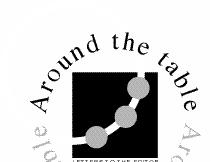

Letters to the editor
parentless children to Australia. I don’t think that would happen in Malaysia. But we are a “soft” bunch and easily bullied. What about the good, law abiding people at present languishing in squalid Asian camps who have been waiting for years, but did the right thing in the first place? Their problem is they genuinely have no money. We don’t
have unlimited resources of housing, hospitals, teachers or jobs.
Maureen Federico, Frankston, Sth VIC
What’s up?
I HAVE to admit I am somewhat dismayed by the front page of The Record being used to advertise some blokes have been selected to go to some world games (“Applecross parishioner to compete in world comp”, The Record, 3 August. There is nothing to connect them to what ever The Record supposes to stand for these days. Why is that ? What have I missed in this lot? I hope you have something magical to dispel my wonderment. I can’t wait to find out.
M Joyce Kalgoorlie
Analysis Now is the winter of our ideological downgrades
It’s hard not to notice the different faces of two crowds of youth – one rioting in England, the other praying in Madrid, writes José Alviar
“What Australia should do about boat people is not the real problem. What forces them to risk their lives and those of their children at sea definitely is.”
People who get on boats and travel across the ocean risking everything they have including their lives and the lives of their children may or may not be criminals, but they are desperate. It does not seem to bother or occur to anyone much in Australian political life that the situations which create boat people are hell on earth. Politicians on either side of parliament talk for the waiting cameras as though they are the ones with the really tough credentials and policies that will get rid of the problem and the implied threat of aliens landing on our shores. The problem is that they talk and play upon community ignorance on this issue as if what to do with these people when they arrive on our shores is the problem. But what to do with them is not the problem – what forces them to risk their lives and the lives of their children, however, definitely is. So also is our inability as a nation to recognise this.
In every sense of the sentiment, Christianity is a faith built upon a refugee family. How often we forget that. So many politicians want to appear tough on the issue but, actually, they have no idea of what getting tough really would mean. Real toughness on the issue of refugees and migrants would constitute rethinking our entire approach to other people’s problems and, in the process, coming to be known as a nation of generous people. This is the reputation Australians have lived off for decades, but our desire to treat desperate families as pseudo criminals who must be banished, including the children, opens us to the charge that all we Australians really want is to have a vast, wealthy country all to ourselves. But if this is what Australia actually is, what sort of individuals would want to govern that kind of mess?
THE RECORD
PO Box 3075
Adelaide Terrace
PERTH WA 6832
office@therecord.com.au
Tel: (08) 9220 5900
Fax: (08) 9325 4580
For parents, turn to prayer
PRAYERS for children are the greatest gift a parent can give and it doesn’t particularly matter if the child is in the first decade of life or the fifth. In societies such as Australia, every caring Christian parent in the opening decade of the 21st century has to contend with an apparently pervasive onslaught against family life and the jobs they are trying to do as spouses and as parents, especially where that family life is based on faith. The onslaught comes from outside the family home: peers, media and the culture, to name the most important. This is a real problem because while most people believe politics is the main agent of change in a society’s life, and therefore in individual lives, the truth is that politics usually expresses changes that have already occurred. Culture is the real engine. Children are exposed to a powerful contemporary Australian anti-culture. Materialism is effectively regarded as superior to spirituality, and moral relativism as superior to believing in truth. This greatly increases the chances that parents will feel a growing sense of failure as their children grow into independence and adulthood and, often, abandon the faith their parents hoped so much to pass on to them. Here is where the real importance of hope as a virtue comes into play. In the midst of the humdrum daily tasks of life, spouses can often forget the fact that the real task of parenting is invisible and done on one’s knees. Parents need to remember that prayer is effective, which means it effects actual change. Prayer, in other words, works.

PHILOSOPHICAL ideas take time to percolate into the streets. But powerful ones precipitate in a matter of decades as ideologies and manage to provoke social upheavals. Such dire results lead to the original ideas ending up in humanity’s intellectual dustbin.
Consider some examples from modern history. In the early 19th century, Hegel started the ball rolling when he identified conflict as the dynamic heart of human history and hyped up the state as the embodiment of a people’s spirit.
This, philosopher Karl Popper has argued, served as a remote foundation for future totalitarian regimes that would lead the German nation on to a quest for world dominance.
Nietzsche subsequently rejected Hegel’s hyper-rationalist views, but his own ideas followed a similar roller-coaster trajectory.
Only a few decades after his death, his exaltation of the “Übermensch” and the “will to power” found its way into the minds of Nazi ideologues and played its part in plunging Hitler’s Germany into a disastrous second world war – after which, naturally, all forms of absolutist world views, whether rationalistic or voluntaristic, fell into discredit and were replaced (in the later 20th century) by milder forms like scepticism, “soft thinking”, emotionalism and irrationality.
A parallel story may be told of Marx’s materialistic rendering of Hegel’s dialectical philosophy. It led – less than a half-century after Marx’s demise – to the rise
of Communism in Russia, and later on in China and several Latin American countries ... only to be discredited by the breakdown of Communist-style economies at the end of the 1980s. (This left liberal capitalism as practically the only functional socio-economic formula – till the global financial crisis broke in 2007 and revealed the horrid face of a capitalism turned into a “no-holds-barred, come-what-may” money-garnering activity.)
Now, in the summer of 2011, Britons have witnessed, shocked, the empirical effects of a way of thought whose principles are “no truth, just opinions”, “anything
Many young people are disillusioned with the South Park culture they live in and what the Pope says makes a lot of sense.
goes”, “me first”, “having is more than being”. As Rebekah Hebbert has pointed out in MercatorNet, we’re actually witnessing the bankruptcy of postmodern ideology, though (much as I don’t like being a prophet of doom) the aftershocks will probably continue to be felt for years to come. Just think of similar recent events in France and Spain. While it’s true that we humans often err in judging philosophical ideas for what they’re worth, commonsense at least lets one perform
an a posteriori (or should I say post mortem?) critique.
The time for a re-evaluation –complete with status downgrade! – of a world view whose hallmarks are relativism, individualism, licence and materialism, is, I hold, now upon us – in fact thrust violently upon us, whether we like it or not.
For postmodernism’s real-life consequences, seen live on TV or Twitter or directly as bleeding flesh on British tarmac, now impel us to conclude, “We’ve been had!”, and to start looking for sounder alternatives. (Something with nicer consequences, please! – even if we have to call it something like, er, post-postmodernism. )
In this quest, it might help to consider the other notable event of this northern hemisphere summer: the meeting of a million and a half young people with Benedict XVI in Madrid for World Youth Day, with its admixture of commitment and fun, vitality and serenity, challenge and hope.
Most participants’ faces contrast starkly with the brooding visages of Hegel, Nietzsche, Hitler, Marx, and Stalin, not to mention the shifty looks and hooded faces of the UK rioters and looters. I mean, hey, look – those young people in Madrid (quite a few non-Christians among them, too) seem able to behave well and have fun at the same time! Isn’t there something to be learned from that?
- This article first appeared on www.mercatornet.com
J José Alviar is Professor of Systematic Theology at the University of Navarra, Spain.
Page 16 31 August 2011, The Record
PersPectives
PersPectives
Time to invite femininity back into our society
Feminism’s aping of male values has led to women losing touch with their feminine identity, writes
WHAT is femininity? It is a delicate term that is gradually becoming ‘politically incorrect’ but is still needed just as much now as it was 50 years ago.
The Australian Oxford Dictionary states simply that femininity is “of or characteristic of women”.
These characteristics, the concept and the word itself, are all sadly dying in modern society, where such things as careers rule our lives and a strong personality must suit to be successful.
Femininity is now frowned upon, seen as weak and over-emotional.
Many women make no conscious decision to hide their feminine attributes yet it is slowly being weeded out of their personalities.
Feminism has gone to extremes by placing women in what were traditionally male jobs and expecting them to succeed just as well in all aspects and in the same way. This has inevitably taken a toll. Women’s
identities and what used to be their special characteristics are being lost and forgotten.
So what are the true attributes to feminism? Once, it was completely accepted that the personality of a woman was very much different to that of a man, a complement to the male attributes.
Women were seen as the weaker sex, loving, emotional, compassionate, caring, kind, warm, helpful and loyal. They were a delicate, sensitive prize a man would protect and fend for. Women appreciated the chivalry men displayed.
As Catholics, we believe God created both man and woman in his image. Each reflect different aspects of himself and therefore complement each other.
It was intended by him that men and women have equal but different characteristics, so to balance out society. Today, this is a foreign idea and one that women struggle to accept, because the promotion of
women’s rights has made true feminism something of the past.
To abolish male control, women came around to a different way of thinking, losing their feminine identity in the meantime.
Femininity today is not only lost in women’s personality traits, but also in the way they are presented.
Women are afraid to show the softer, truer sides of themselves because they might be ridiculed.
Those who once wore skirts, dresses, high heels and jewellery find themselves wearing pants, t-shirts and sneakers most of the time. Hair once curled or pinned up, so to soften and pretty the face, is now straightened or left appearing unkempt.
Language has changed. Women speak of topics once thought highly indecent. It is evident the way women present themselves now displays a loss of feminine pride which they had once possessed.
Femininity is needed as much as ever. The problem is that women are afraid to show the softer, truer sides of themselves because they might be ridiculed.
It is important to remember that some of the greatest women in history were unafraid to show their true feelings.
Blessed Mother Teresa of Calcutta was one who showed boundless amounts of compassion, love, kindness and care and because of it was supported and respected by the world.
Mary, the mother of Christ, is the greatest feminine figure of all history. She represents every womanly characteristic to the full, and by so doing helped fulfil the will of God.
Because of her loyalty to God,
Grace Feltoe
she conceived his Son, lovingly cared and raised him, mourned and wept as Christ was nailed to the cross and to this day, out of compassion for the sufferings of the world, intercedes for us in prayer.
Our Lady is the figurehead of femininity. Her strength and fortitude emerged through the true and pure characteristics she possessed as a woman, and because of these she ultimately helps lead the world to salvation.
It is time to invite femininity back into society, before it is too late. As men are unafraid to show their strength, women should proudly show their special gifts and share the wisdom God has placed in their hearts and minds.
Let their consciences be respected and their morality be honoured, so that a balance may emerge between men and women again.
Grace Feltoe, 15, is a home-schooled student and attends Holy Spirit Church in the parish of City Beach.
Deal with needs, not creeds A political victory?
A national disability insurance scheme will help others and could help us, writes Barbara Harris
DID you get to a DisabiliTEA earlier in August? Right across Australia more than 20,000 Australians attended some 900 events calling for a better deal for people with a disability, their families and carers.
Getting together for a cup of tea meant a chance to find out what the National Disability Insurance Scheme (NDIS) is all about. The “Every Australian Counts” campaign is calling on the federal government to introduce a national insurance scheme to better support Australians with a disability and their families.
What is the problem? Those not involved with people with disabilities and their families would not know, for example, that the decisions about who gets funding now depend on so many different factors, including: origin of the disability; whether or not it is genetic, acquired or the result of an accident; whether it is physical, sensory, intellectual, psychological or an addiction – and so on.
It gets very complicated. Most families cannot prepare adequately for the costs of lifetime care and support. We need to pool our resources. The current disability support system is underfunded, unfair, fragmented and inefficient.
With this in mind, the Productivity Commission, the federal government’s independent research and advisory body on economic, social and environmental issues affecting the welfare of Australians, looked at the needs of people with disabilities and released a report, Disability Care and Support, at the end of July.
The Productivity Commission was instructed to look at the costs and benefits of replacing the current system of disability services.
The commission was asked by the government to suggest new arrangements so that all Australians with a significant and ongoing disability would be able to get essential care and support.
The NDIS is a system whereby funding for disabilities will be given directly to people with disabilities according to their individual needs. The needs of the individual will determine the amount of support given. All state governments except WA have expressed support for the NDIS.

People with disabilities must not become a political football to be kicked back and forth from WA to Canberra. The NDIS is about dealing with needs, not creeds.
There are, to be sure, some very good things happening in Western Australia. There are problems, too.
Julie Guilfoile is a teacher and mum of three. She is pictured
“Recently we had to make a choice between using the funds available for our son, Eamon, either all in the home or all out of the home. It was heartwrenching.”
Many people like Julie are calling for the state government to set up a reference group to guide the implementation of the NDIS in WA. Getting together people who
morning for a half-hour return journey. He came back nearly three months later after an accident on the road. A simple fall can lead to quadriplegia and an illness can lead to severe brain damage. Our lives are precarious.
In the face of huge problems we often feel powerless. We now have a once-in-a-lifetime opportunity
Just the savings of paper from the 101 forms that won’t be needed to be filled in for any funding considerations will pay for lots of support.
with her 15-year-old son Eamon at the DisabiliTEA they hosted in the suburb of Hilton.
Julie and her husband Jim have been campaigning for changes to the disability system ever since Eamon was born with multiple disabilities and after his twin Kieran died in utero due to twinto-twin transfusion syndrome.
Julie is 100 per cent behind NDIS. What difference will it make to her family life? “It will give us flexibility and choice in our use of funding”, she says.
know the flaws in the system and listening to them is Julie’s wish.
The NDIS will make it easier for people to access essential care, support, therapy, equipment, early intervention and training. Just the savings of paper from the 101 forms that won’t be needed to be filled in before any funding considerations will pay for lots of support. This is a scheme any one of us could need in an instant; if not now, perhaps later in our lives.
In November 2009, Fr Paul Pitzen left Emmanuel Centre one
to provide a system for people with disabilities that is more fair, effective and sustainable. Support for the NDIS is easy. Go to www.everyaustraliancounts. com.au and register. Read about NDIS and talk it up with your acquaintances. Please contact me at emmanuelcentre@westnet.com. au if you are willing to write a letter to your local member of parliament to support the scheme or want further information.
Barbara Harris is the co-ordinator of the Emmanuel Centre in Perth.
It’s nothing of the sort
Tony Abbott makes his political bed; he should ask himself if he wants to die in it, writes Robert Hiini
IWONDER what Joseph Lyons, our Depression-era prime minister, was thinking about on his death bed.
After seven bruising years as prime minister and with the spectre of World War II looming, Lyons suffered a massive heart attack but lived long enough to speak, once again, with his wife Enid before passing away on 7 April 1939.
Perhaps he was thinking about the political battles he had won and lost and all the accolades he had gained in his near-60 years of life, but I doubt it.
Romantically, perhaps, it’s easy to imagine he was thinking about what kind of man he had been, what kind of father and what kind of husband to Enid.
In that light, I’m thinking about the last week’s federal parliamentary vote-pairing debacle and what it says about our political culture.
Don’t know what I’m talking about? The coalition had Labor on the ropes over the Craig Thompson credit card scandal where some poor misguided soul spent rather a lot of union money on prostitutes.
The federal opposition rescinded on a vote-pairing deal in an attempt to force Mr Thompson to address his embarrassing predicament in parliament.
Sadly, it denied Labor old-timer Simon Crean and the former Liberal leader Malcolm Turnbull the opportunity to attend the funeral service of their mutual friend Margaret Olley.
I doubt they will be asking for a re-run. Even in the most hallowed halls of power, there are limits.
Like Joseph Lyons, Tony Abbott is a committed Catholic.
At the risk of sanctimony, I can’t help but wonder if calling in the numbers last week was worth it.
I doubt that morning’s media victory will be something Mr Abbott remembers.
Not on his deathbed, in any case.
Page 17 31 August 2011, The Record
Julie Guilfoile with her son Eamon at the DisabilitTEA they hosted in Hilton.
SPECIAL NOTICES
48 hour rosary - a gift to Our Lady on her birthday Begins Monday, 5 to Wednesday, 7 September. Our Lady’s birthday bouquet - Please say the rosary for Our Lady’s intentions during this 48 hours and send the time slot chosen to Legion of Mary, 36 Windsor St, East Perth or fax to 9328 2782.
Sacred Heart pioneers Is there anyone out there who would like to know more about the Sacred Heart pioneers? If so, please contact: Spiritual Director Fr Doug Harris 9444 6131 or John 9457 7771.
SATURDAY, 3 SEPTEMBER
Day with Mary
9am-5pm at Our Lady Help of Christians Church, cnr Camberwell and Berwick Sts, East Victoria Park. Day of prayer and instruction based on the Fatima message. 9am video; 10.10am holy Mass; Reconciliation, procession of the Blessed Sacrament, Eucharistic adoration, sermons on Eucharist and Our Lady by his Grace, Archbishop Barry Hickey, rosaries and stations of the Cross. BYO lunch. Enq – Franciscan Sisters of the Immaculate 9250 8286.
Vigil for life
8.30am at St Augustine’s, Gladstone St, Rivervale. Mass, followed by rosary procession and vigil at nearby abortion clinic led by Fr Paul Carey SSC. Weekly prayer vigils: Monday, Thursday and Saturday 8.30-10.30am. Please join us to pray for the conversion of hearts and an end to abortion. Enq: Helen 9402 0349.
“Inner joy” morning retreat
9-12pm at John XXIII College, John XXIII Ave, Mt Claremont. The retreat provides a stimulus for us to become more fully alive. There will be time given to clarification, silence and time to wander in the college gardens. Ends with scriptural meditation. Presenter: Murray Graham (Inigo centre director) Cost: donation Inigo Centre. Enq and registration: Murray 9383 0444 or graham.murray@johnxxiii.edu.au.
SUNDAY, 4 SEPTEMBER
Vespers and benediction
4pm at St Mary’s Cathedral. The Anglican Dean of Perth, Dr John Shepherd, will preach vespers, followed by benediction and Mass at 5pm. St Charles’ seminarians and the cathedral choir will participate. All invited to this important ecumenical service.
Divine Mercy
1.30pm at St Francis Xavier Church, 25 Windsor St, Perth. The main celebrant will be Fr Joseph Asnaban. The homily will be ‘The Seven Sorrows of Our Lady’. Exposition of the Blessed Sacrament, Divine Mercy prayers, followed by veneration of first class relic of St Faustina Kowalska. Refreshments later. Enq: John 9457 7771.
TUESDAY, 6 SEPTEMBER
Charismatic renewal prayer night
7.30-9.30pm at Holy Family Parish, cnr Canning Hwy and Thelma St, Como. Includes prayer and praise, teaching followed with prayer team ministry. Light supper. Enq: Dan 9398 4973 or dhewitt@aapt.net.au.
WEDNESDAY, 7 SEPTEMBER
Women on the fringe– male and female actors and crew required
7pm at St Simon Peter’s parish centre, cnr Prendiville Ave and Constellation Dr, Ocean Reef. The first reading of this play written by Gerald Searle of St Anthony’s, Wanneroo. No experience needed. The play will be staged September 2012: marginalised women because of gender, race and nationality, religion and moral standing – and transformed when encountered Jesus. Enq: Gerald 9404 7292.
THURSDAY, 8 SEPTEMBER
Celebration of the Blessed Virgin Mary’s birthday
7pm at Notre Dame parish, cnr Wright and Daly Sts, Cloverdale. Begins with Mass, celebrated by Archbishop Hickey. Mass will also commemorate 40th anniversary of consecration and opening of church. Followed by light supper. Enq: Fr Nelson 9277 4094.
FRIDAY, 9 SEPTEMBER
Saints and sacred relics apostolate formation
4.45pm at St Philomena’s Chapel, 3/24 Juna Dr, Malaga. Learn about the holy relic of the saints, their place in the history and rituals of the Catholic Church, their biblical and theological significance. More than 200 first and second class relics of various canonised and beatified men and women of the Catholic faith. Enq: Giovanny 0478 201 092 or ssra-perth@catholic.org.
FRIDAY, 9 TO FRIDAY, 16 SEPTEMBER 2012
2012 summer school Royal School of Church Music
The programme will include workshops for Church musicians and singers and Church music liturgy. Enq: David www.rscmaustralia.org.au.
SATURDAY, 10 SEPTEMBER
Anglican ordinariate group
11am at Holy Cross Tide in the courtyards of Notre Dame University, Fremantle. All welcome to pray the stations of the Cross. Enq: Fr Ted Wilson 0349 5798 or Br Harry on 0417 180 145.
“Mary, Blessed among all women” - Catholic women’s day retreat
9am-3pm at St Brigid’s Parish, 69b Morrison Rd, Midland. Day of reflection, prayer and spiritual enlightenment with the Franciscan Friars and Sisters of the Immaculate. Spiritual director Fr Joseph. Lunch provided. Registration by 1 September. Enq: Lydia 0413 993 987 or catholicwomen.perth@gmail.com.
Divine Mercy Healing Mass
2.30pm at St Francis Xavier Church, 25 Windsor St, East Perth. Main celebrant Fr Marcellinus Meilak OFM. Reconciliation in English and Italian will be offered. Divine Mercy prayers followed by veneration of first class relic of St Faustina Kowalska. Refreshments afterwards. Enq: John 9457 7771.
Panorama Editorial Policy
The Record reserves the right to decline or edit any items submitted for publication in Panorama. Deadline: 11am every Monday.
Peter Rosengren, Editor
SUNDAY, 11 SEPTEMBER
The world apostolate of Fatima
3pm at St Mary Mackillop Church, cnr Pelican Pde and Cassowary Dr, Ballajura. All welcome for Eucharistic hour. Pilgrim virgin statue will be present. Enq: 9339 2614.
Spring Concert
2pm at Queen of Apostles Church, 57 Tudor Ave, Riverton. Featuring Dominic Perissinotto, Pavithra Silva, Kathleen How, Rossmoyne SHS Year 11 chorale and more. Entry by donation. Proceeds will go towards the Riverton Parish music ministry and upkeep of the parish pipe organ. Tea provided. For catering purposes RSVP to parish office 9354 0707.
FRIDAY, 16 SEPTEMBER
Healing Mass and Eucharistic adoration
7-10pm at Holy Family Parish, 375 Alcock St, Maddington. Led by Fr Augustine Vallooran VC, Director of Divine Retreat Centre, Potta, India.
FRIDAY, 16 TO SUNDAY, 18 SEPTEMBER
“Living The Franciscan Way” - secular Franciscans of WA retreat 7pm at the Redemptorist North Perth Monastery guesthouse. Explore how the spirituality of St Francis can impact on one’s relationship with God and personal happiness, as well as how the Franciscan witness impacts on the Church and society at large. Will also include a very moving liturgical celebration of St Francis’ gift of the stigmata. Live-in option available. Daytime attendance at presentations is possible. Enq and registration: Anthony 0449 864 287.
SATURDAY, 17 SEPTEMBER
Love Ministry Healing 6pm at Our Lady of Mercy, cnr Girrawheen Ave and Patrick Ct, Girrawheen. Love Ministry Healing team including Fr Nishan and other clergy. All welcome, come and be prayed over, healed from the past or present issues or stand in for a loved one who may be ill or facing problems at this time. Enq: Fr Hugh Thomas or Gilbert on 0431 570 322.
St Padre Pio pilgrimage to Toodyay and anniversary of St Francis stigmata 8am buses depart. 10.15 DVD, 11.30am Mass, confession available. 1pm lunch BYO, tea and coffee provided. 2.30pm Eucharistic procession, rosary, adoration, Divine Mercy and benediction. 4pm depart for Perth. Enq: Midland, Catrina, 9255 1938; Bassendean, Ivana 9279 7261; Morley, Joan 9276 9439; Leederville, Leena 9444 3617; Balcatta, Rosa 9276 1952; Glendalough, Fr Doug 9444 6131; Victoria Park and Girawheen, Nita 9367 1366.
One day healing retreat
9am-5pm at Holy Family Parish, 375 Alcock St, Maddington. Led by Fr Augustine Vallooran VC, Director of Divine Retreat Centre, Potta, India. BYO lunch.
SUNDAY, 18 SEPTEMBER
Healing service
7-9.30pm at Our Lady of the Mission Parish, Whitford, 270 Camberwarra Dr, Craigie. Led by Fr Augustine Vallooran VC, Director of Divine Retreat Centre, Potta, India.
75th anniversary celebrations
9.30am at St Francis Xavier Church, 25 Windsor St, Perth. Mass. Past parishioners, ex-pupils of SFX school are cordially invited. Enq: Barbara 0401 178 782 or Roseanne 0434 899 406.
Healing service
1-4pm at Good Shepherd Parish, 215 Morley Dr, Lockridge. Enq: Melanie 0410 605 743 or m.fonseca@curtin.edu.au.
TUESDAY, 20 SEPTEMBER
Baby Mass
7.30pm at Our Lady of Grace Parish, 3 Kitchener St, North Beach. Mass to help those who never had the chance to name or to grieve the loss of a baby. Mothers, fathers, siblings, grandparents and other interested persons are invited. Followed by personal prayer and reflection. Tea afterwards. Enq: Judy or Veronica 9447 4144.
SUNDAY, 16 OCTOBER
50th anniversary Beacon’s St Michael’s Catholic Church - Lord of the Harvest Parish. 10.30am at the Beacon Country Club. Mass followed by lunch. All past and present parishioners and ex-locals are invited. RSVP Michelle Kirby, c/- PO Beacon, 9686 6056, email: bingarra@bigpond.com.
SATURDAY, 29 OCTOBER
Mercedes College Perth - graduating class of 1990 reunion 7.30pm Rosie O’Grady’s, Northbridge, cnr James and Milligan Sts. Enq: kathleen.bryce@yahoo.com.au.
MONDAY, 9 JANUARY TO MONDAY, 16 JANUARY 2012
Summer school
The Royal School of Church Music in Australia (RSCM) will be hosting a summer school for all denominations next year. The programme will include workshops for church musicians and singers to help them inspire their congregations towards a more enjoyable and meaningful participation in Church liturgy. Enrolments are now open and interested parties can find out more by going to www.rscmaustralia.org.au.
SATURDAY, 25 FEBRUARY 2012
A reunion for Holy Cross Primary School, Kensington Any ex-students or family members, please contact Julie Bowles (nee O’Hara) on 9397 0638 or email jules7@iinet.net.au.
EVERY SUNDAY
Gate of Heaven Catholic Radio
Join the Franciscans of the Immaculate from 7.30-9pm on Radio Fremantle 107.9FM for Catholic radio broadcast of EWTN and our own live shows. Enq: radio@ausmaria.com.
Pilgrim Mass - Shrine of the Virgin of the Revelation
2pm at Shrine, 36 Chittering Rd, Bullsbrook. Commencing with rosary followed by benediction. Reconciliation is available before every celebration. Anointing of the sick administered during Mass every second Sunday of the month. Pilgrimage in honour of the Virgin of the Revelation, last Sunday of the month. Side entrance to the church and shrine open daily between 9am-5pm. Enq Sacri 9447 3292.
EVERY FIRST SUNDAY
Divine Mercy chaplet and healing prayer
3pm at Santa Clara Church, 72 Palmerston St, Bentley. Includes adoration and individual prayer for healing. Spiritual leader Fr Francisco. All welcome. Enq: Fr Francisco 9458 2944.
Divine Mercy
1.30pm at St Francis Xavier Parish, 25 Windsor St, East Perth. Main celebrant Fr Alphonsus. Includes exposition of the Blessed Sacrament and Reconciliation, holy rosary, chaplet of Divine Mercy and Divine Mercy prayers. Followed by benediction and veneration of first class relics of St Faustina Kowalska. Refreshments afterwards. Enq: John 9457 7771.
EVERY SECOND SUNDAY
Healing hour for the sick
6pm at St Lawrence Parish, 392 Albert St, Balcatta. Begins with Mass, exposition of the Blessed Sacrament and prayers. Enq: Fr Irek 9344 7066 or ww.stlawrence.org.au.
EVERY THIRD SUNDAY OF THE MONTH
Prayer in style of Taize during September 7-8pm at Sisters of St Joseph’s Chapel, 16 York St, South Perth. Chapel doors open at 6.30pm. Everyone welcome to come along for prayer, using songs from Taize in the stillness of a candlelit chapel. Remembering Mary MacKillop feast day. Mary MacKillop merchandise and books for sale in the Mary MacKillop Centre. Enq: Sr Maree Riddler 0414 683 926.
Oblates of St Benedict Meeting
2pm at St Joseph’s Convent, York St, South Perth. For all interested in studying the rule of St Benedict and its relevance to the everyday life of today for laypeople. Afternoon tea provided. Enq: Secretary 9457 5758.
EVERY FOURTH SUNDAY OF THE MONTH
Holy hour for vocations to the priesthood, religious life 2-3pm at Infant Jesus Parish, Wellington St, Morley. The hour includes exposition of the Blessed Eucharist, silent prayer, scripture and prayers of intercession. Come and pray that those discerning vocations to the priesthood or religious life hear clearly God’s loving call to them.
St Mary’s Cathedral youth group – fellowship with supper 5pm at Mary’s Cathedral, 17 Victoria Sq, Perth. Begins with youth Mass followed by fellowship downstairs in parish centre. Bring a plate to share. Enq: Bradley on youthfromsmc@gmail. com.
EVERY MONDAY
Evening adoration and Mass
7pm at St Thomas Parish, Claremont, cnr Melville St and College Rd. Begins with adoration, reconciliation, evening prayer and benediction, followed by Mass and night prayer at 8pm. Enq: Kim 9384 0598, claremont@perthcatholic.org.au.
EVERY TUESDAY
Bible teaching with a difference
7.30pm at St Joachim’s Parish hall, Shepparton Rd, Victoria Park. Exciting revelations with meaningful applications that will change your life. Novena to God the Father, followed by refreshments. Bring Bible, a notebook and a friend. Enq: Jan 9284 1662.
Novena to Our Lady of the Miraculous Medal 6pm at the Pater Noster Church, Marmion and Evershed Sts, Myaree. Mass at 5.30pm followed by benediction. Enq: John 0408 952 194.
EVERY WEDNESDAY
Holy Spirit of Freedom community
7.30pm at The Church of Christ, 111 Stirling St, Perth. We are delighted to welcome everyone to attend our Holy Spirit of Freedom praise meeting. Enq: 0423 907 869 or hsofperth@ gmail.com.
Holy hour at Catholic Youth Ministry
6pm at 40A Mary St, Highgate, Catholic Pastoral Centre. 5.30pm Mass followed by $5 fellowship supper. Enq: Stefania 9422 7912 or www.cym.com.au.
Bible study at Cathedral
6.15pm at Mary’s Cathedral, 17 Victoria Sq, Perth. Deepen your faith through reading and reflecting on holy scripture by Fr Jean-Noel. Meeting room beneath Cathedral. Enq: Marie 9223 1372.
EVERY FIRST WEDNESDAY
Holy hour prayer for priests
7.30-8.30pm at Holy Spirit Parish, 2 Keaney Pl, City Beach. All welcome. Enq: Linda 9341 3079.
SECOND WEDNESDAY OF THE MONTH
Chaplets of the Divine Mercy
7.30pm at St Thomas More Catholic Parish, Dean Rd, Bateman. A beautiful, prayerful, sung devotion accompanied by exposition and followed by benediction. Enq: George 9310 9493 or 9325 2010 (w).
EVERY THURSDAY
Divine Mercy
11am at Sts John and Paul Church, Pinetree Gully Rd, Willetton. Pray the rosary and chaplet of Divine Mercy, and for the consecrated life, especially here in John Paul Parish. Concludes with veneration of the first class relic of St Faustina. Please do come and join us in prayer. Enq: John 9457 7771.
St Mary’s Cathedral praise meeting
7.45pm every Thursday at the Legion of Mary’s Edel Quinn Centre, 36 Windsor St, East Perth. Includes praise song and healing ministry. Enq: Kay 9382 3668 or fmi@flameministries. org.
FIRST THURSDAY OF THE MONTH
Prayer in style of Taize
7.30-8.30pm at Our Lady of Grace Parish, 3 Kitchener St, North Beach. Includes prayer, song and silence in candlelight –symbol of Christ the light of the world. Taize info: www.taize.fr Enq: Secretary 9448 488 or 9448 4457.
FIRST FRIDAY OF THE MONTH
Communion reparation all-night vigil
7pm-1.30am at two different locations: Corpus Christi Parish, Lochee St, Mosman Park and St Gerard Majella Parish, cnr Ranveswood Dr and Majella Rd, Westminster (Mirrabooka). In reparation for the outrages committed against the sacred hearts of Jesus and Mary. Enq: (Mosman Park) Vicky 0400 282 357 and Fr Giosue 9349 2315 or John 9344 2609.
Healing Mass
7pm at St Peter’s Parish, Inglewood. Praise and worship, exposition and Eucharistic adoration, benediction and anointing of the sick, followed by holy Mass and fellowship. Celebrants: Fr Dat and invited priests. 6.45pm Reconciliation. Enq: Justin 9341 8082.
Holy hour for vocations to the priesthood and religious life
7pm at Little Sisters of the Poor Chapel, 2 Rawlins St, Glendalough. Mass followed by adoration with Fr Doug Harris. All welcome. Refreshments provided.
Catholic Faith Renewal Evening
7.30pm at Sts John and Paul Parish, Pinetree Gully Rd, Willetton. Songs of praise, sharing by a priest followed by thanksgiving Mass and light refreshments afterwards. All welcome to attend and bring your family and friends. Enq: Kathy 9295 0913, Ann: 0412 166 164 or catholicfaithrenewal@gmail.com.
Healing and Anointing Mass
8.45am Pater Noster Church, Evershed St, Myaree. Begins with Reconciliation followed by 9am Mass of the sacred heart of Jesus, Anointing of the Sick and prayers to St Peregrine. Enq: Joy 9337 7189.
EVERY FIRST SATURDAY
Healing Mass
12.35pm at St Thomas Parish, cnr Melville St and College Rd, Claremont. Spiritual leader: Fr Waddell. Enq: Kim 9384 0598, claremont@perthcatholic.org.au.
EVERY FOURTH SATURDAY
Voice of the Voiceless Healing Mass
12pm at St Brigid’s Parish, 211 Aberdeen St. Northbridge. Bring a plate to share after mass. Enq: Frank 92967591 or 0408 183 325.
FREE DIVINE MERCY IMAGE FOR PARISHES
High quality oil painting and glossy print – Divine Mercy promotions
Images are of very high quality. For any parish willing to accept and place inside the church. Oil paintings - 160 x 90cm and glossy print -100 x 60cm. Enq: Irene 922 11247 or 9417 3267 (w).
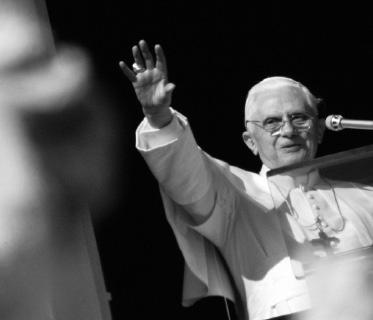
Page 18 31 August 2011, The Record Panorama
Deadline: 11am Monday
RELIGIOUS PRODUCTS
CATHOLICS CORNER Retailer of Catholic products specialising in gifts, cards and apparel for Baptism, Communion and Confirmation. Ph 9456 1777. Shop 12, 64-66 Bannister Rd, Canning Vale. Open Mon-Sat.
RICH HARVEST YOUR
CHRISTIAN SHOP Looking for Bibles, CDs, books, cards, gifts, statues, Baptism/Communion apparel, religious vestments, etc? Visit us at 39 Hulme Ct (off McCoy St), Myaree. Ph 9329 9889 (after 10.30am Mon to Sat). We are here to serve.
KINLAR VESTMENTS
Quality handmade and decorated vestments: albs, stoles, chasubles, altar linen, banners, etc. 12 Favenc Way, Padbury. By appointment only. Ph Vickii on 9402 1318, 0409 114 093 or kinlar.vestments@gmail.com.
SETTLEMENTS
ARE YOU BUYING OR SELLING real estate or a business?
Why not ask Excel Settlements for a quote for your settlement. We offer reasonable fees, excellent service and no hidden costs. Ring Excel on 9481 4499 for a quote. Check our web site on www.excelsettlements.com.au.
WEIGHT LOSS
LOSE WEIGHT safely. Ongoing follow-up. Michael 0412 518 318.
FURNITURE REMOVAL
ALL AREAS. Competitive rates. Mike Murphy Ph 0416 226 434.
TRADE SERVICES
BRENDAN HANDYMAN
SERVICES Home, building maintenance, repairs and renovations. NOR. Ph 0427 539 588.
PROPERTY MAINTENANCE
Your handyperson. No job too small. SOR. Jim 0413 309 821.
BRICK RE-POINTING Ph Nigel 9242 2952.
PERROTT PAINTING Pty Ltd
For all your residential, commercial painting requirements. Ph Tom Perrott 9444 1200.
PICASSO PAINTING Top service. Ph 0419 915 836, fax 9345 0505.
ACHES, PAIN, STRESS
REFLEX RELAX MASSAGE
Mature Indian Masseur Jai: 0438 520 993.
ACCOMMODATION
HOLIDAY ACCOMMODATION
ESPERANCE 3 bedroom house f/furnished Ph 08 9076 5083.
Walk with him
4 S 23RD SUNDAY IN ORDINARY TIME
Gr Ezek 33:7-9 Warn in God’s name
Ps 94:1-2,6-9 Listen to God’s voice
Rom 13:8-10 Love is the answer
Mt 18:15-20 Where two are three meet
5 M Col 1:24-2:3 Happy to suffer
Gr Ps 61:6-7, 9 Take refuge in God Lk 6:6-11 Save or destroy life?
6 Tu Col 2:6-15Built on Christ
Gr PS 144:1-2, 8-11 Full of compassion Lk 6;12-19 Apostles chosen
LAWN MOWING
WRR LAWN MOWING AND WEED SPRAYING Garden clean ups and rubbish removal. Get rid of bindii, jojo and other unsightly weeds. Based in Tuart Hill. Enq 9443 9243 or 0402 326 637.
SPACE WANTED
SPACE TO STORE ITEMS
A Catholic gentleman of senior years, now in a retirement home, seeks approximately 2 or 3 square metres of space, such as a cupboard or small garden shed, to store items unable to be kept where he now resides. Preferably in Mount Lawley, North Perth, Highgate or Leederville area. Rental on space negotiable. Please phone 9228 0469 mobile 0416 031 099.
BOOK BINDING
NEW BOOK BINDING, General Book Repairs; Rebinding; New Ribbons; Old Leather Bindings Restored.Tydewi Bindery 0422 968 572.
TAX SERVICE
Quality tax returns prepared by registered tax agent with over 35 years’ experience. Call Tony Marchei on 0412 055 184 for appt. AXXO Accounting & Management, Unit 20/222 Walter Rd, Morley.
7 W Col 3:1-11 Think heavenly things
Gr Ps 144:2-3, 10-13 Everlasting kingdom Lk 6:20-26 Beatitudes and woes
8 TH BIRTHDAY OF THE BLESSED VIRGIN MARY
Wh Mic 5:1-4 Ruler’s ancient origin [Alt.Rom 8:28-30 Chosen long ago]
Ps 12:6-7 Sing to the Lord!
Mt 1:1-16, 18-23 Do not be afraid!
9 F St Peter Claver, priest (O)
Gr 1 Tim 1:1-2, 12-14 Mercy shown me
Ps 15:1-2, 5, 7-8, 11 I will bless the Lord Lk 6:39-42 Disciple like teacher
10 S
1 Tim 1:15-17 To save sinners
Gr Ps 112:1-7 Lord’s name be blessed Lk 6:43-49 Figs from thorns?
OFFICIAL ENGAGEMENTS 2011
SEPTEMBER
3 Mass and private vows, Redemptorist Monastery – Archbishop Hickey Day with Mary, East Victoria Park – Archbishop Hickey
4 Re-dedication St Mary’s, Leederville – Archbishop Hickey Mass, Southern Cross – Bishop Sproxton
6 Visit Kira Centre – Archbishop Hickey
8 Council of Priests’ meeting, Cathedral Presbytery – Archbishop Hickey, Bishop Sproxton 40th Anniversary Mass, Notre Dame Church, Cloverdale – Archbishop Hickey
9 Opening and Blessing at St Joseph’s School, Moora – Archbishop Hickey
9-11 Parish visitation, Doubleview – Bishop Sproxton
10 Opening address RCIA State Conference – Archbishop Hickey Neocatechumenate Community Mass, Baldivis – Archbishop Hickey
11 Maria SS Del Tindari Festival Mass, Fremantle – Archbishop Hickey Mass and Investiture for Equestrian Order of the Knights of the Holy Sepulchre of Jerusalem, Subiaco – Archbishop Hickey

ACROSS
2 “___ Regina”
5 Abraham was probably glad to see this in the desert
8 Feast in the diocese of Honolulu 9 Abbr for two NT epistles
11 OT prophetic book
13 Nephew of Abraham
14 Catholic actor, Robert ___
15 Gospel with the most chapters (abbr)
16 ___ Saints’ Day
17 Teaching letter from the Pope
20 David, to Goliath
22 Occupation of Luke, the Evangelist
27 The bishops, collectively
28 Some Carmelites (abbr)
29 Religious ceremony
30 Wife of Tobit (Tb 2:11)
32 He gave Hannah words of comfort
33 Biblical measure
35 “Agnus ___”
36 Creche
37 There are 27 in the New Testament
38 Catholic actor of “Singin’ in the Rain” fame
DOWN
1 Knights of ___
3 Violation of the 6th commandment
4 Arizona-Vatican connection
5 Father of Jesse
6 French holy woman (abbr)
7 Place of the ___ (Mt 27: 33)
10 Possible Easter month
12 Simon, the apostle, was one of these
18 This king allowed the Jews to return to Jerusalem (Ezra 1:1–4)
19 Tradition says Bartholomew preached here
21 “___ Fideles”
23 Pertaining to those who have received orders
24 “We ___, we celebrate, we believe”
25 Abraham was one
26 Top monk
31 “Immediately they left their ___ and followed him” (Mk 1:18)
32 Island converted in the 5th century
34 Chi ___
LAST WEEK’S SOLUTION
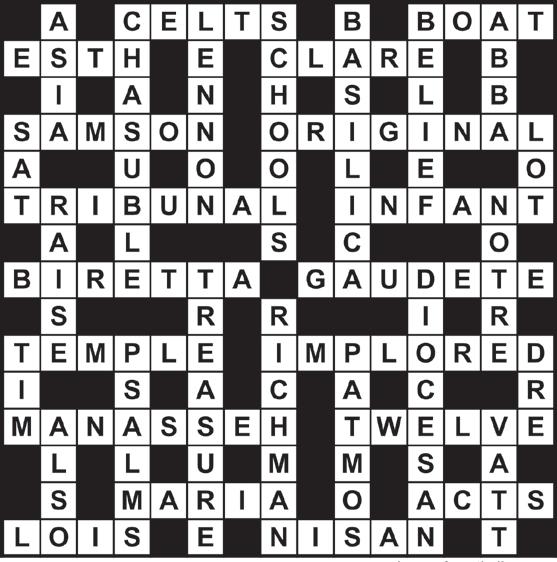
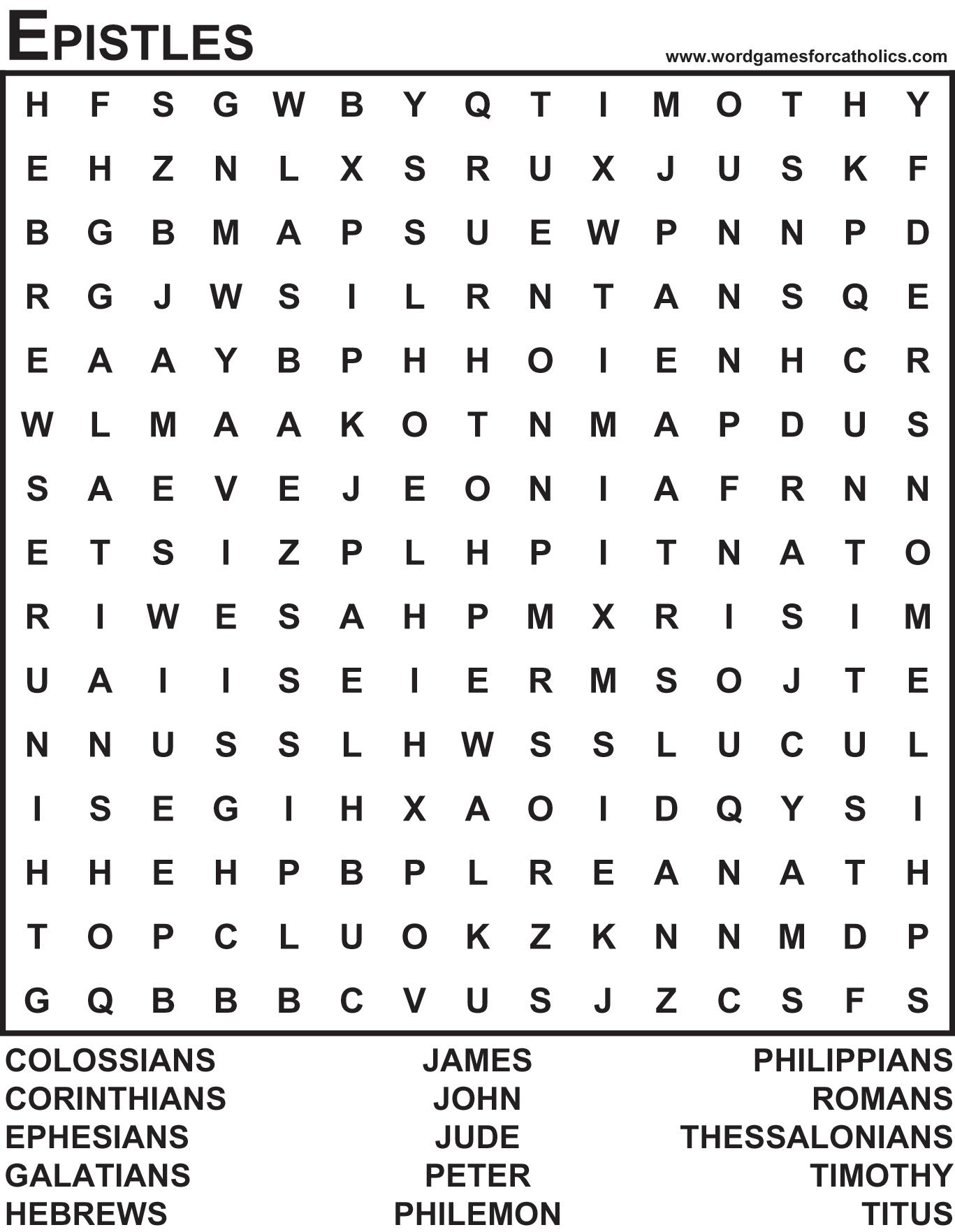
C R O S S W O R D
CLASSIFIEDS W O R D S L E U T H
Page 19 31 August 2011, The Record Classifieds
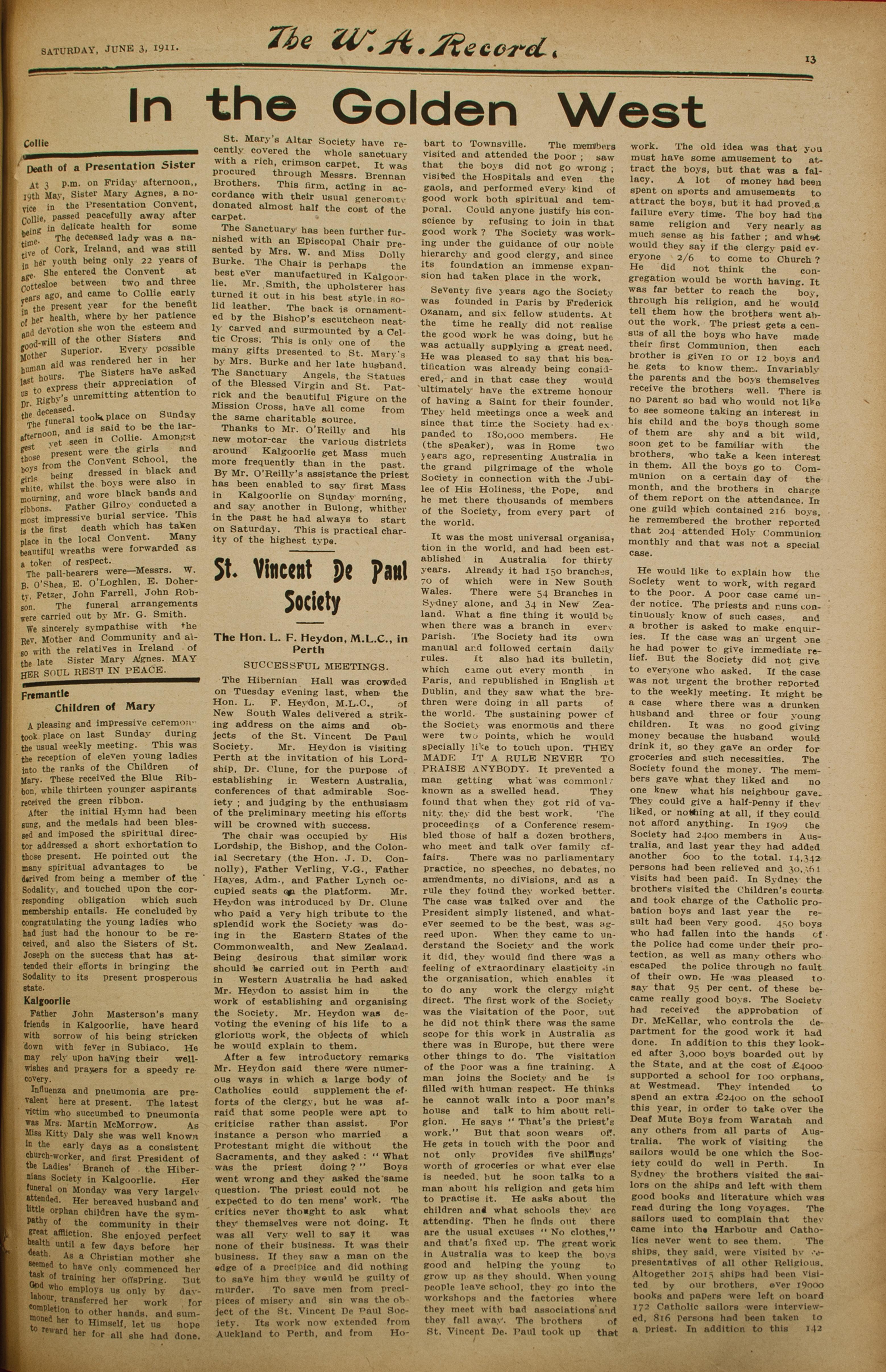
Page 20 31 August 2011, The Record The RecoRd in 1911
 By RoBeRt Hiini
By RoBeRt Hiini











 read out by concelebrant and Filipino chaplain Fr Armando Carandang. The group Couples for Christ provided the
music. Religious sisters from the Little Sisters of the Poor and the Missionaries of Charity participated in the offertory.
read out by concelebrant and Filipino chaplain Fr Armando Carandang. The group Couples for Christ provided the
music. Religious sisters from the Little Sisters of the Poor and the Missionaries of Charity participated in the offertory.



















































 By Fr John Flader
By Fr John Flader












